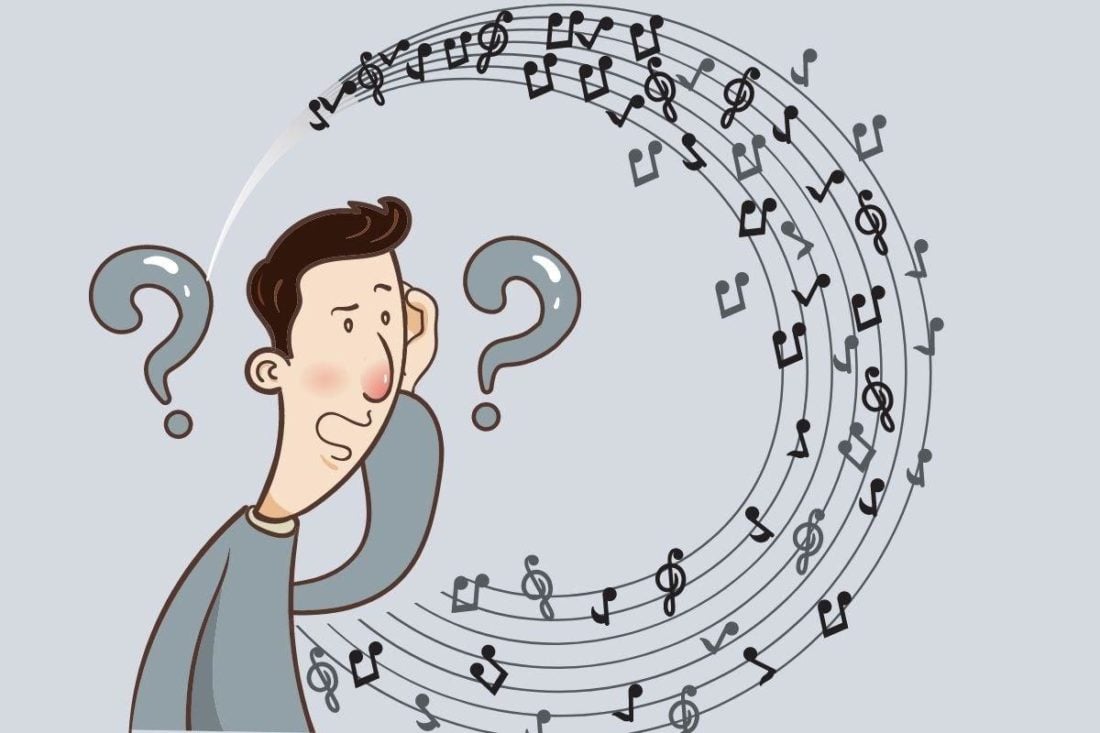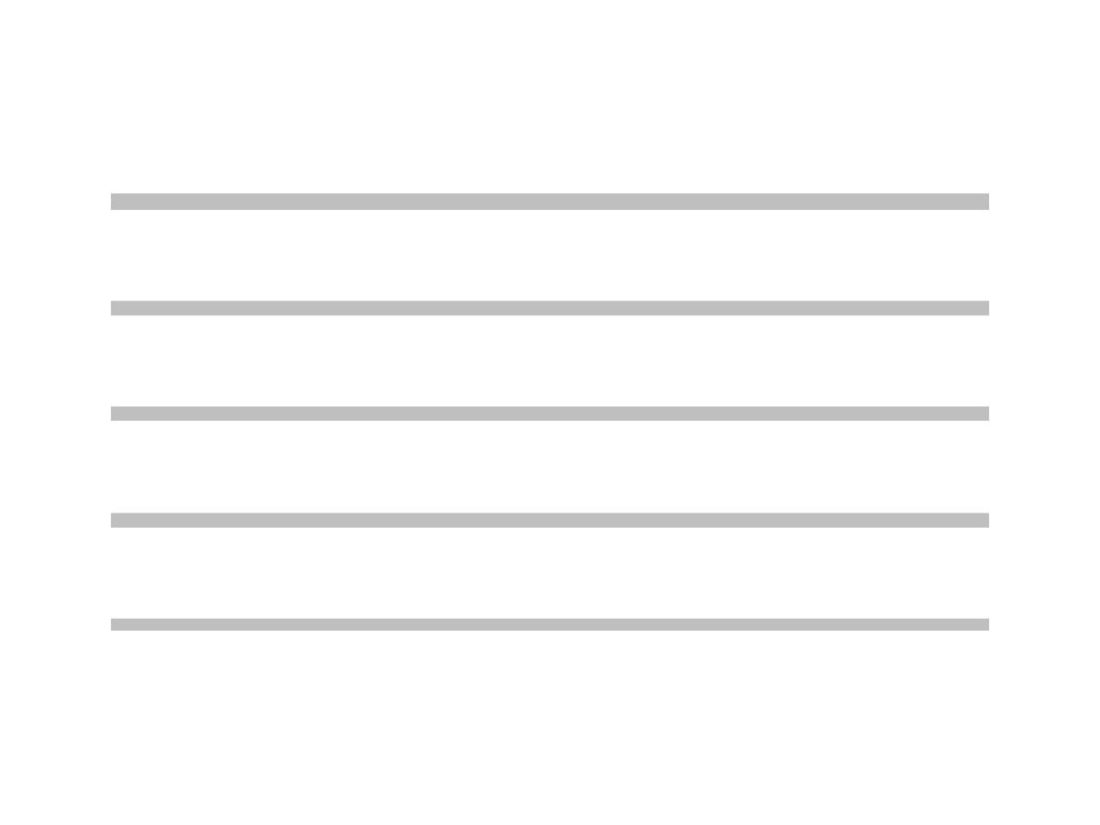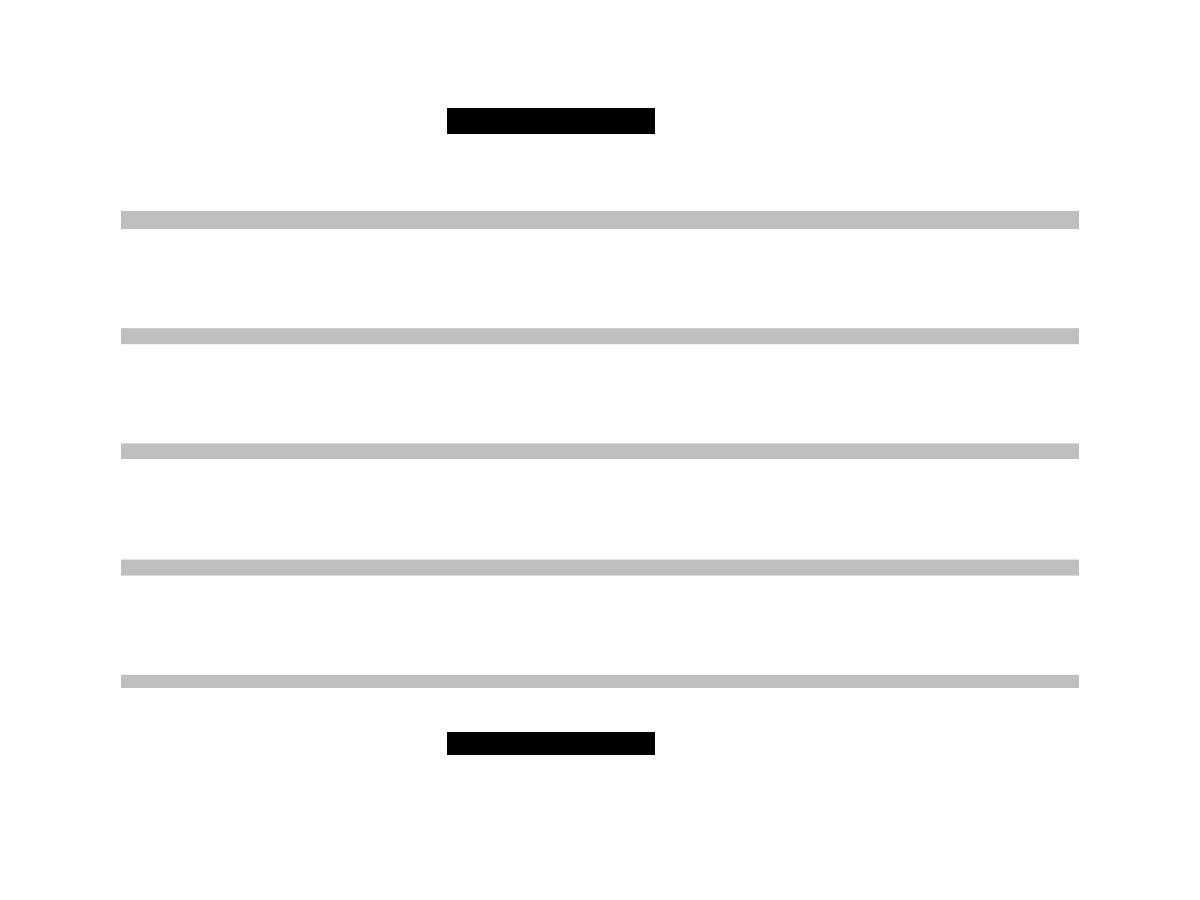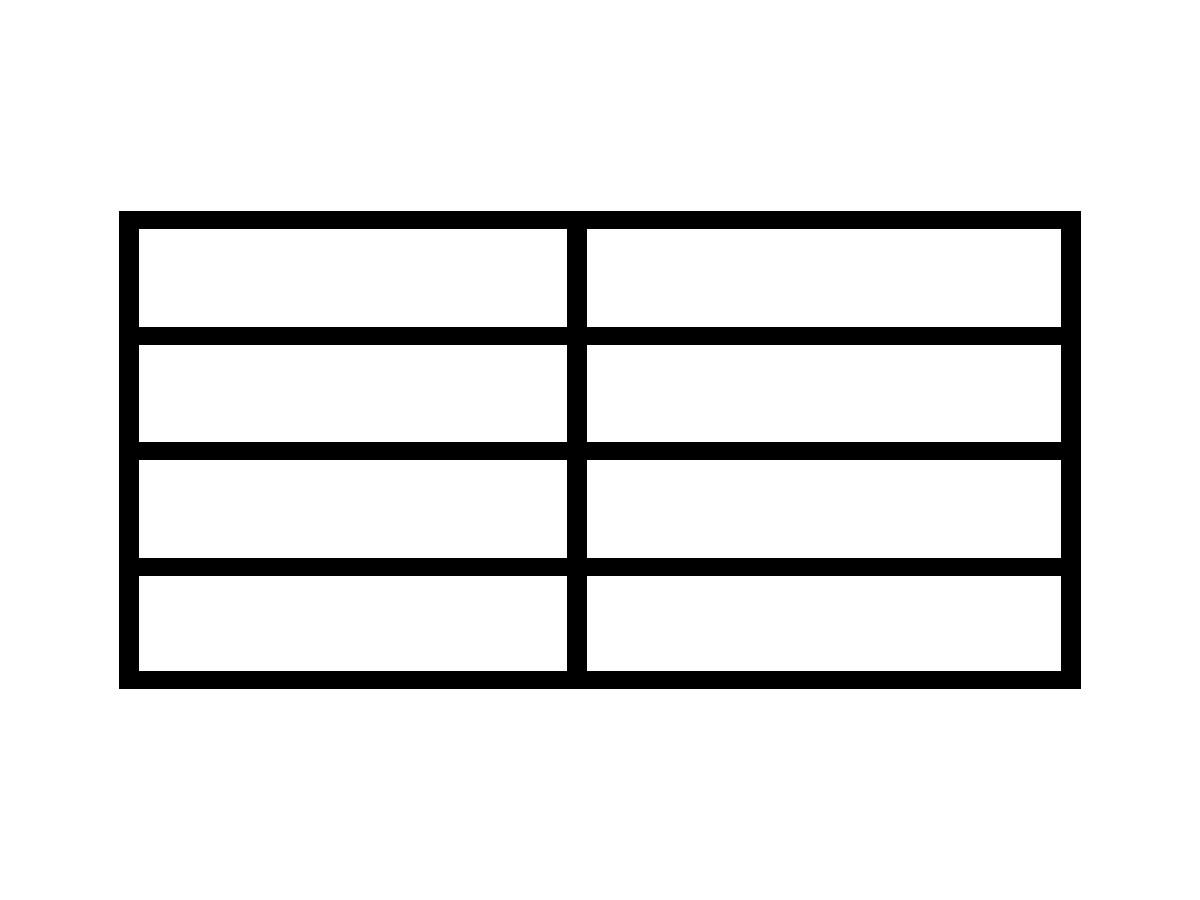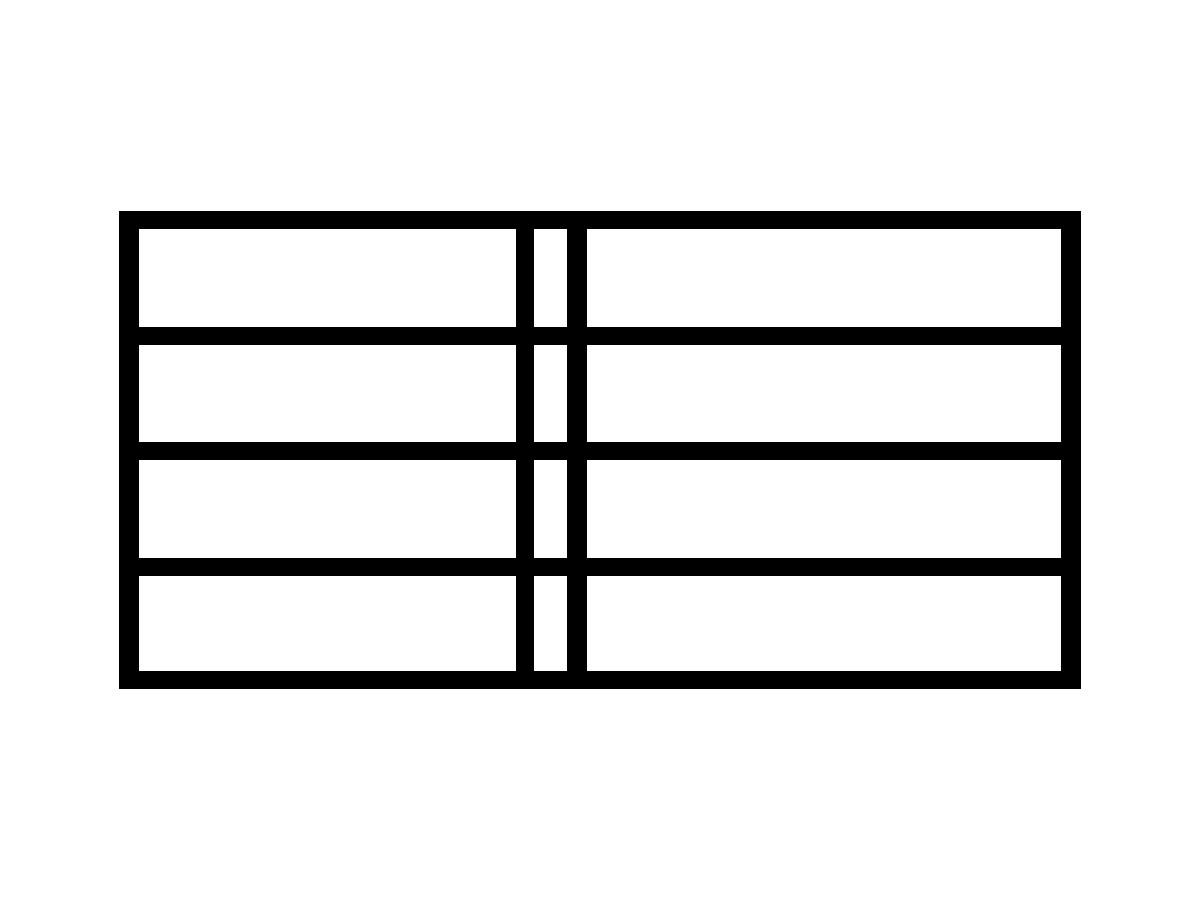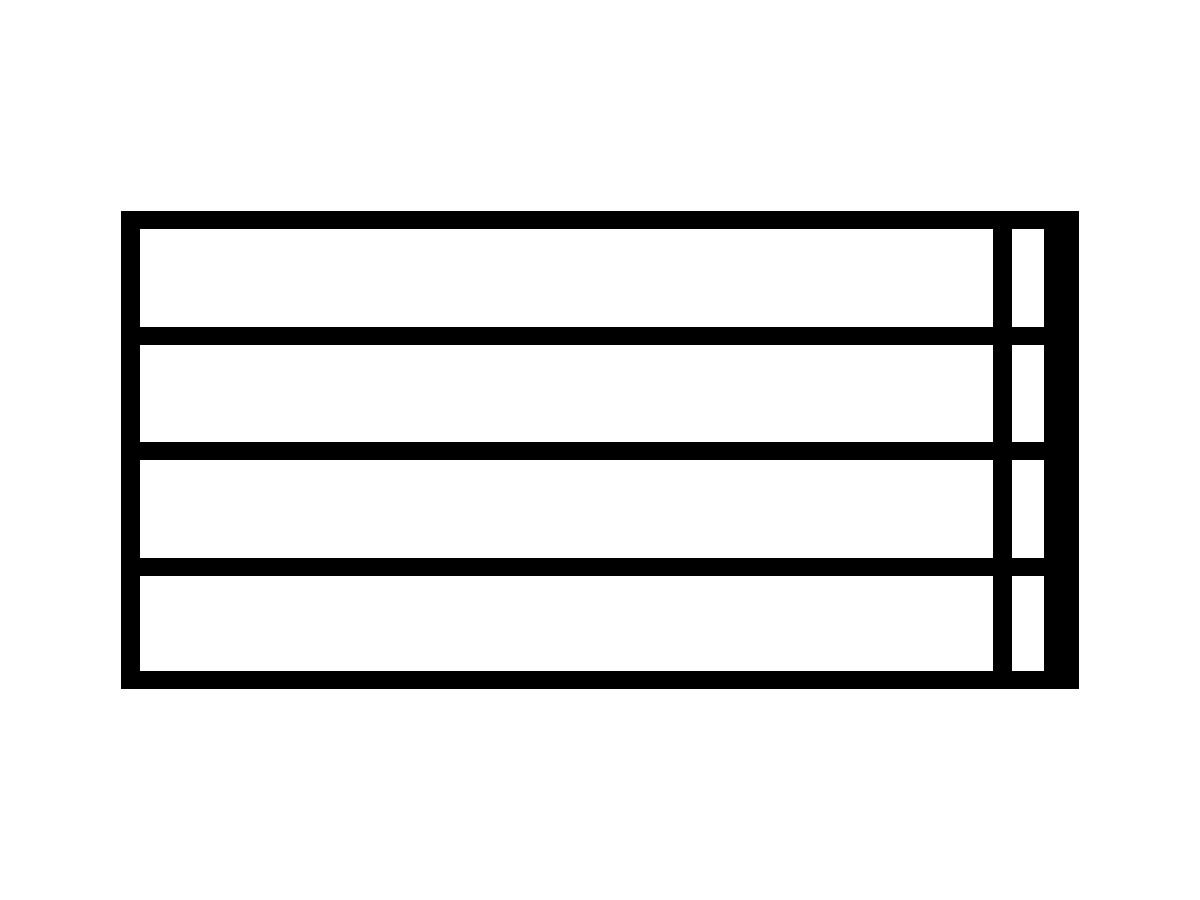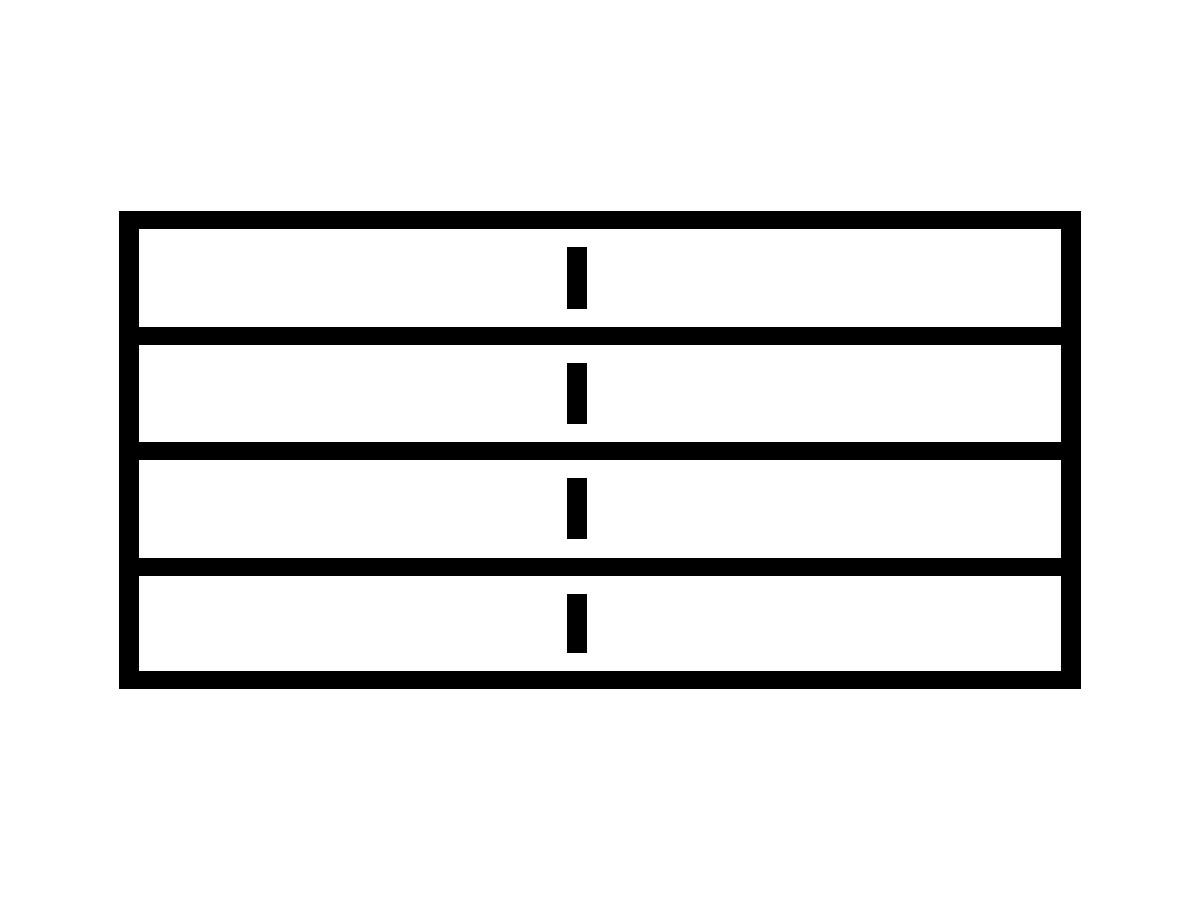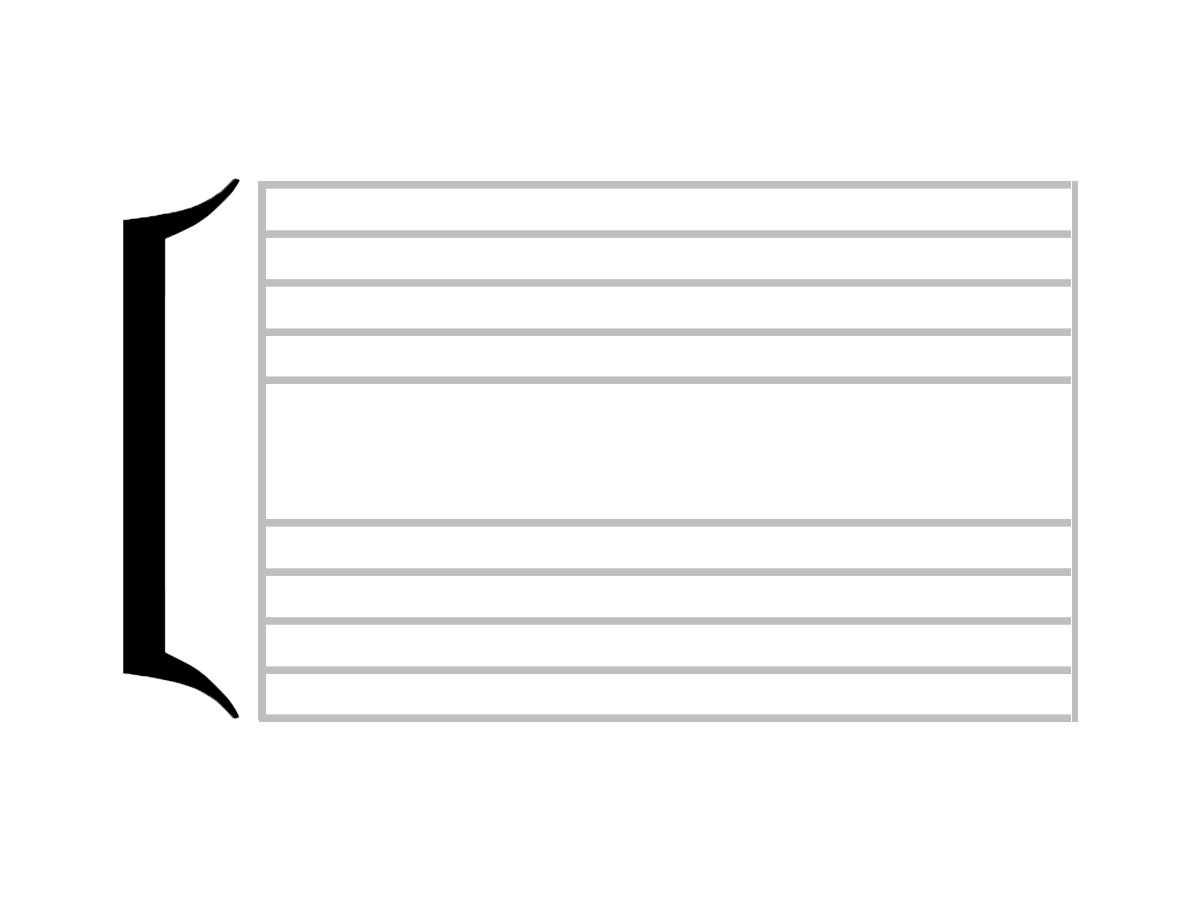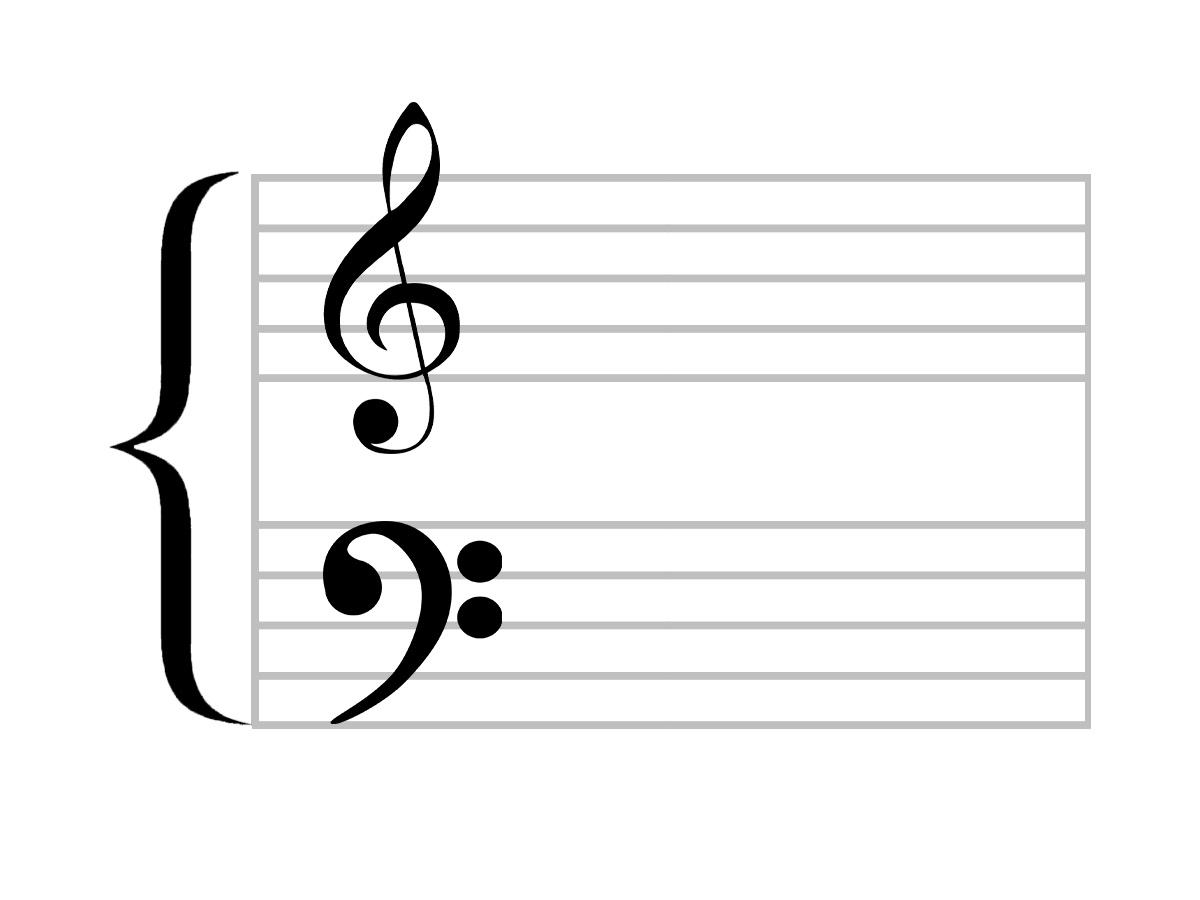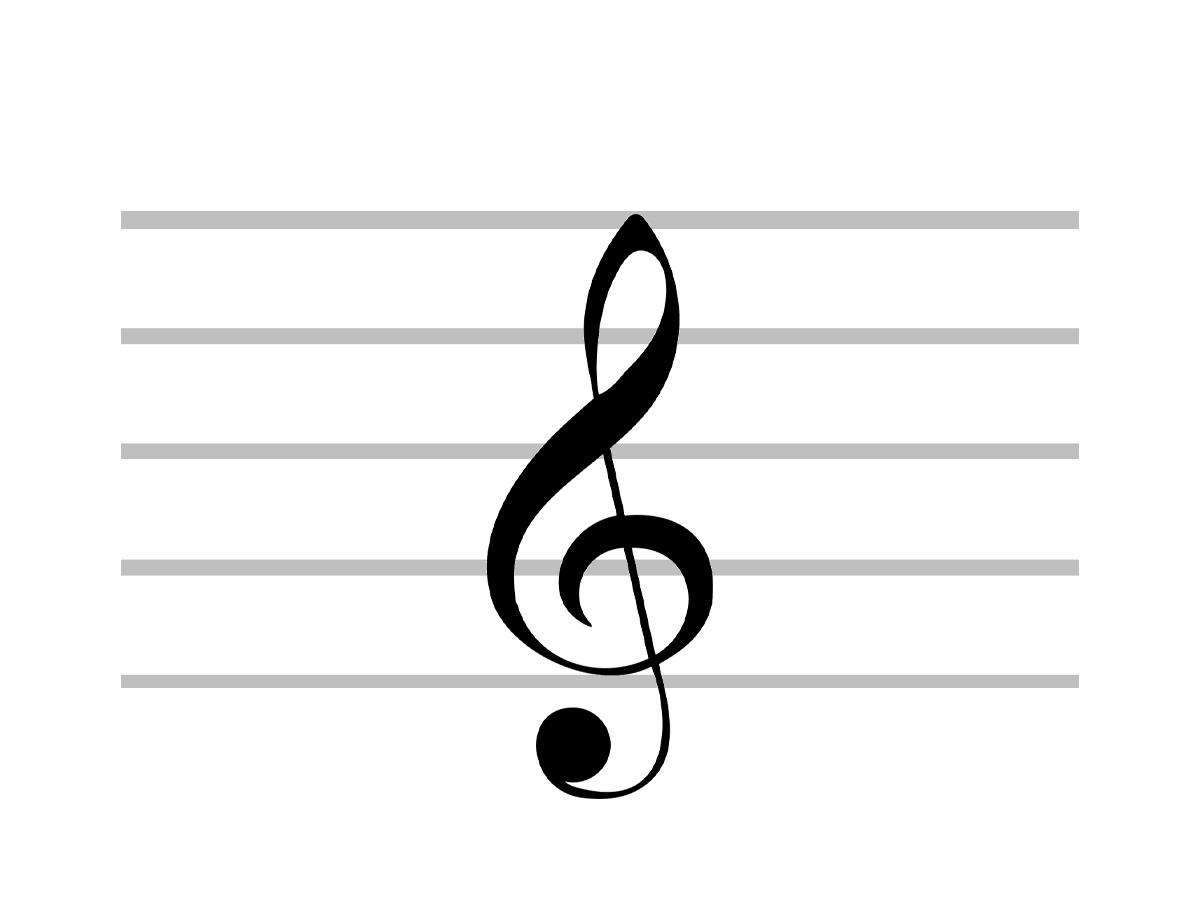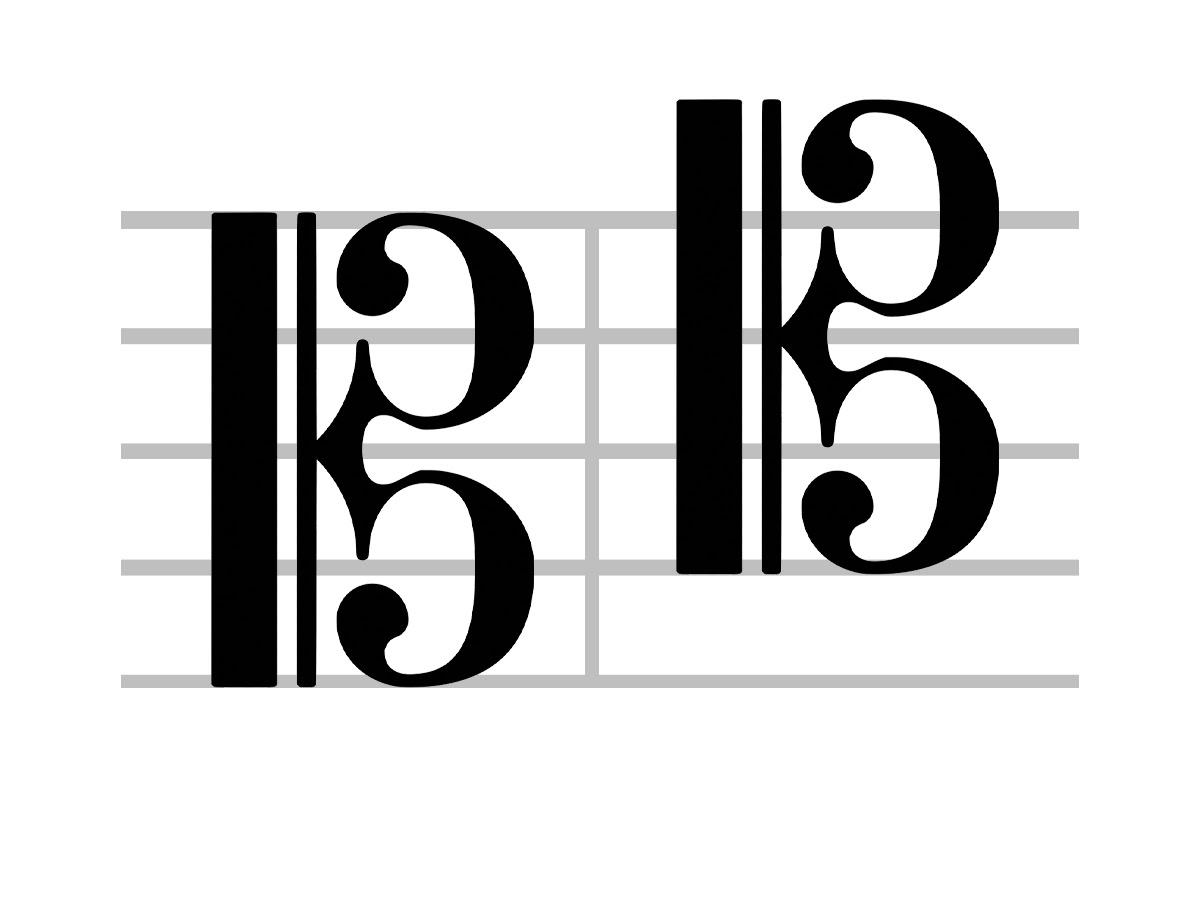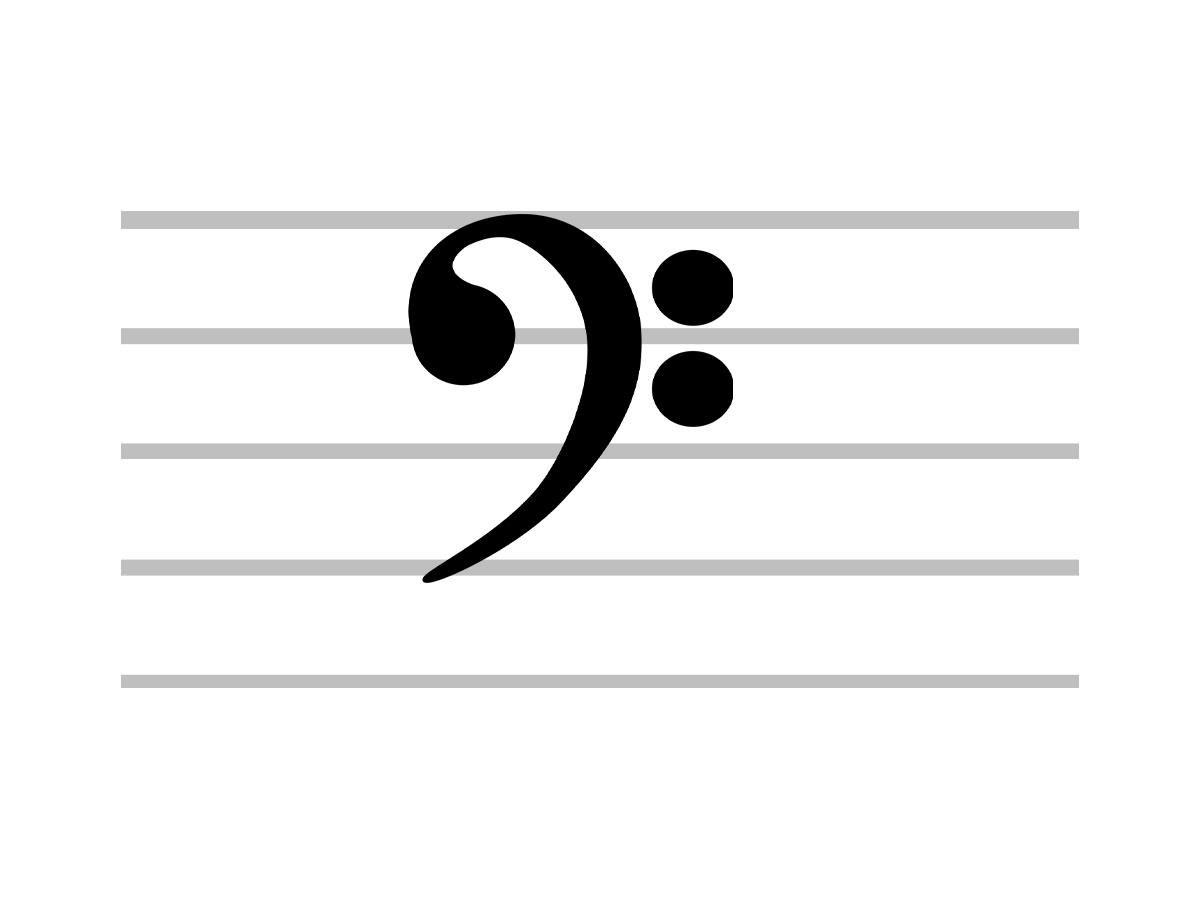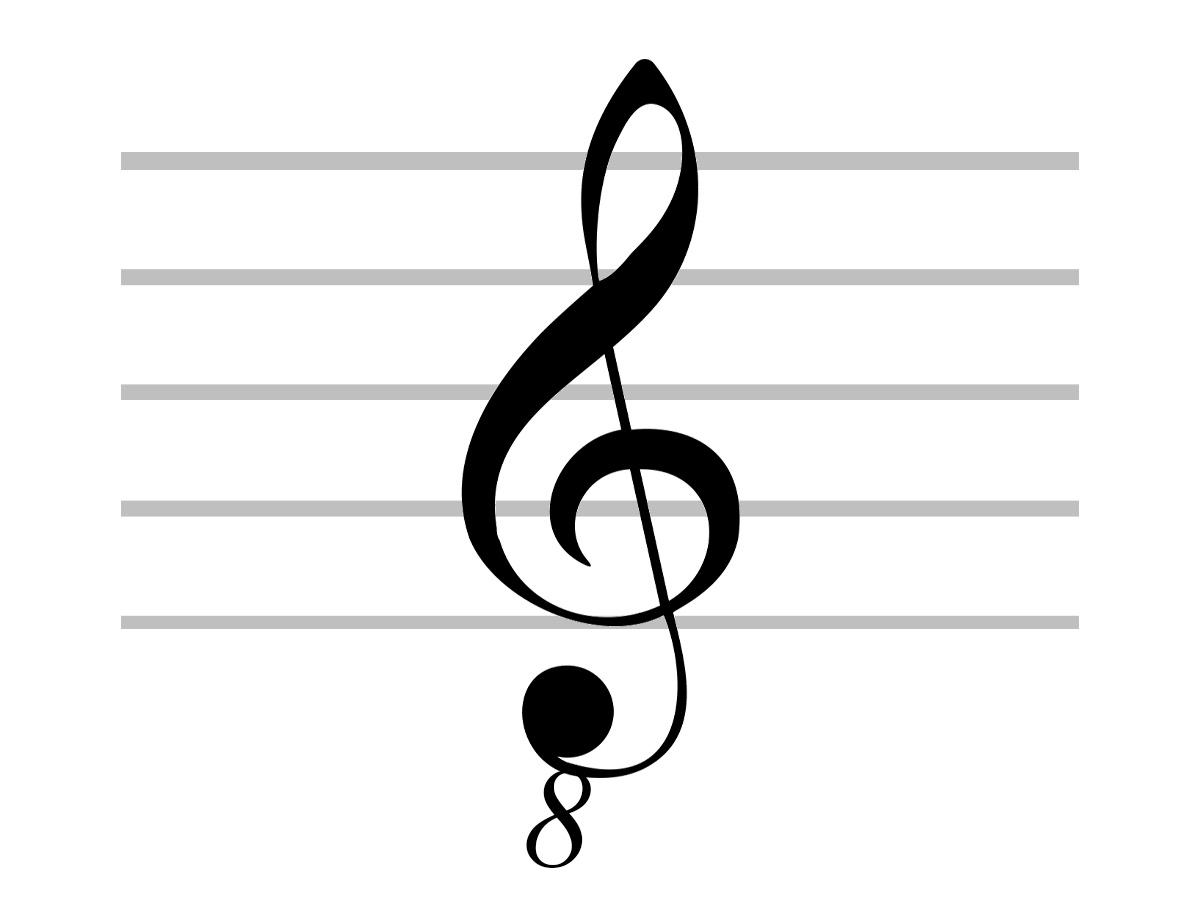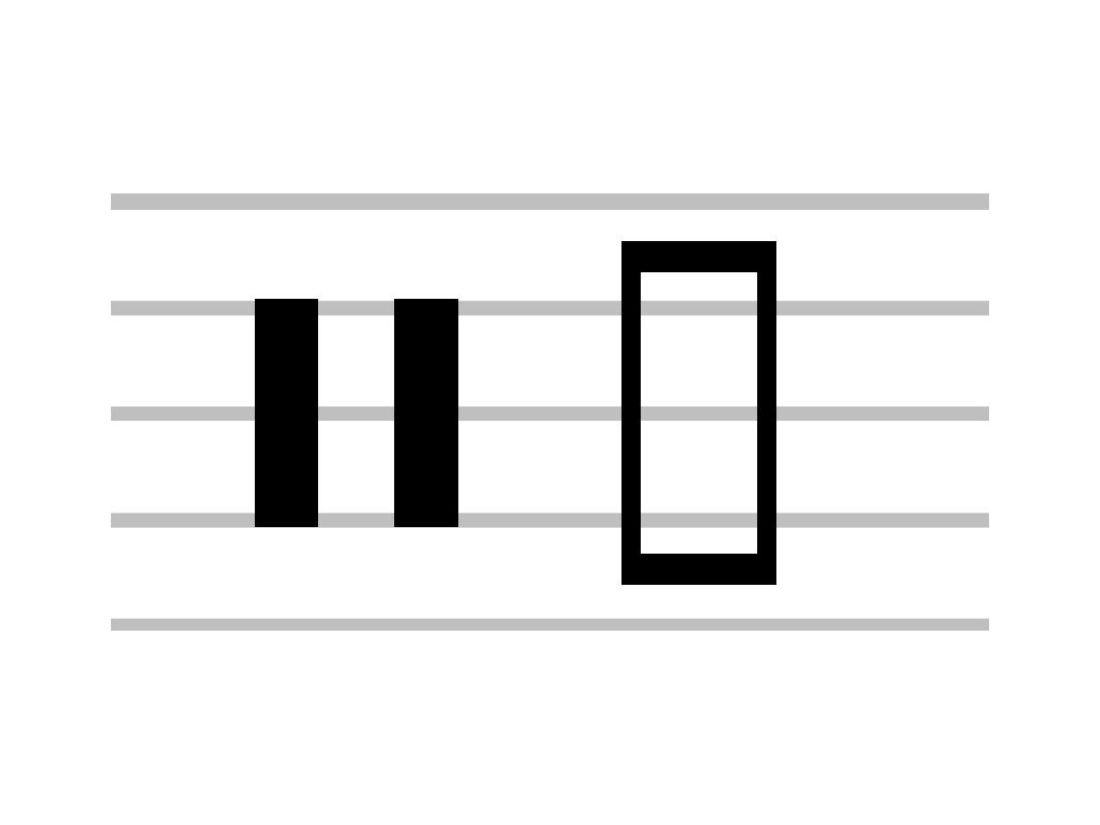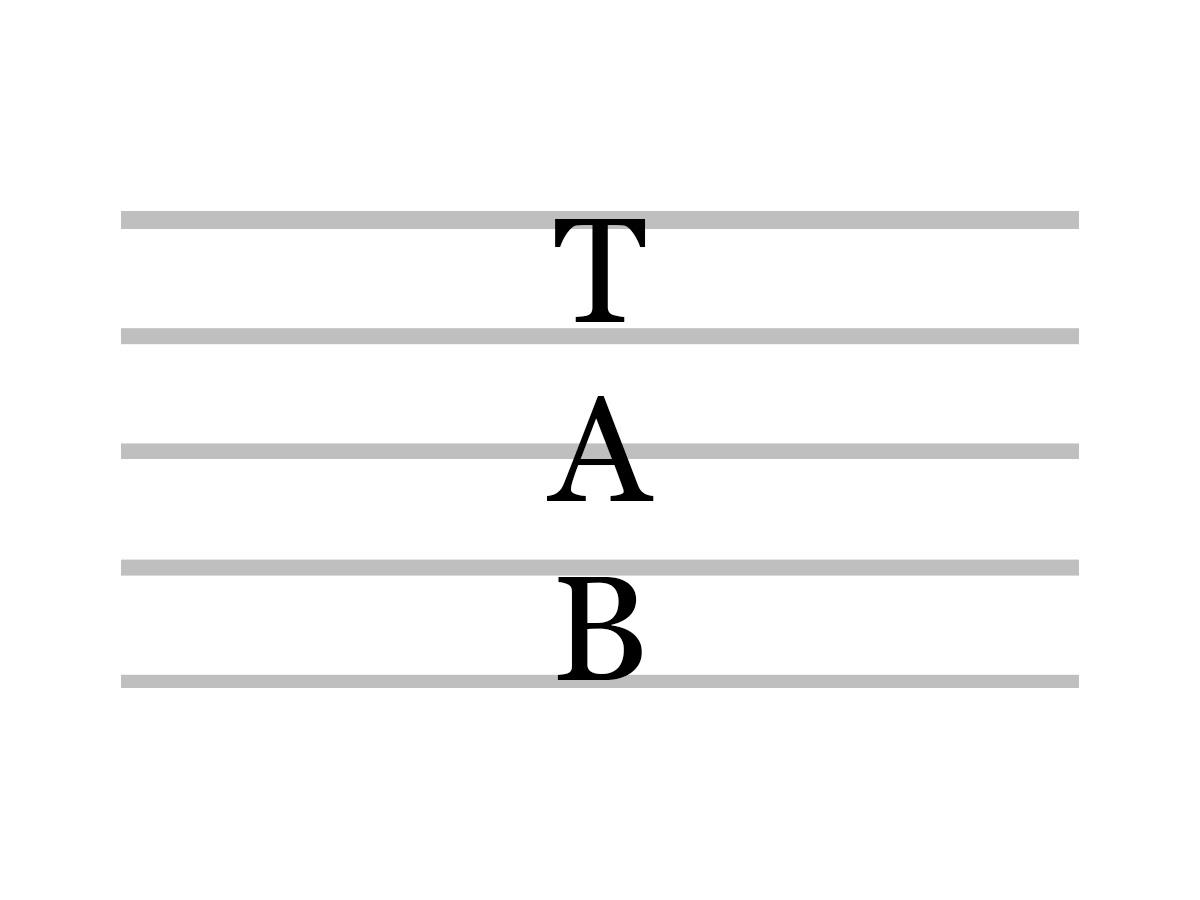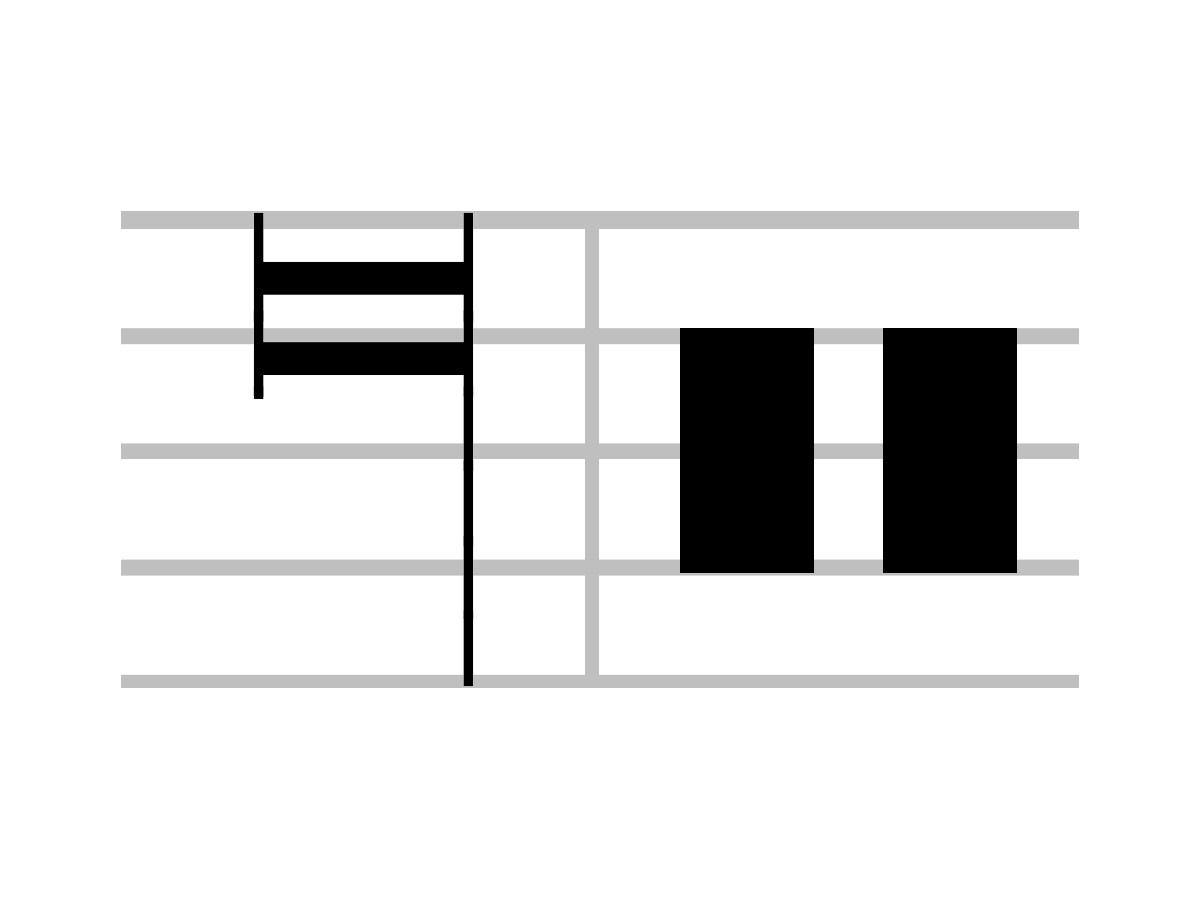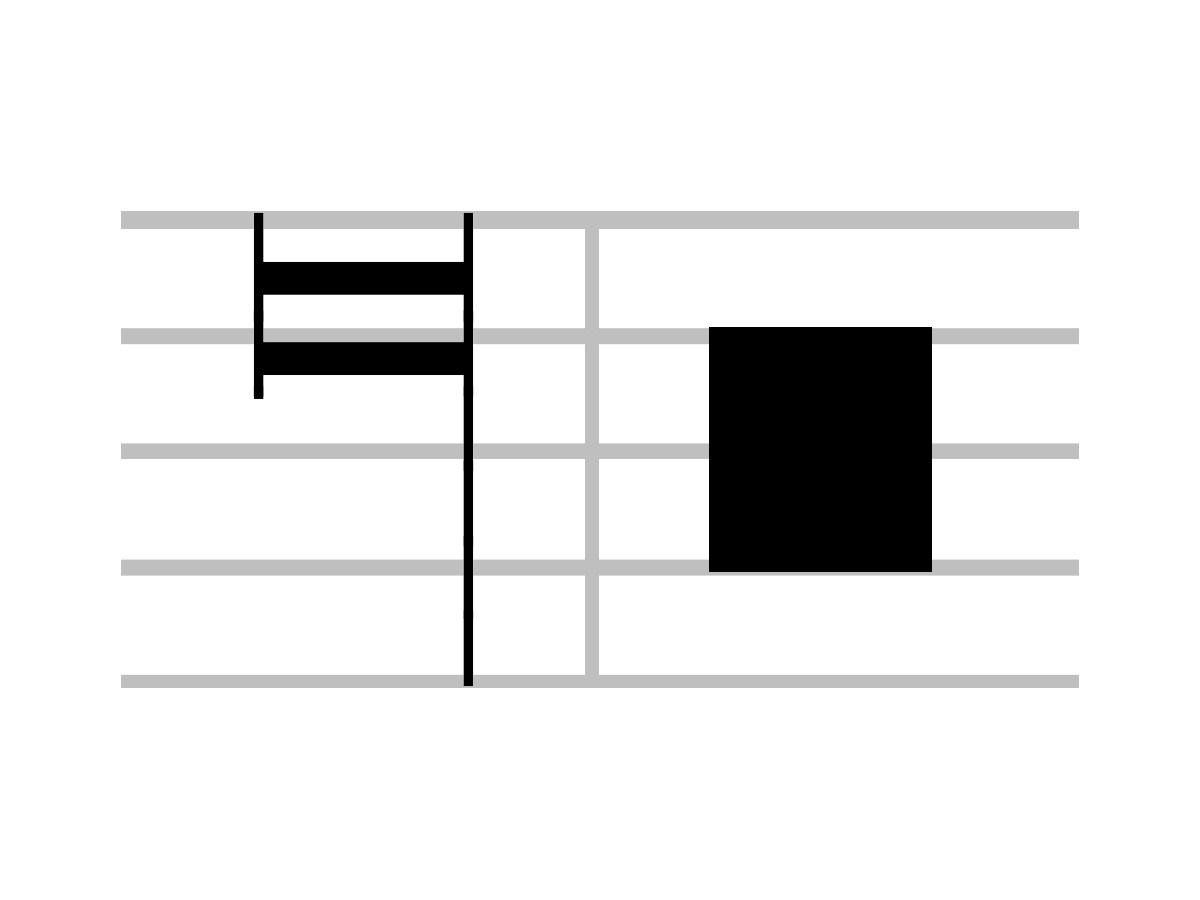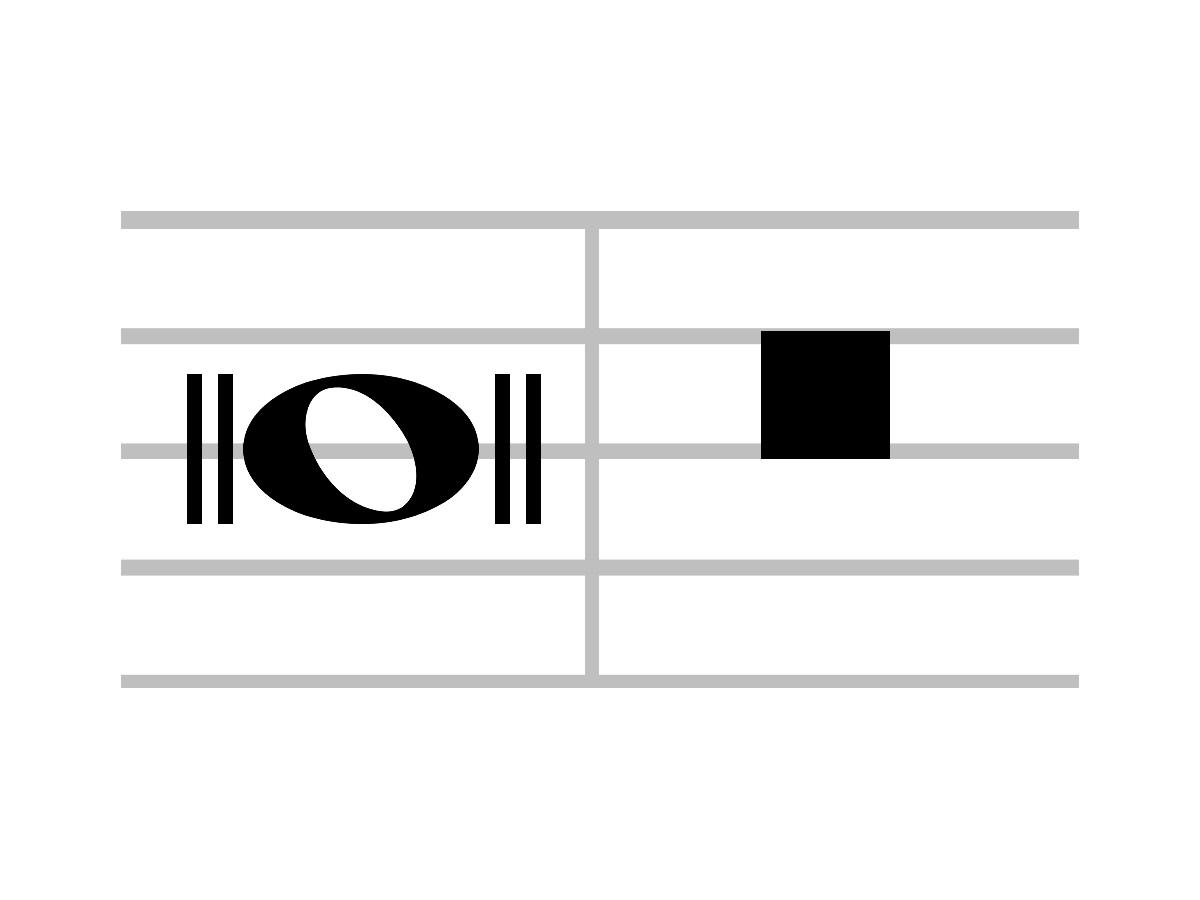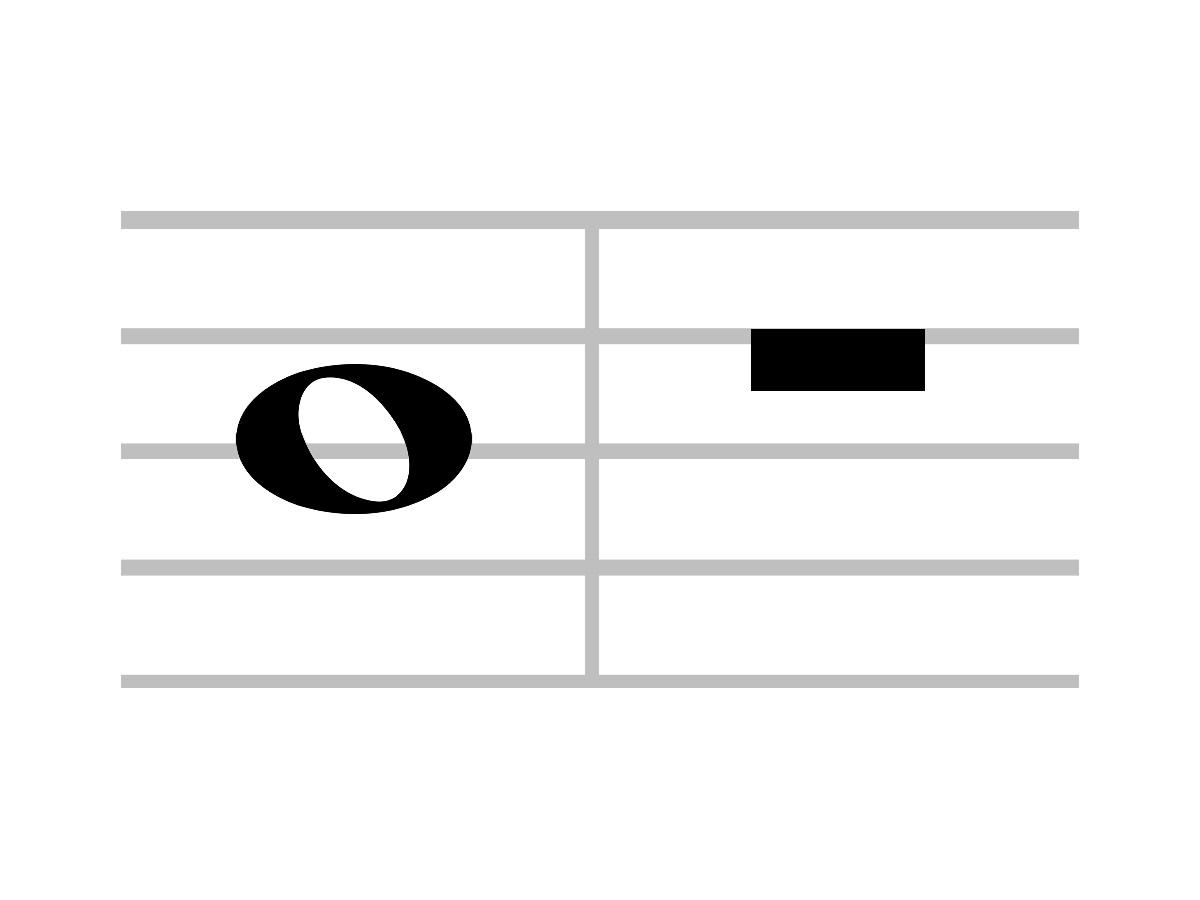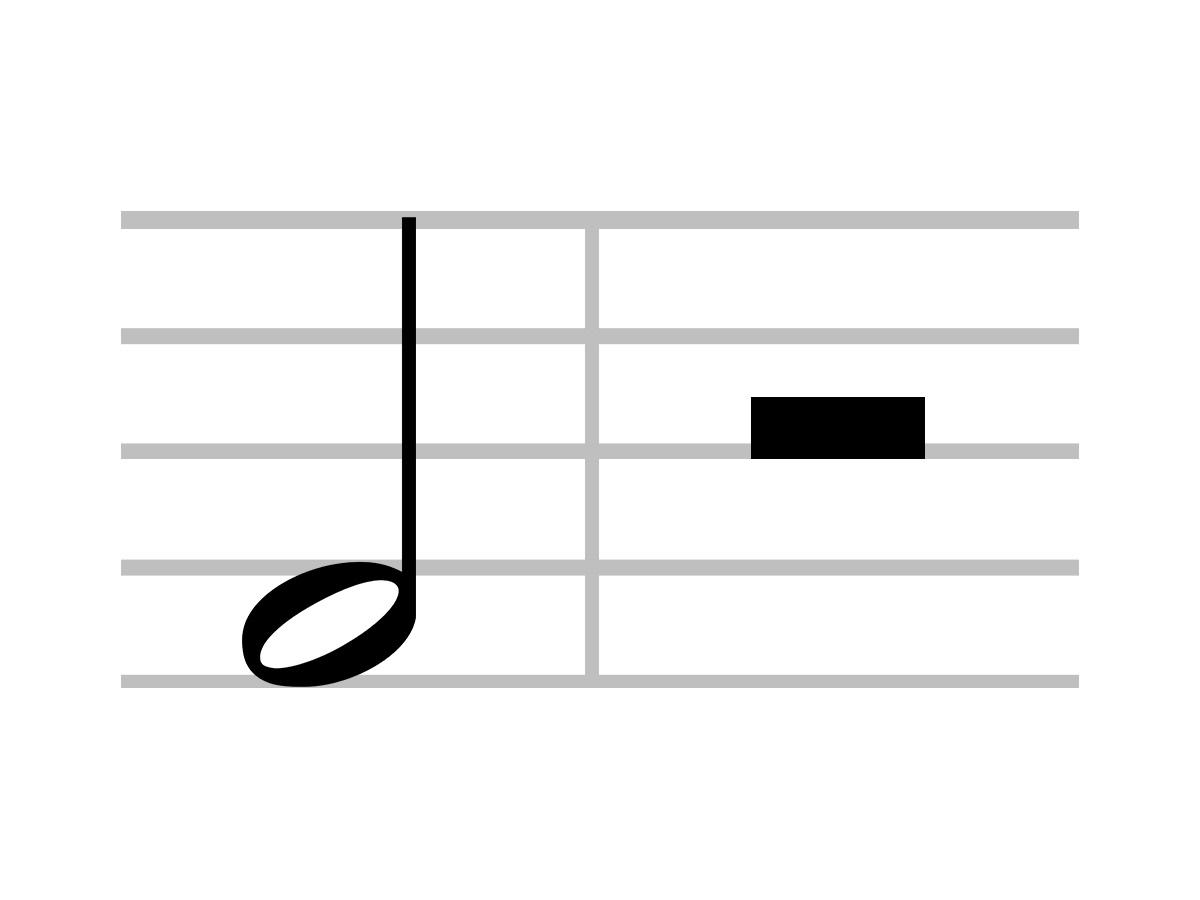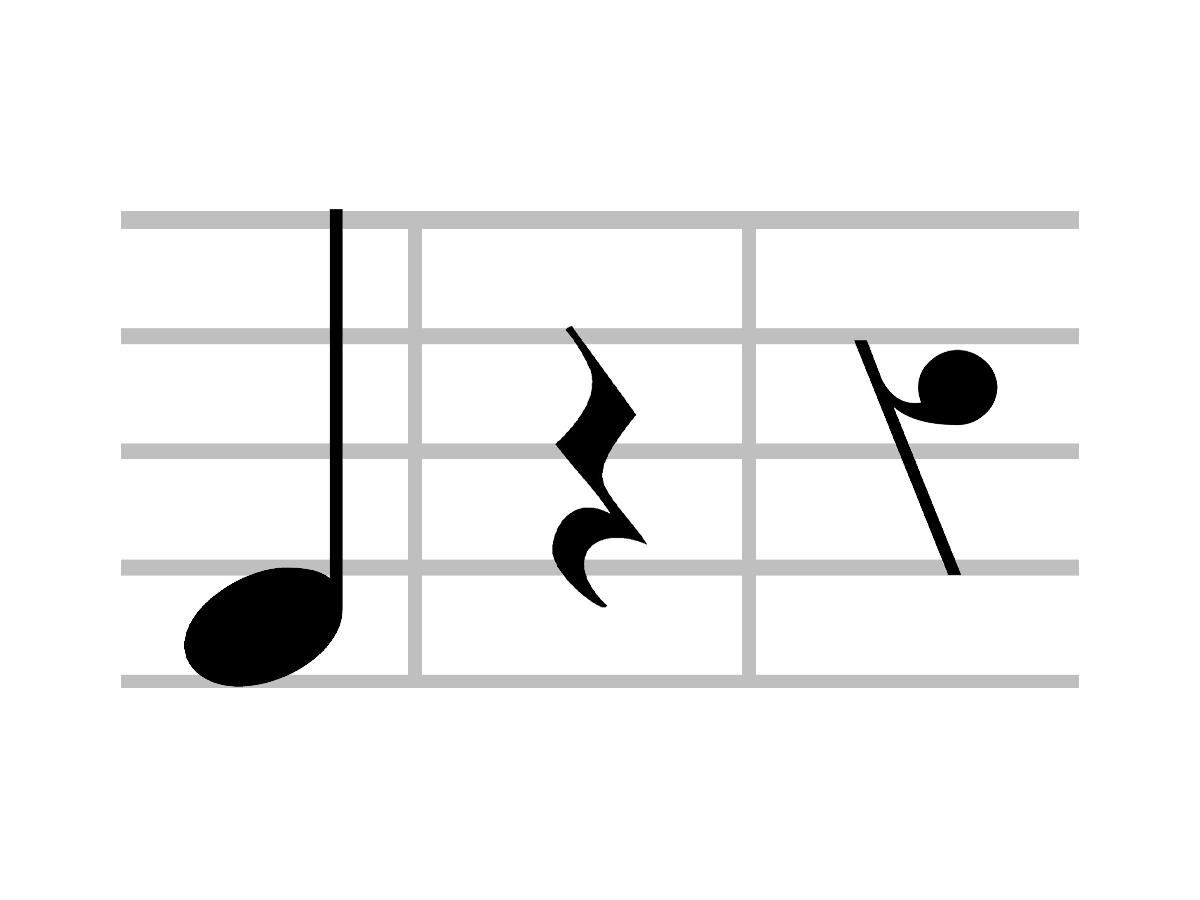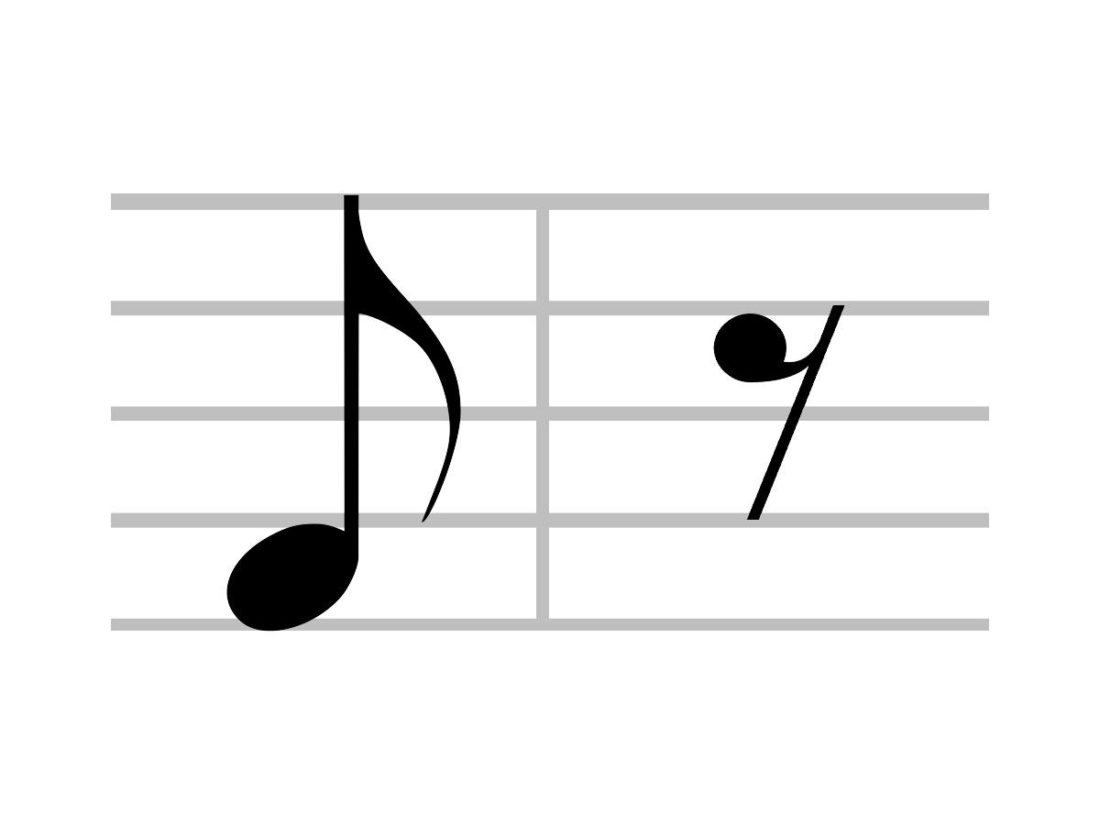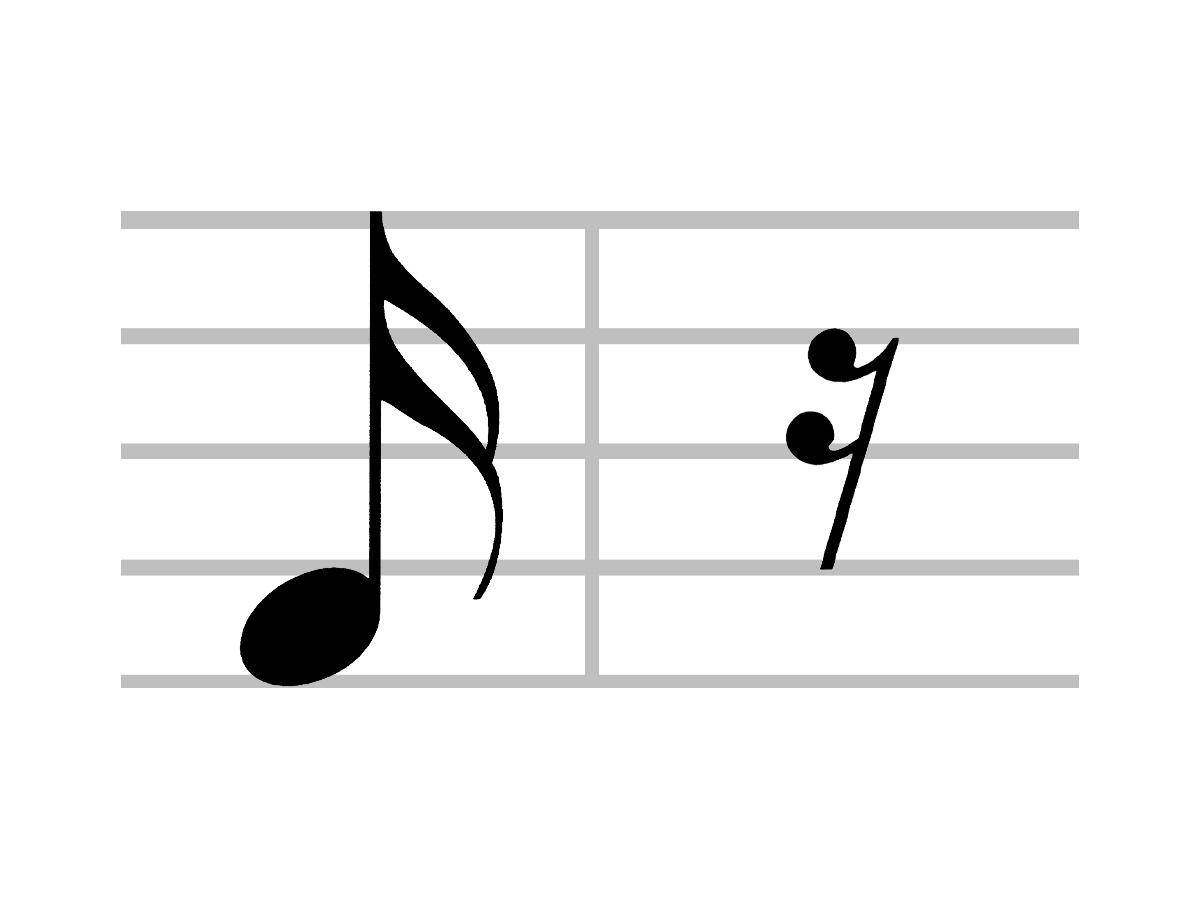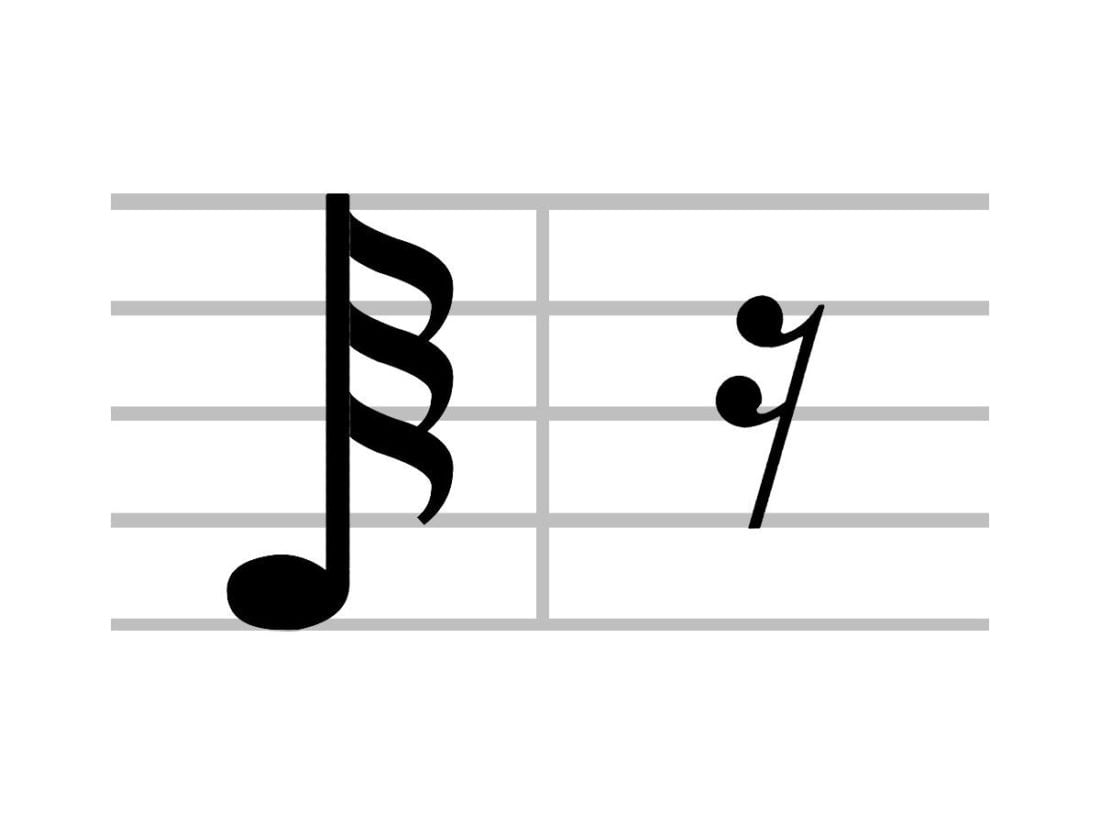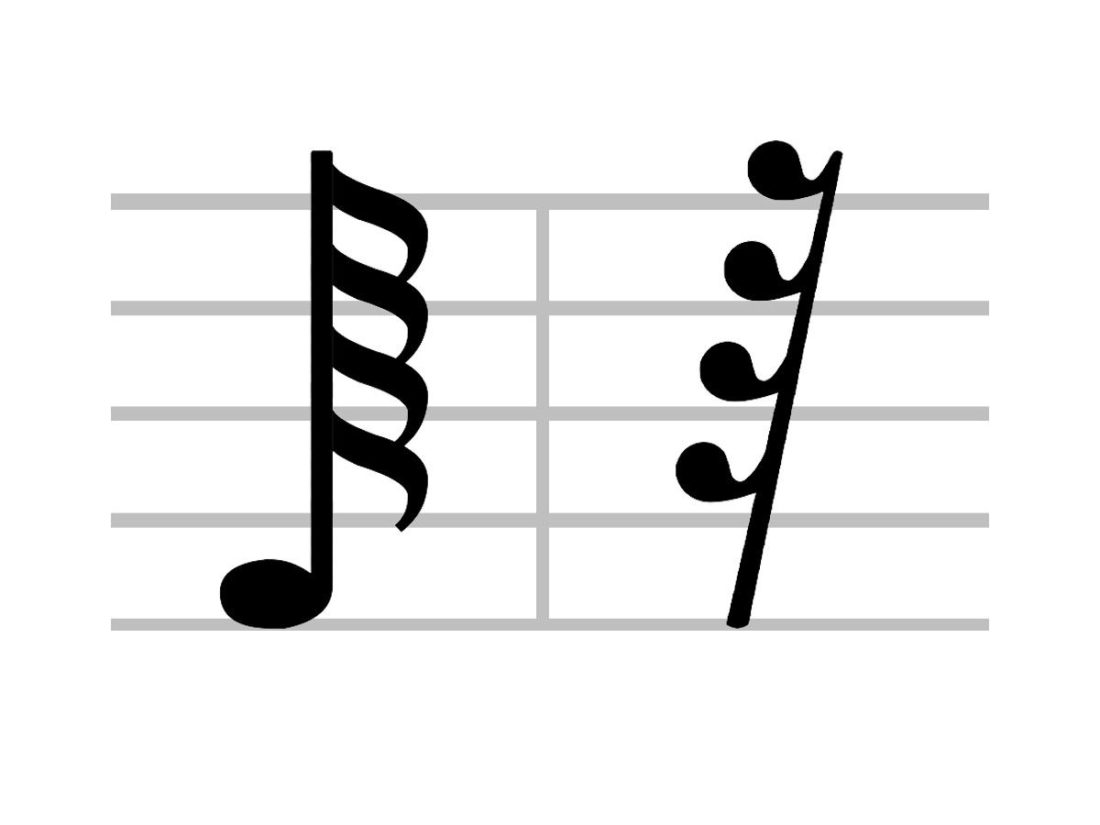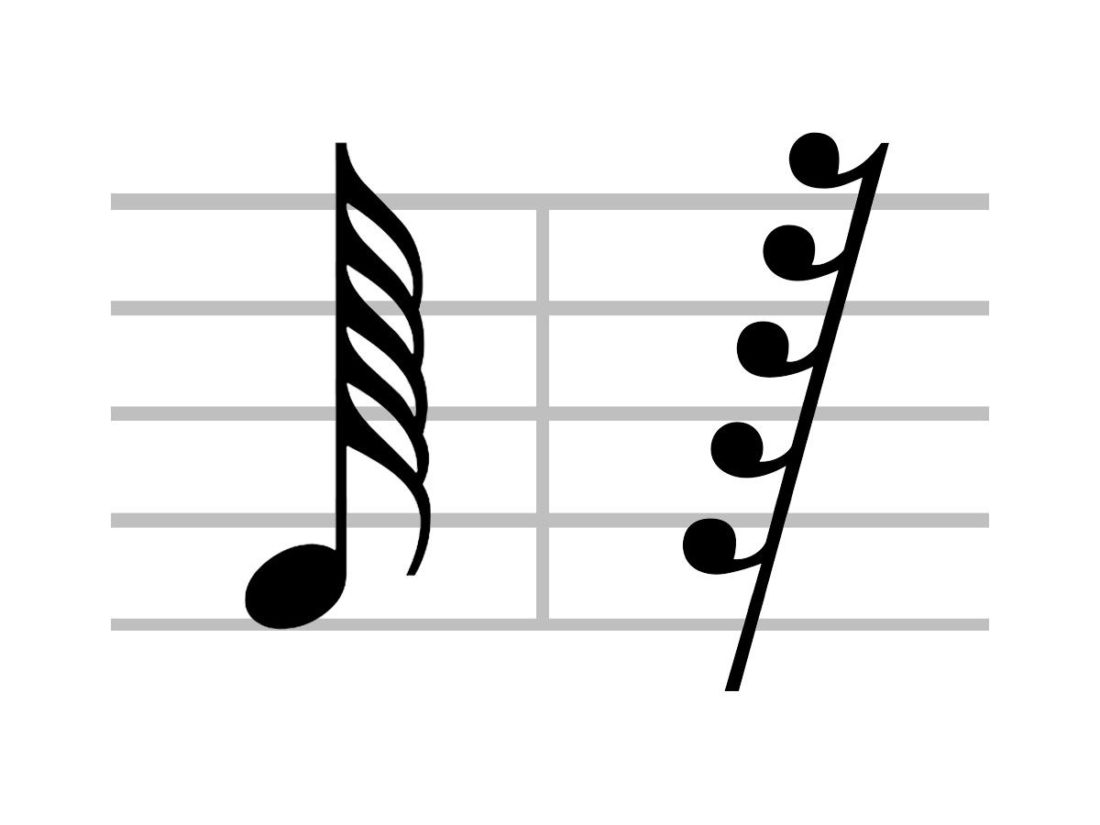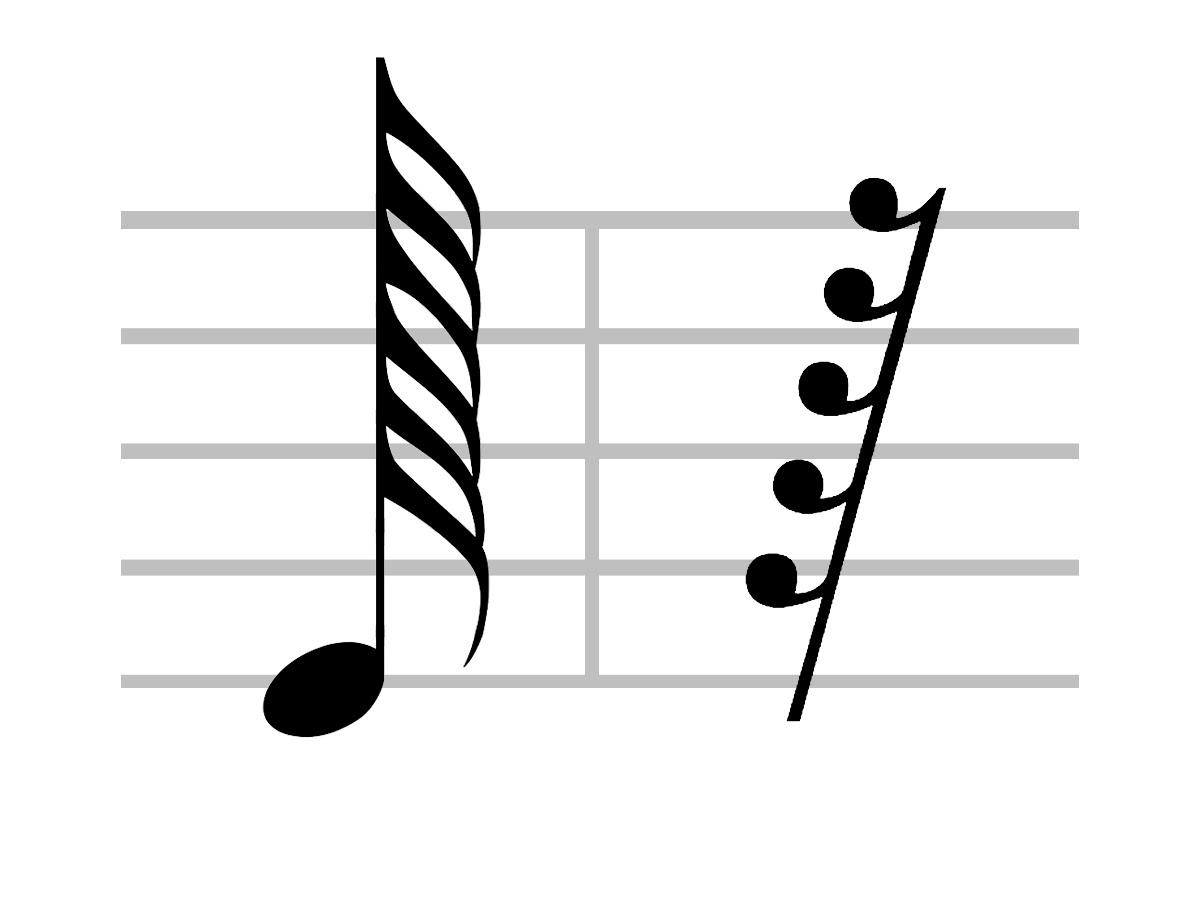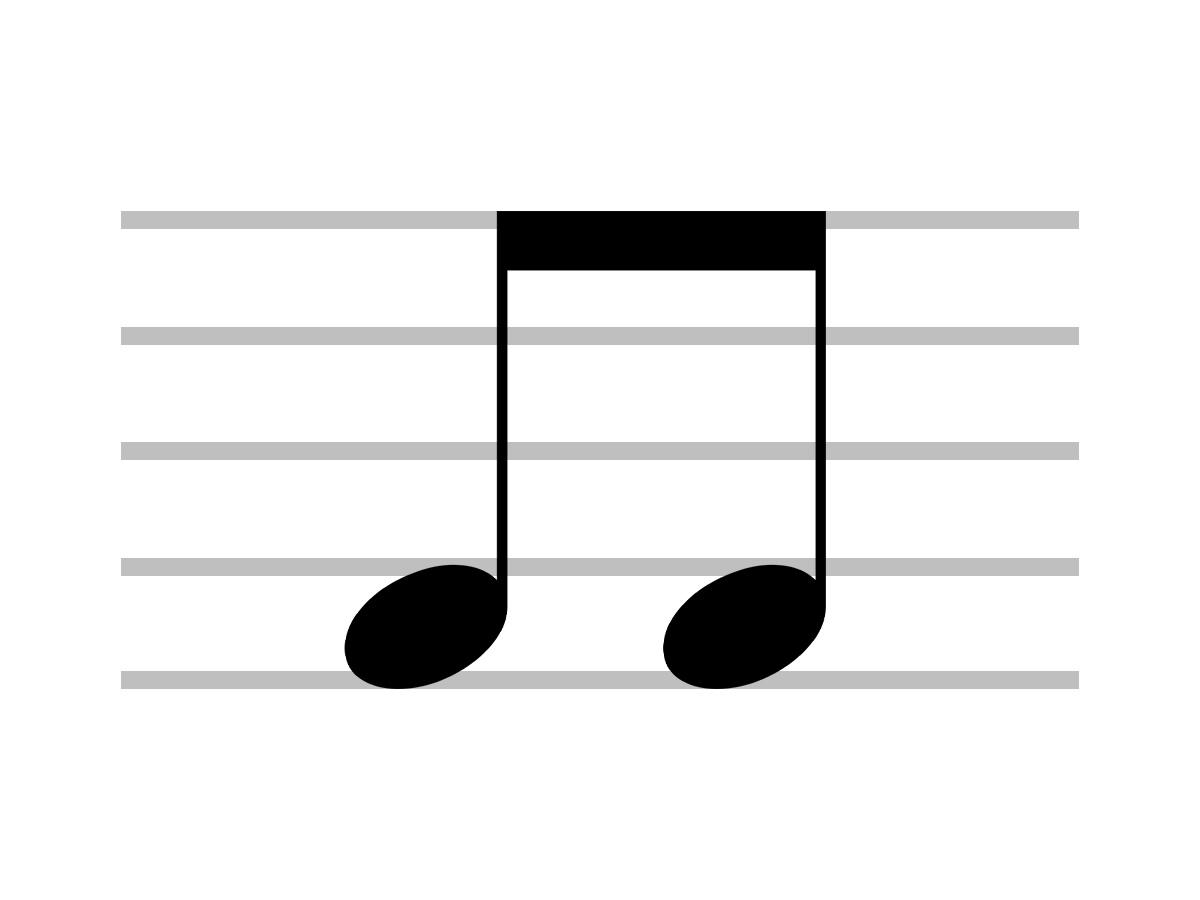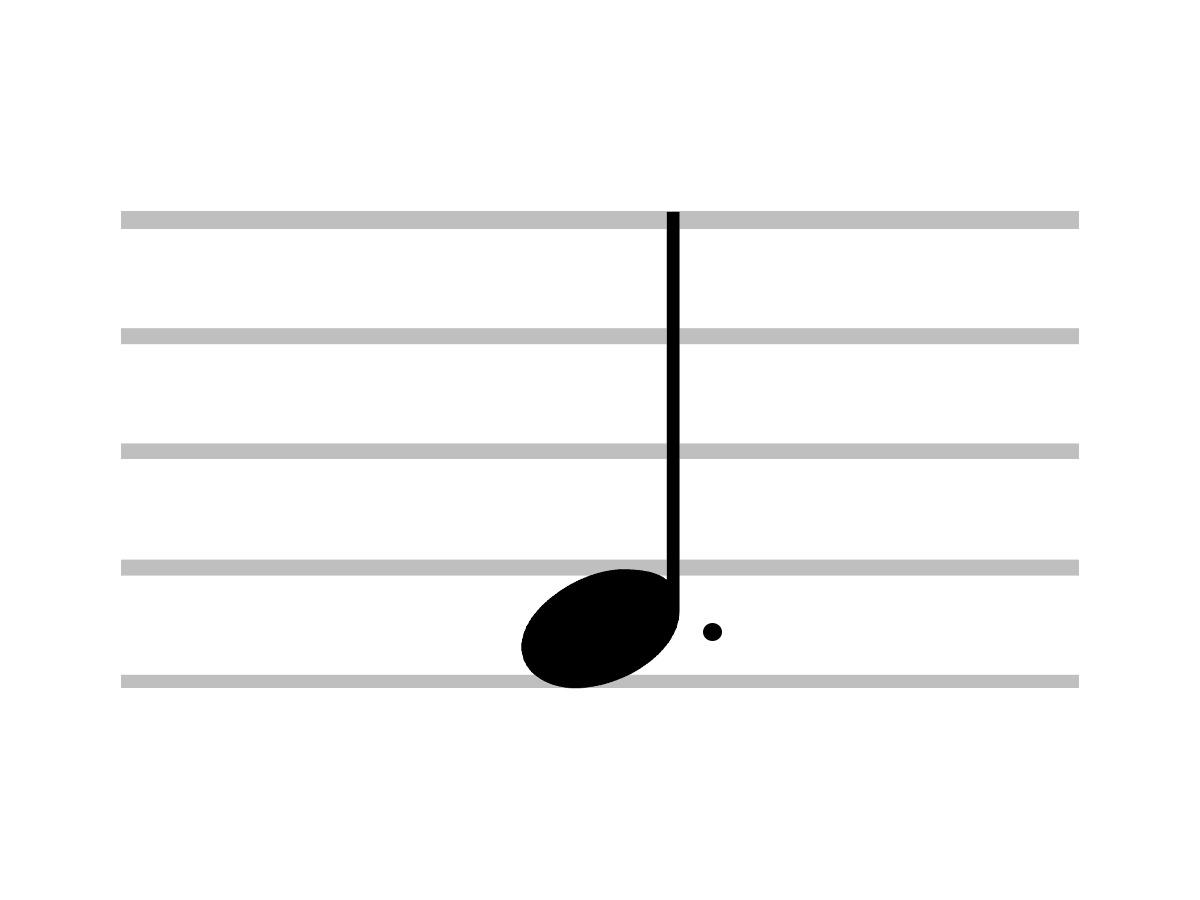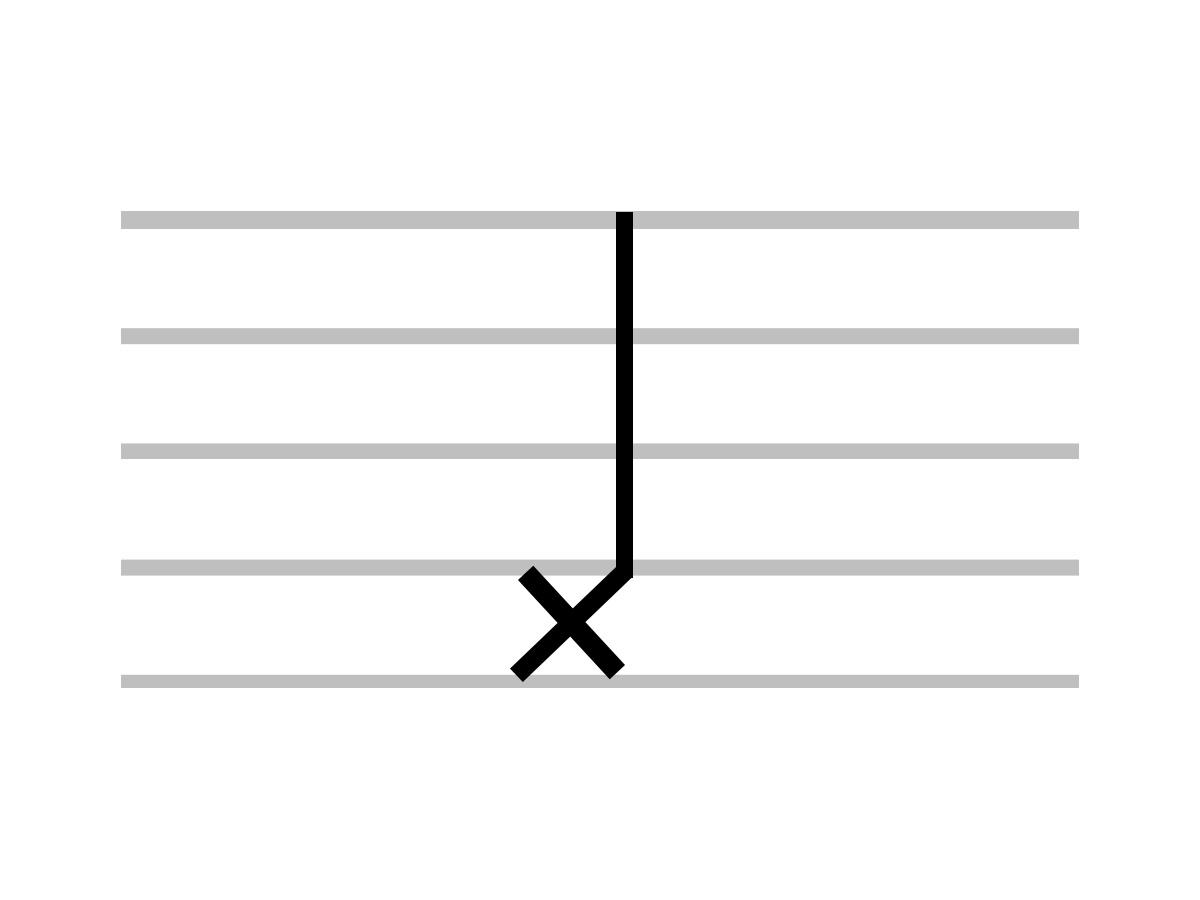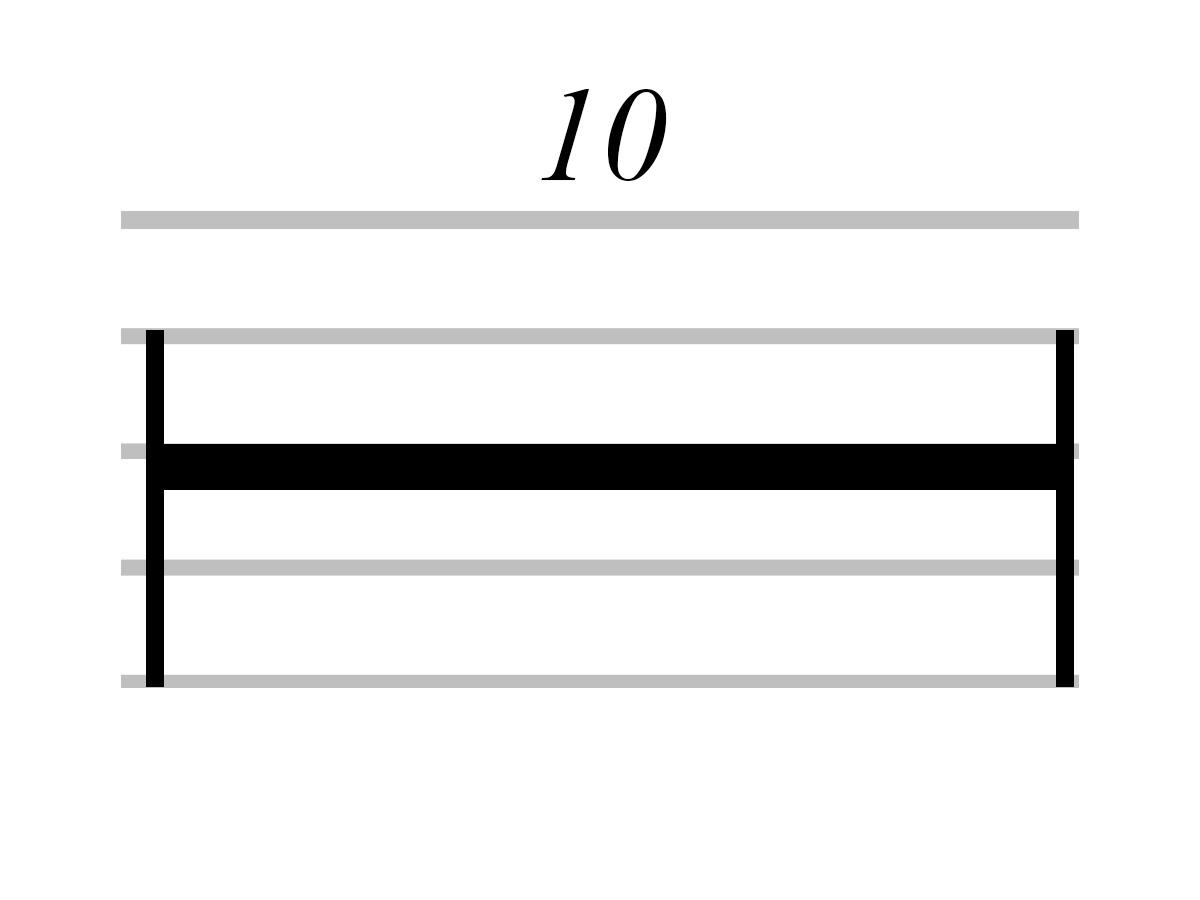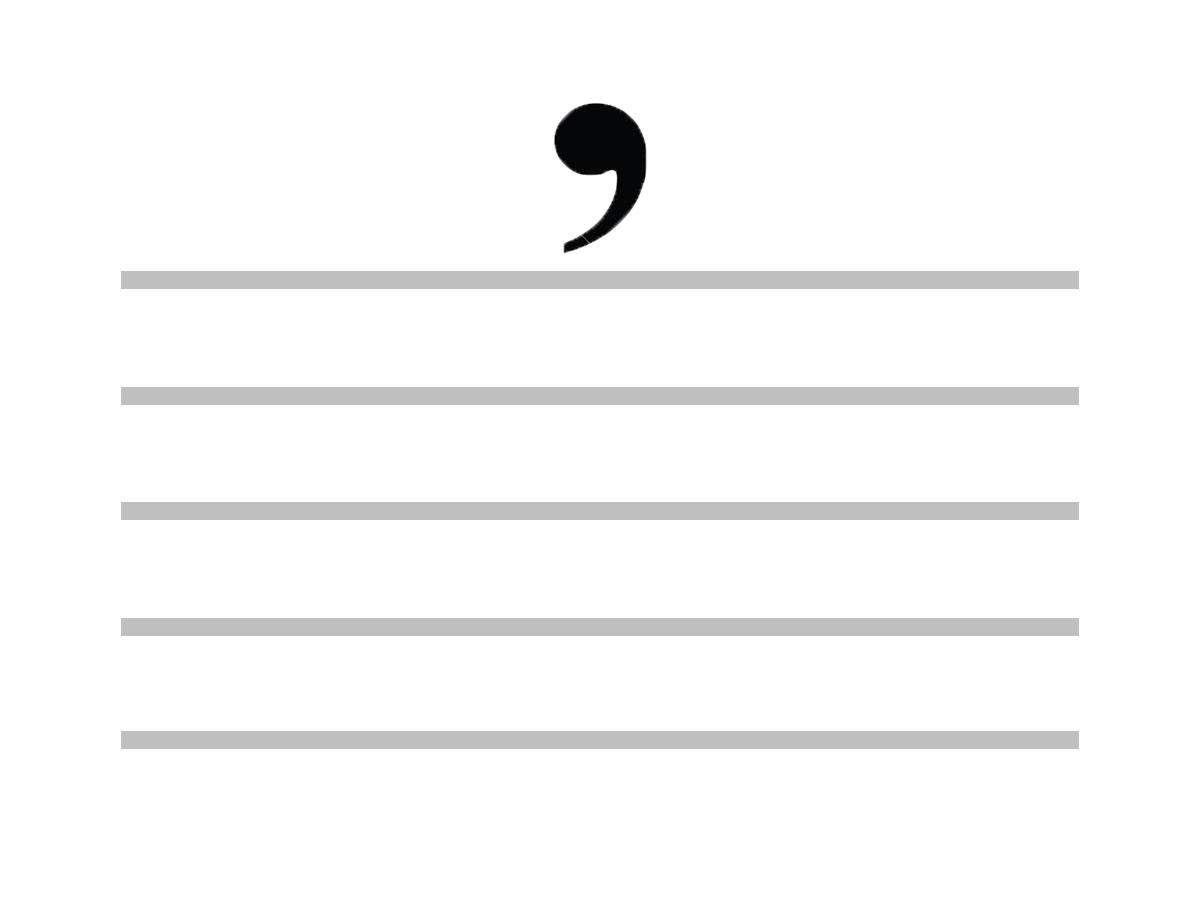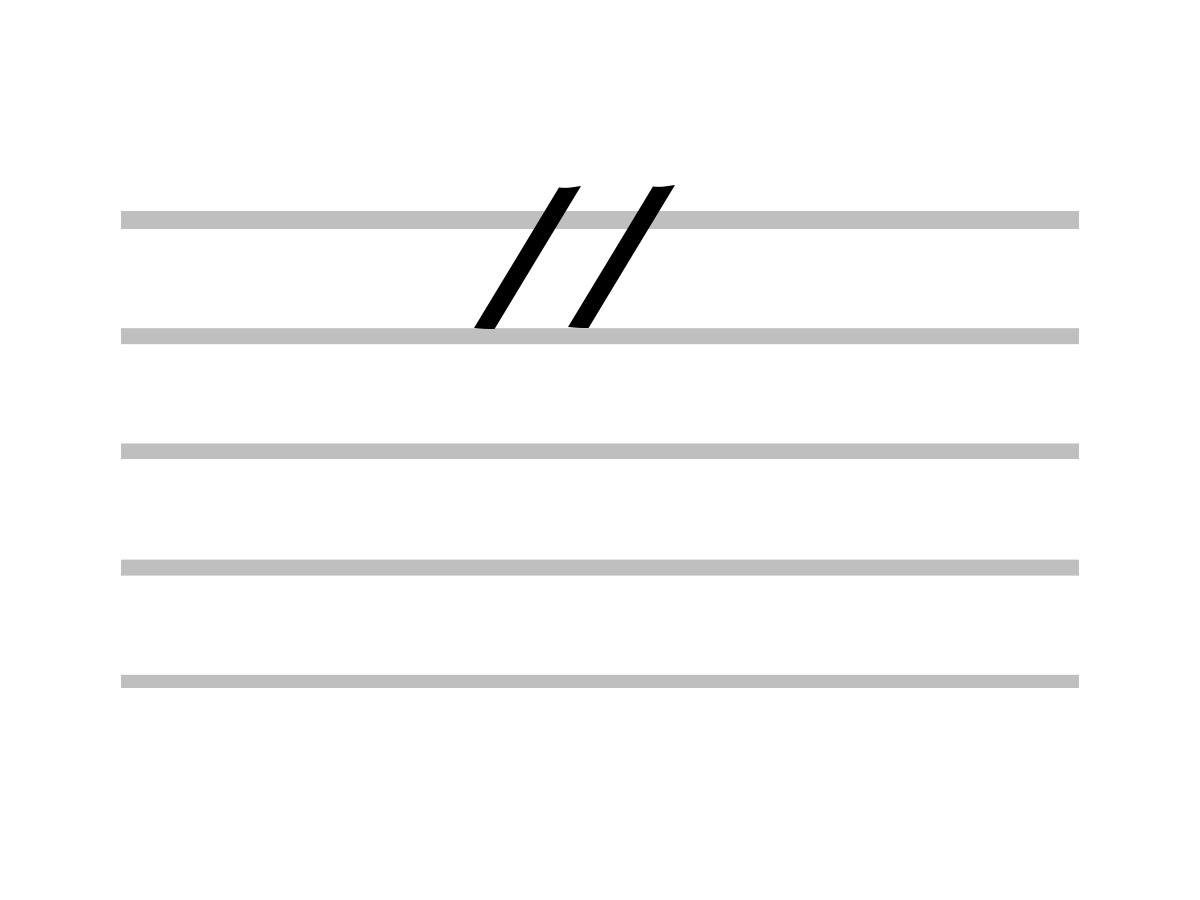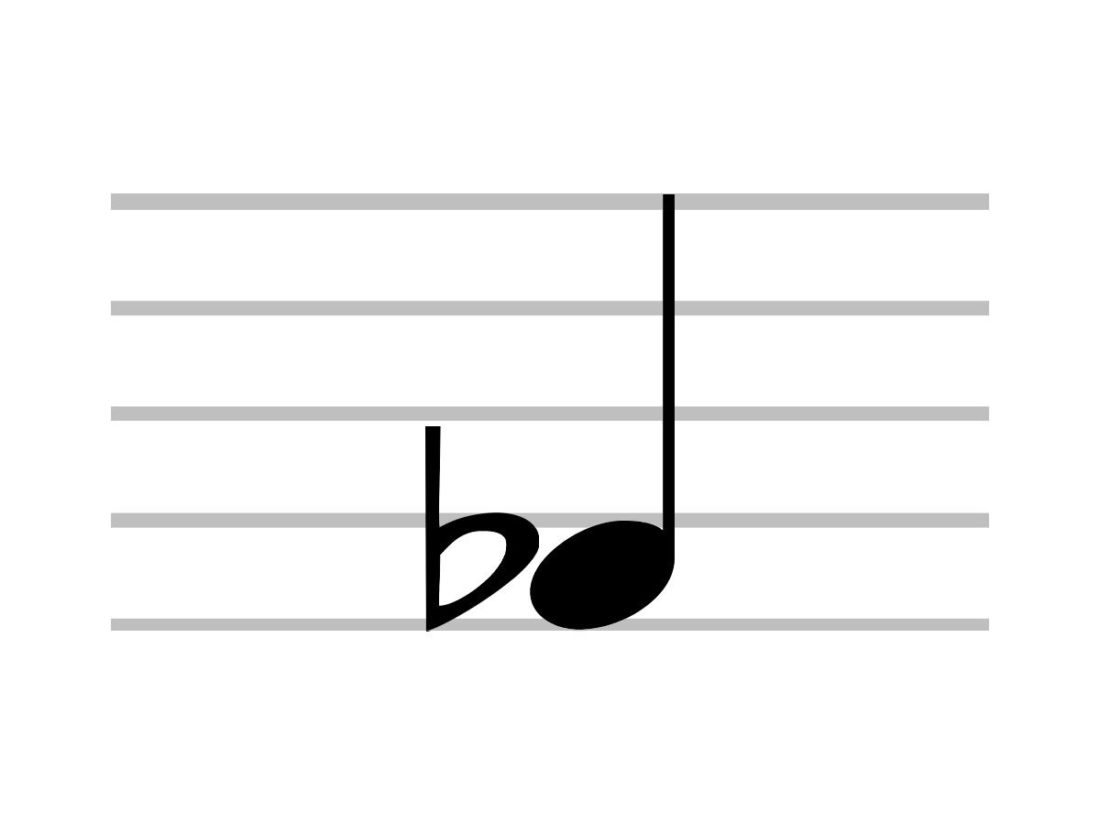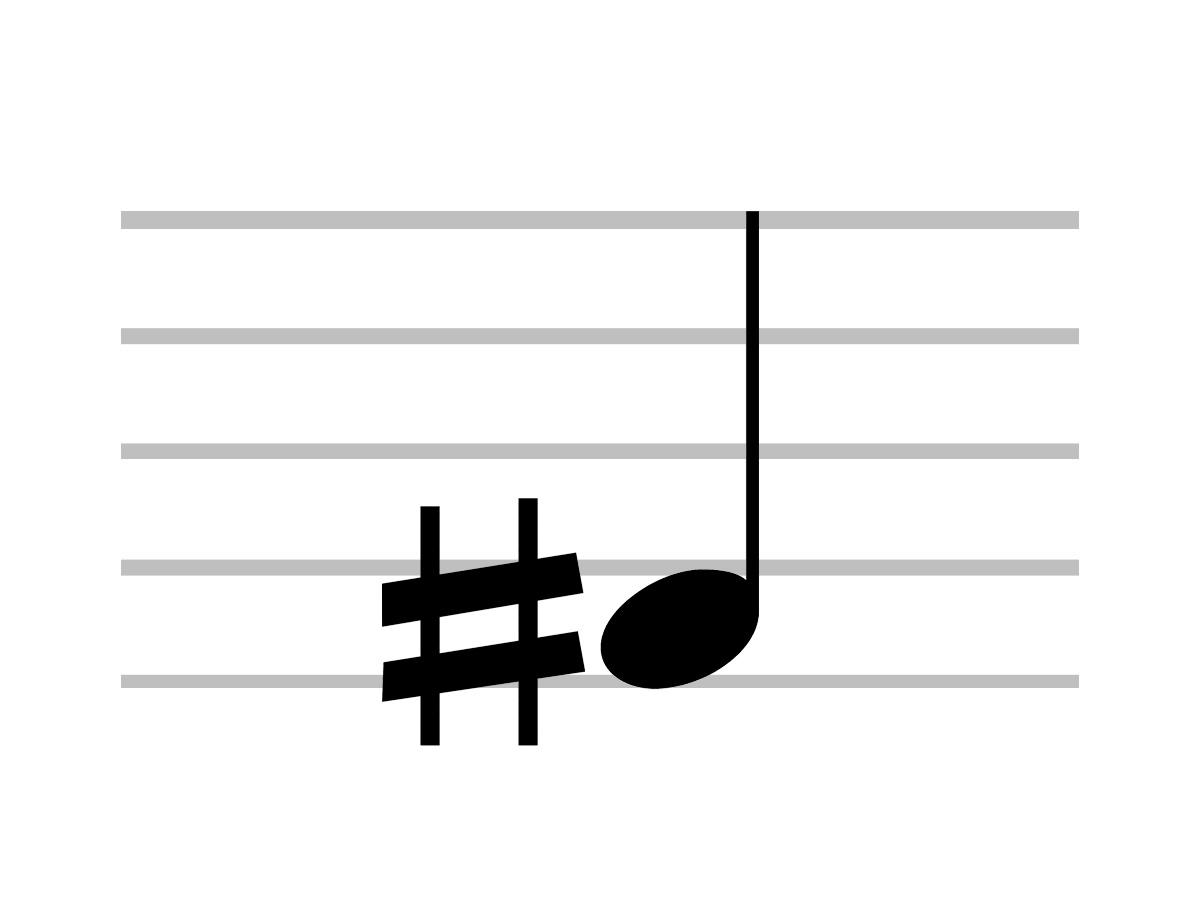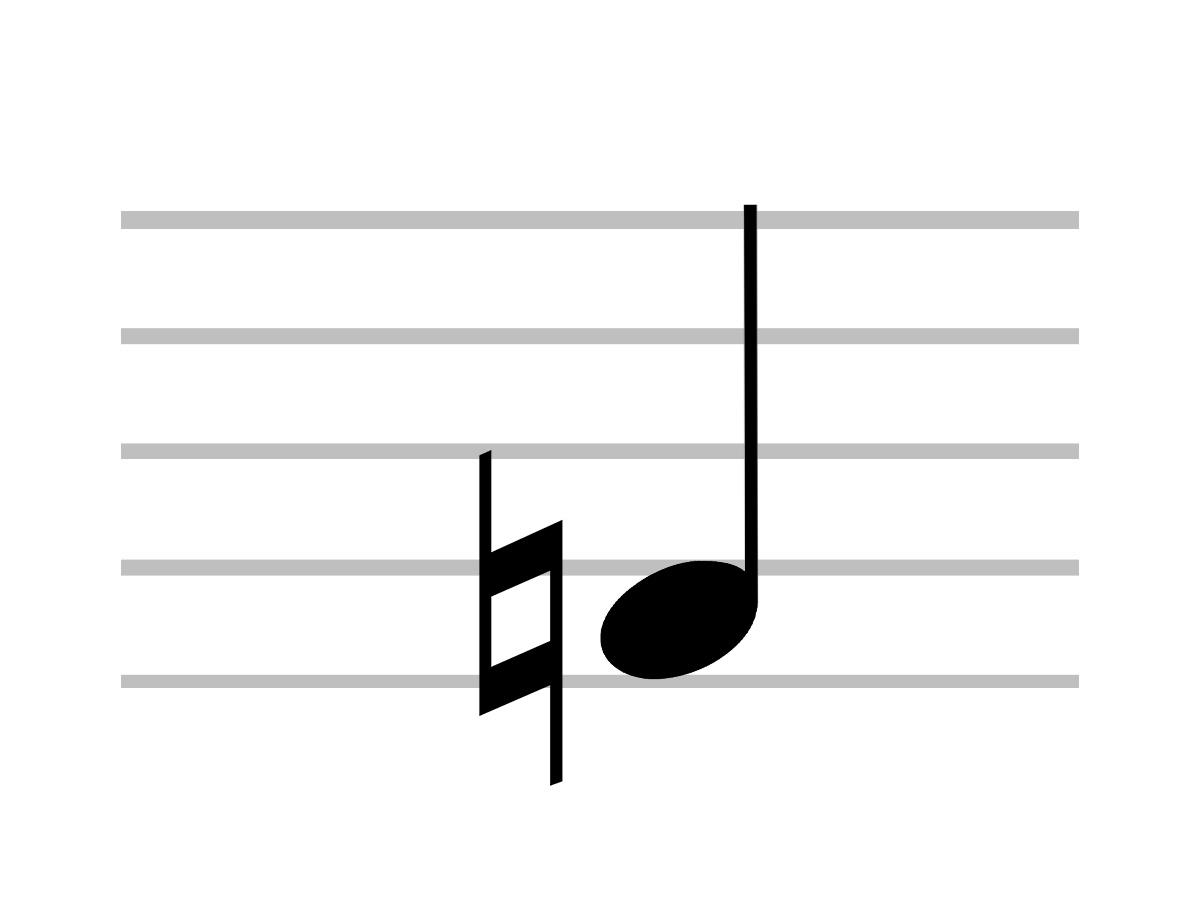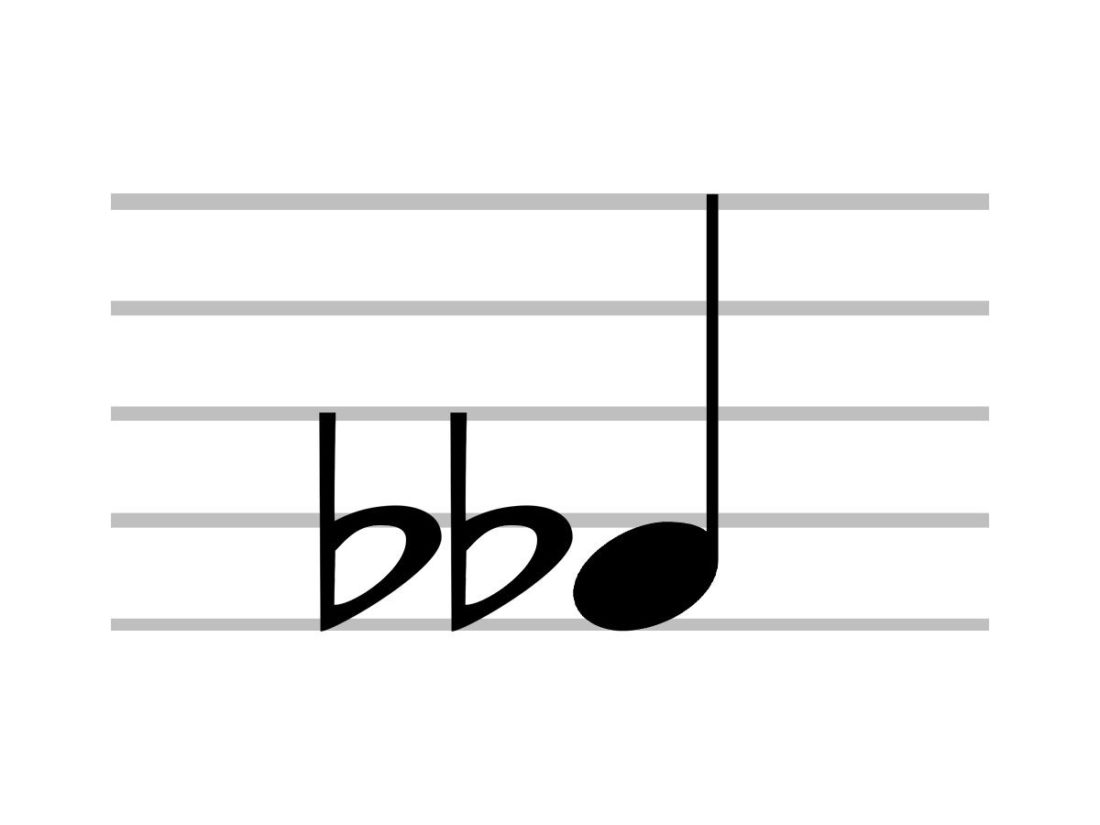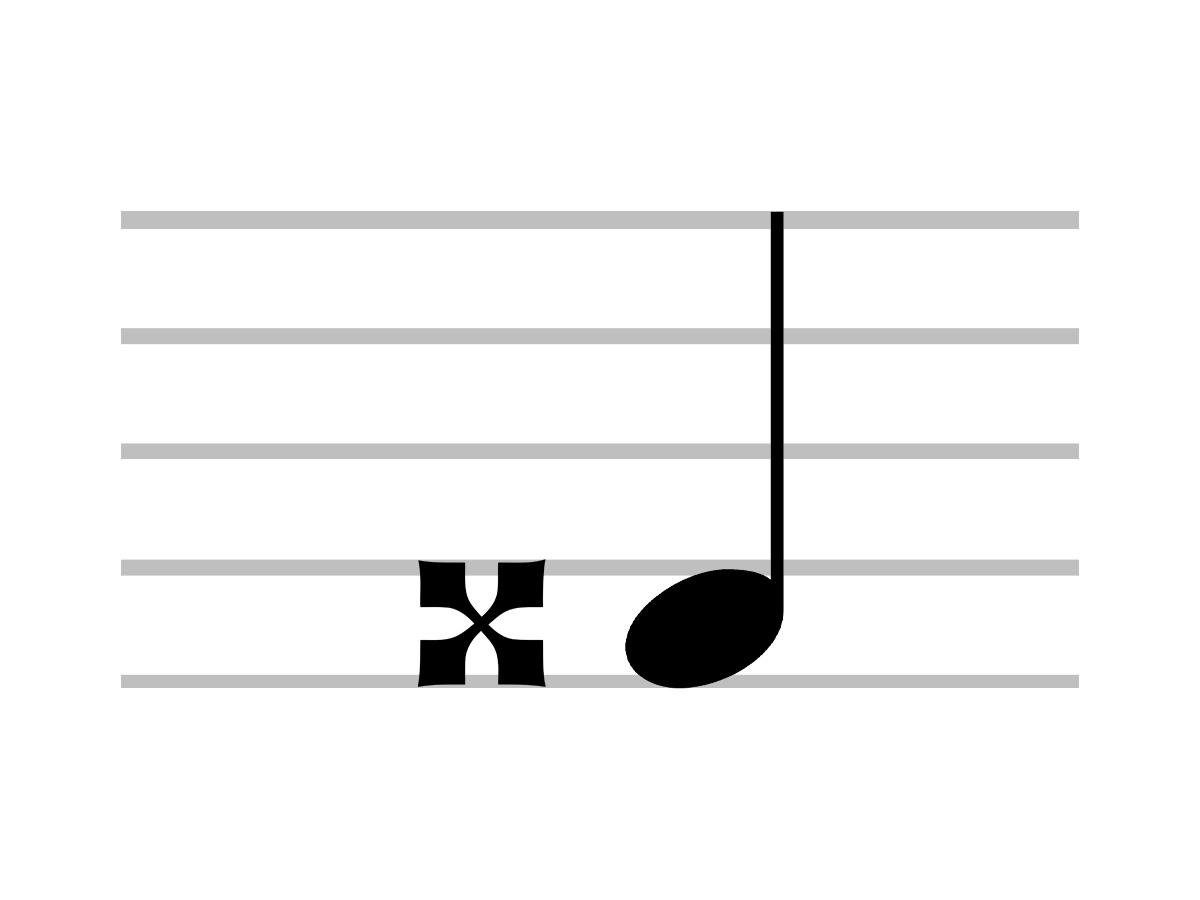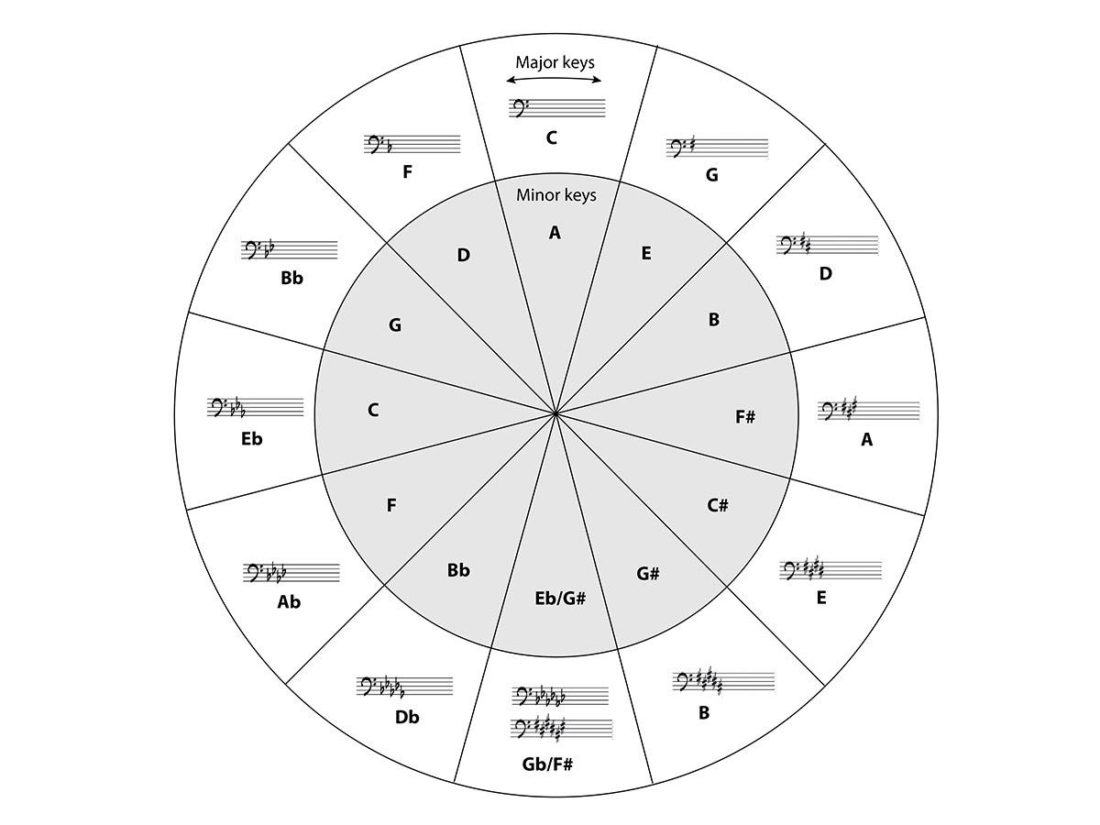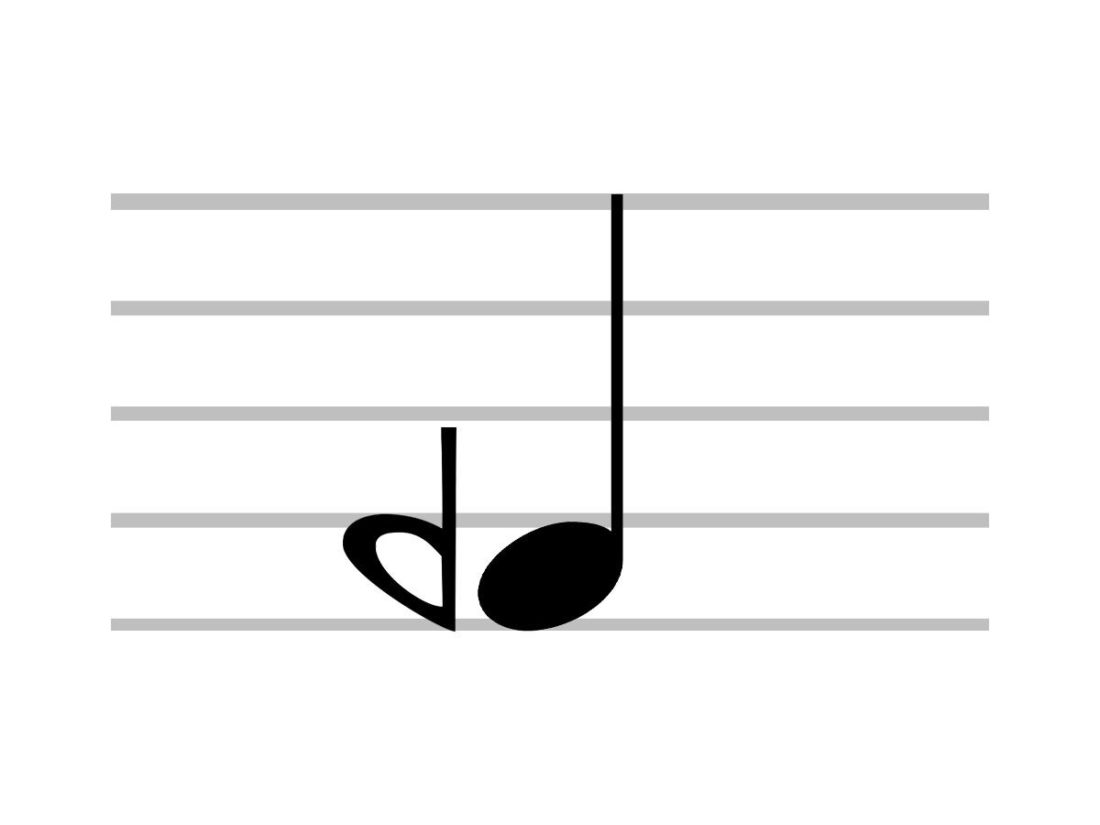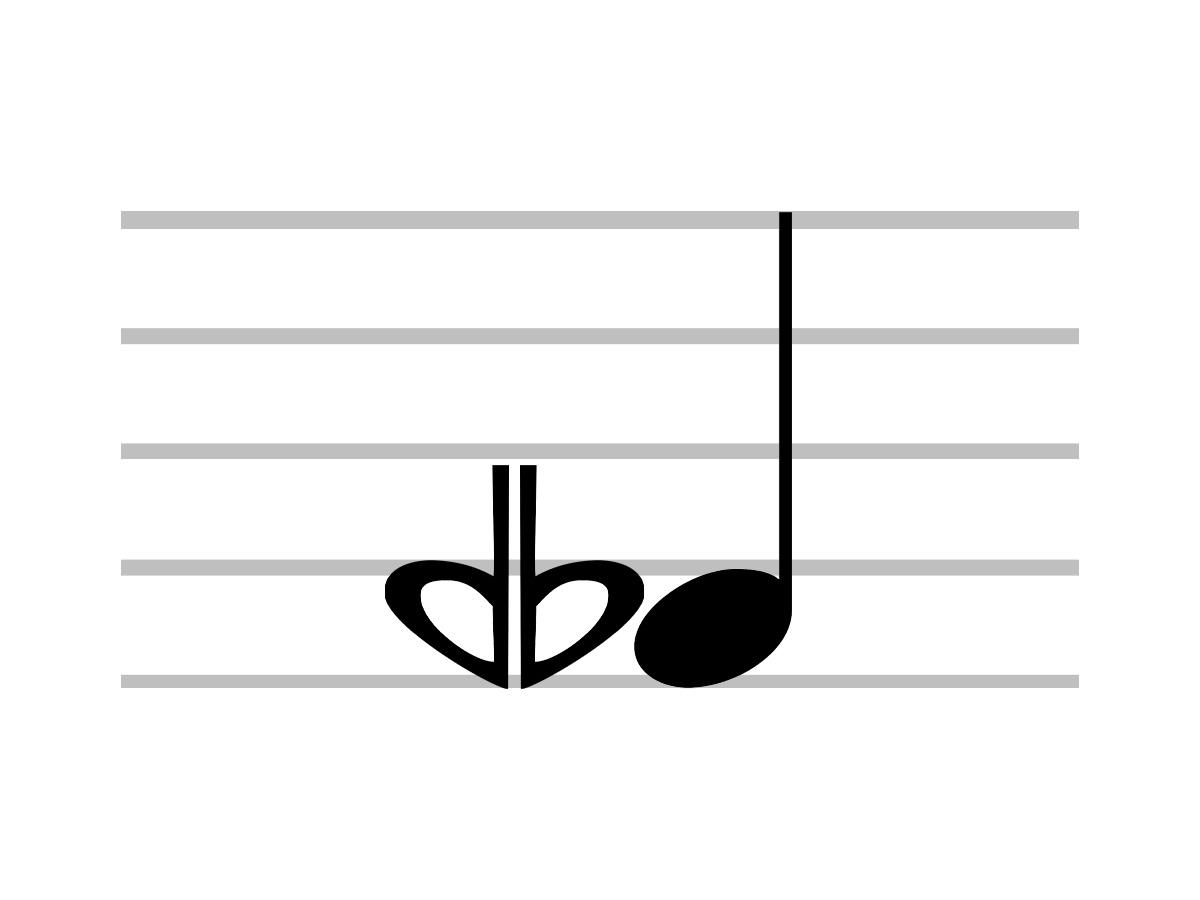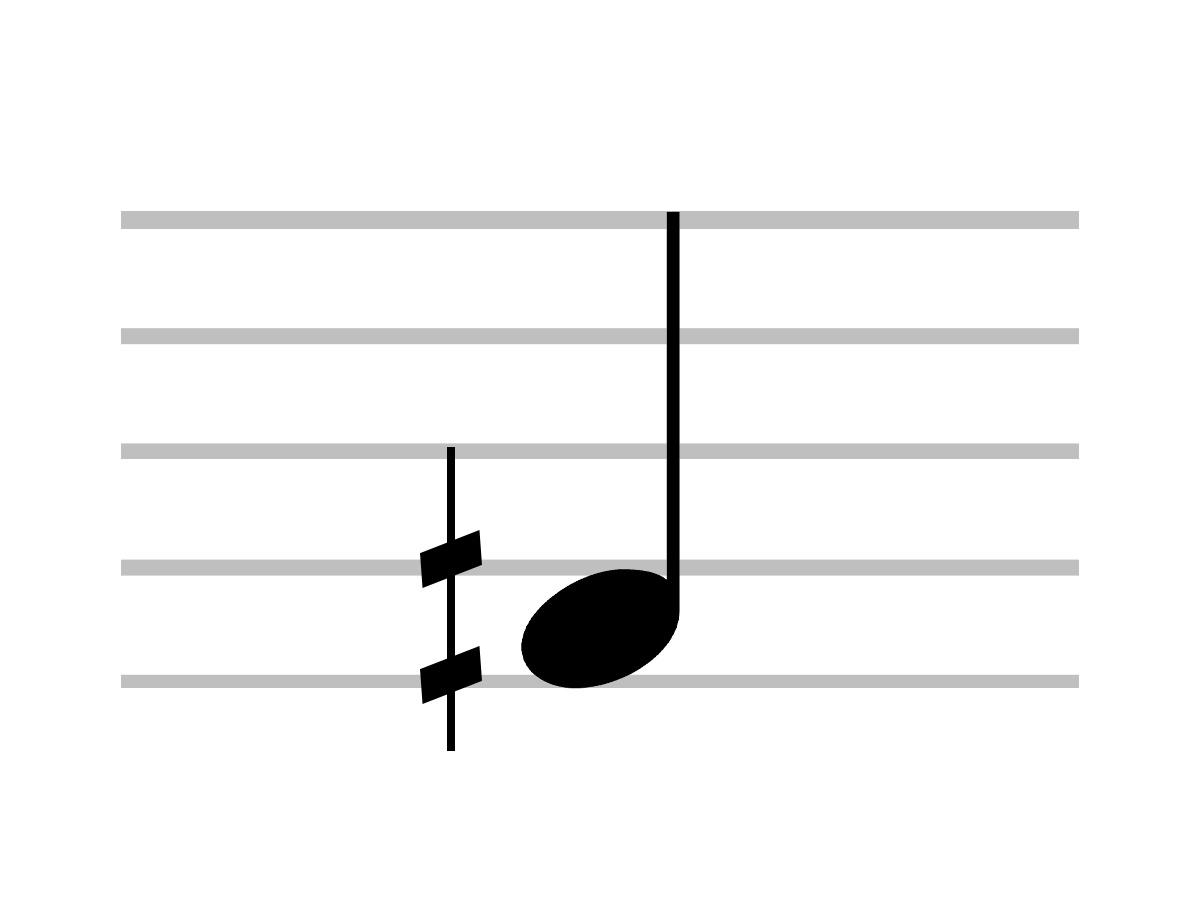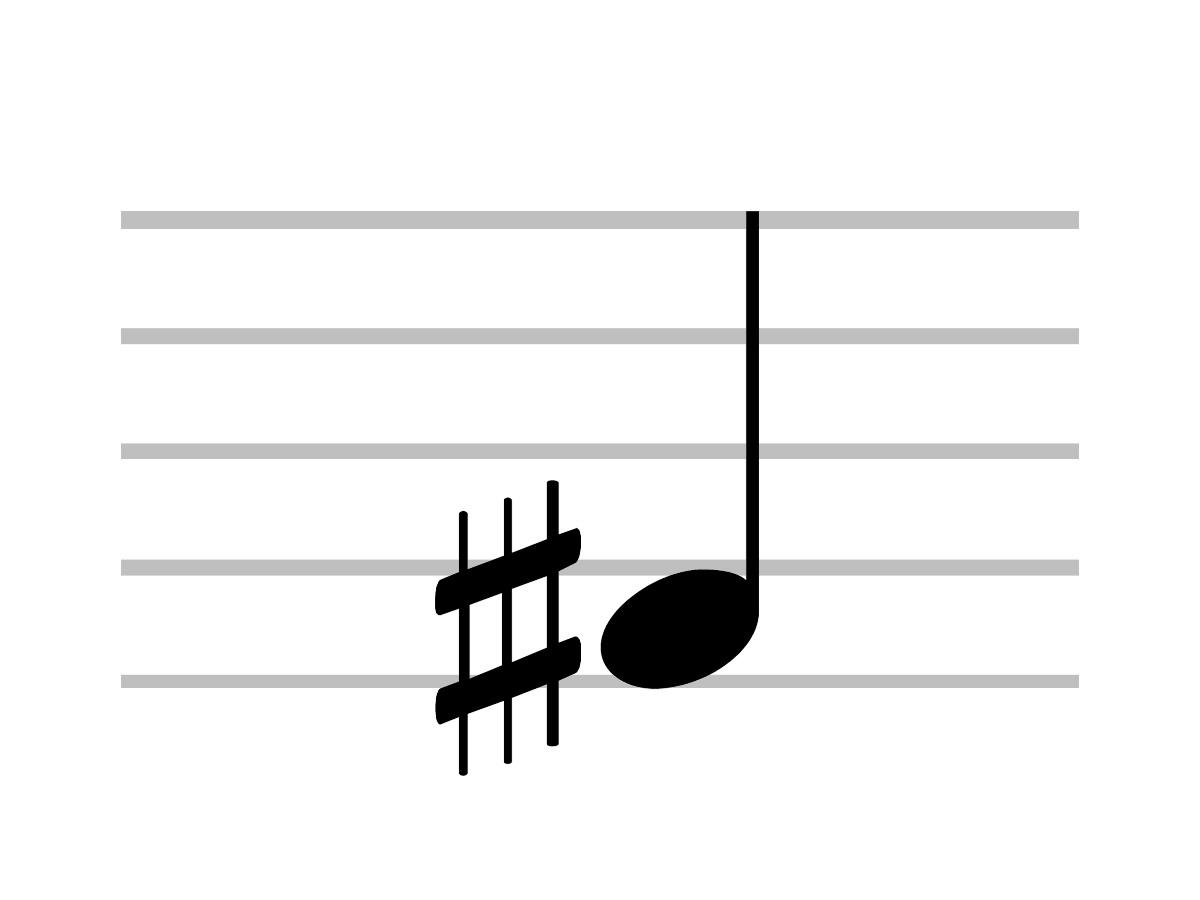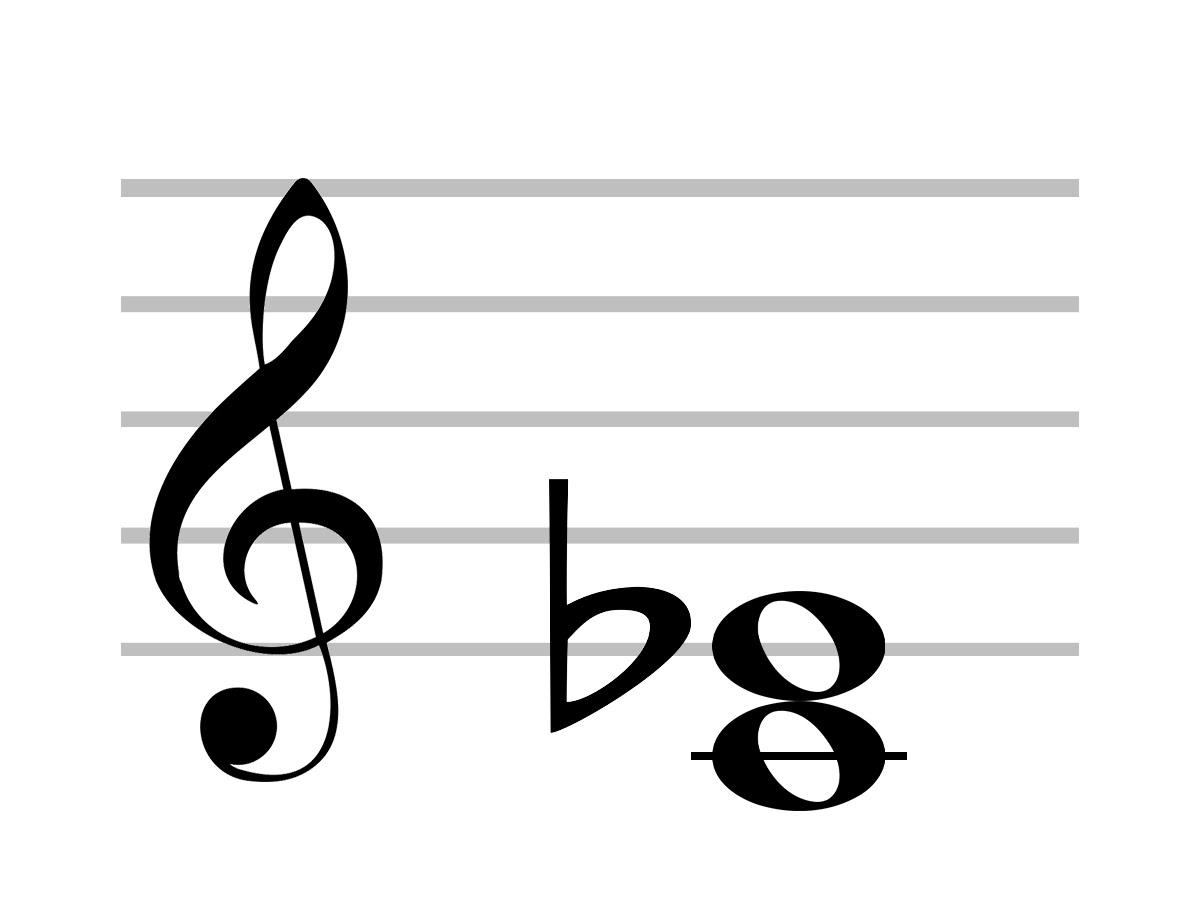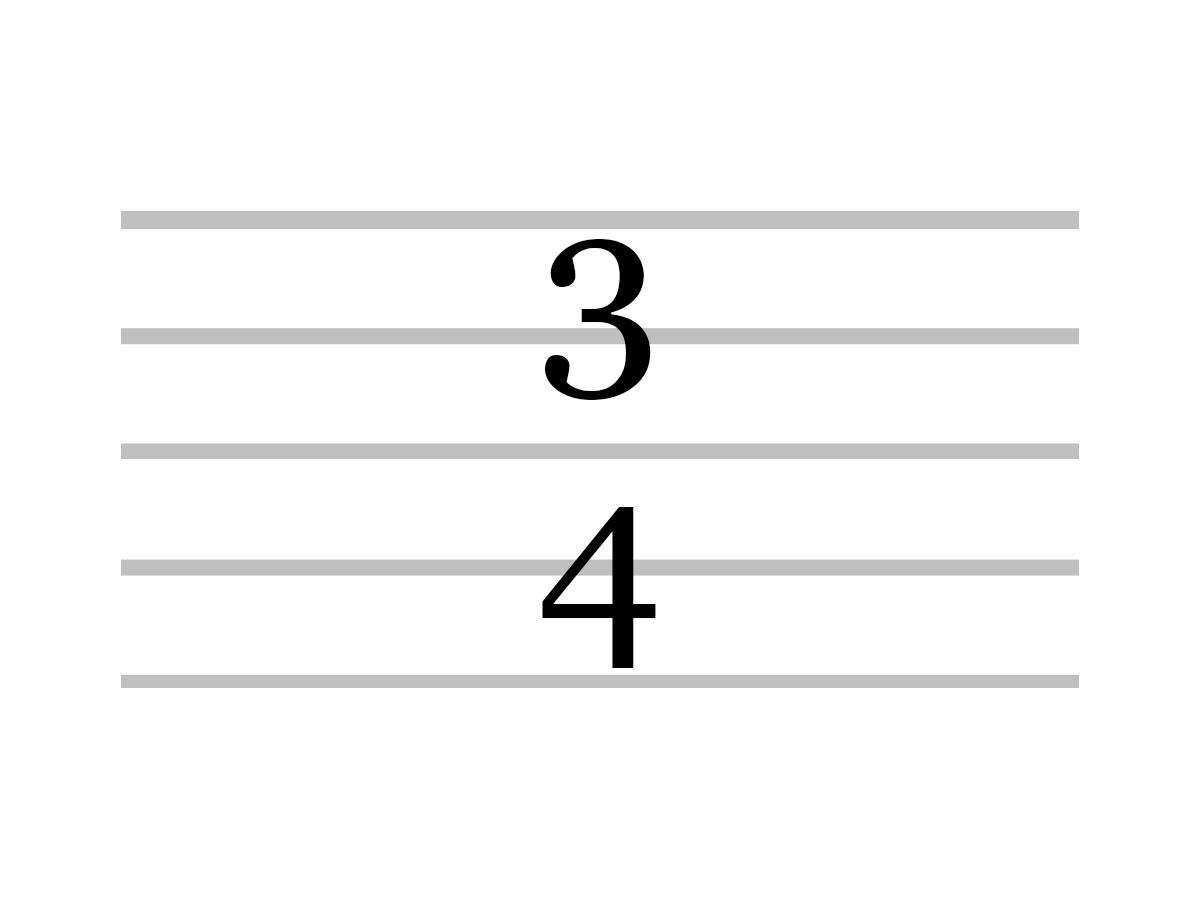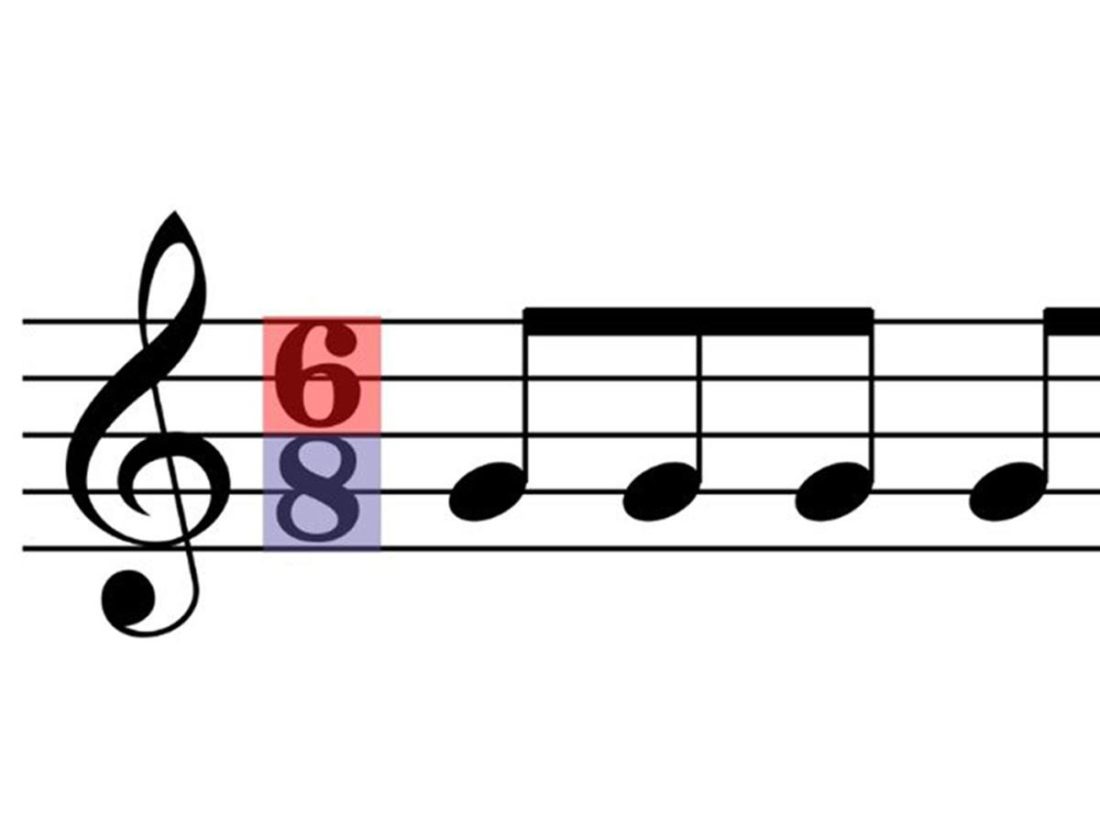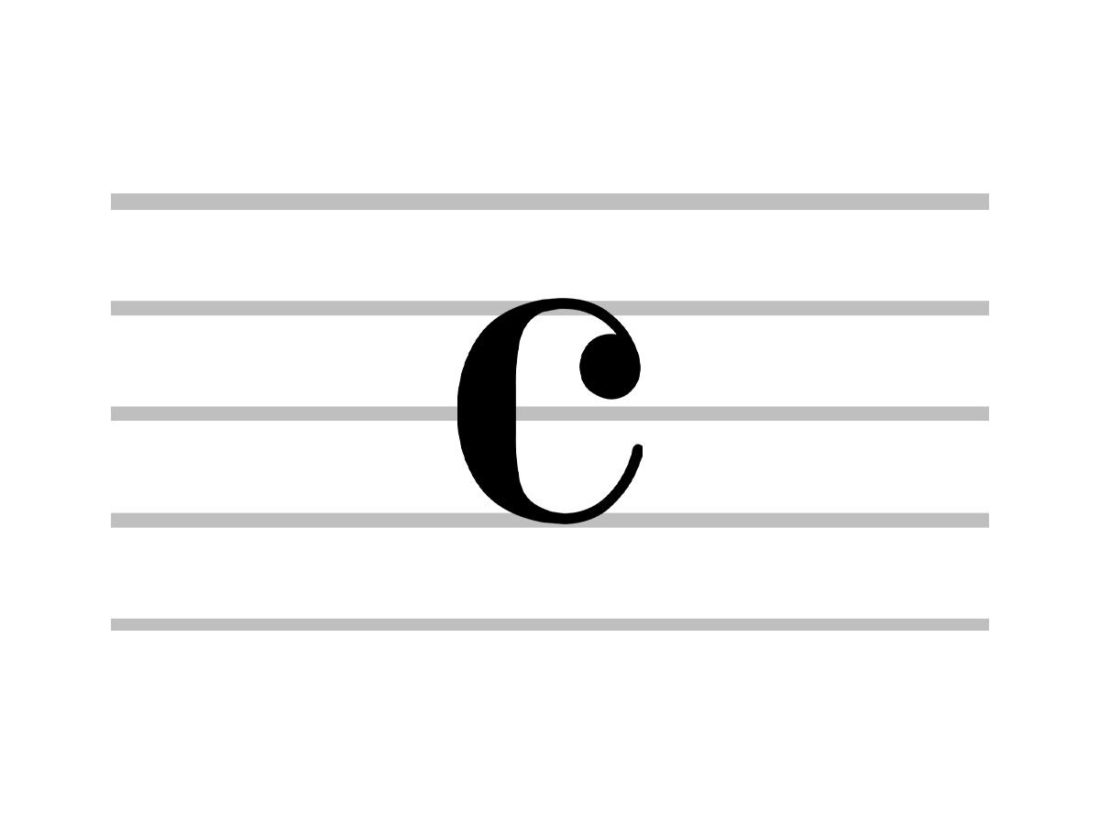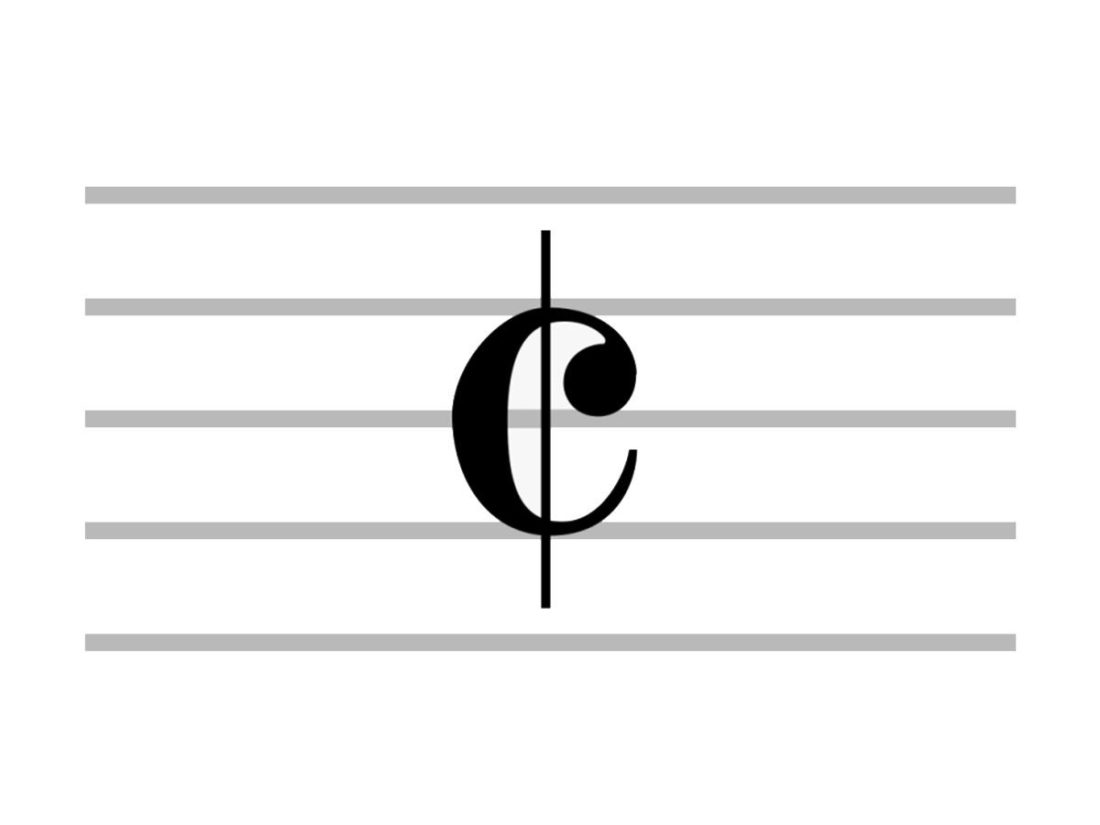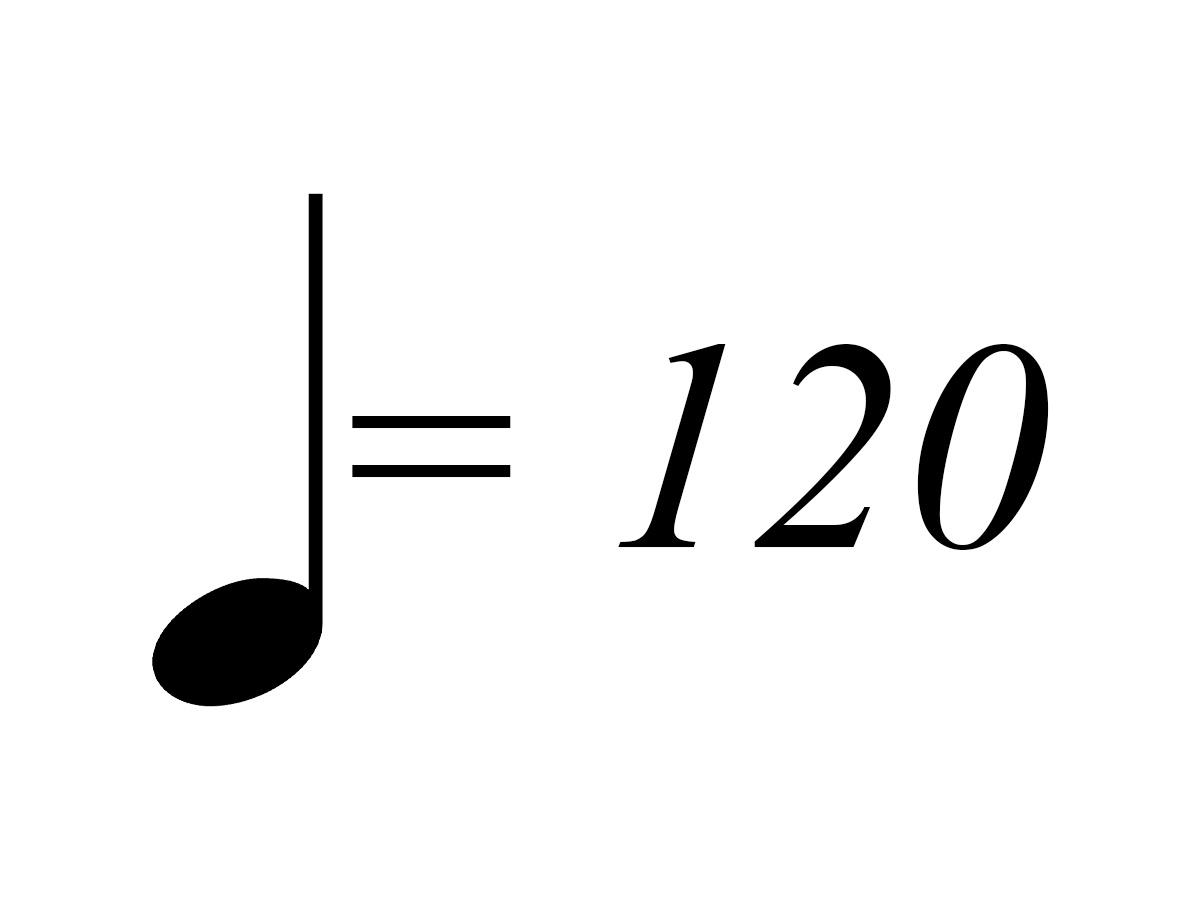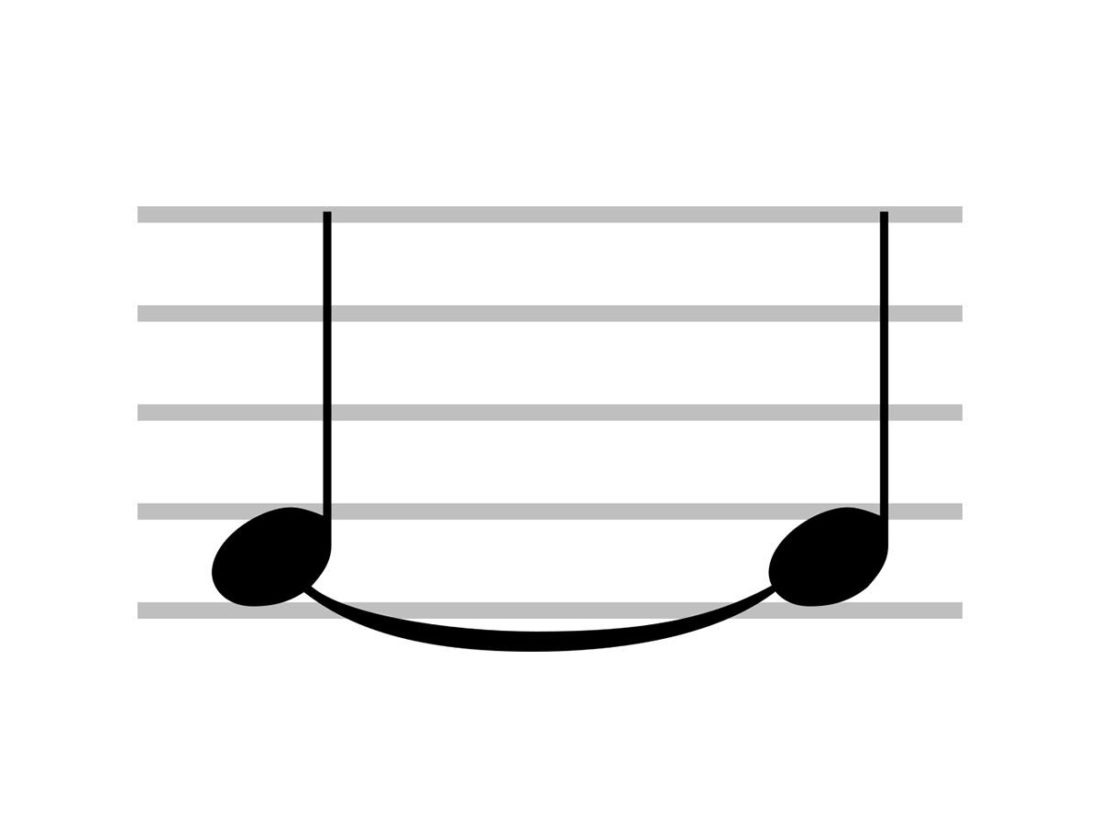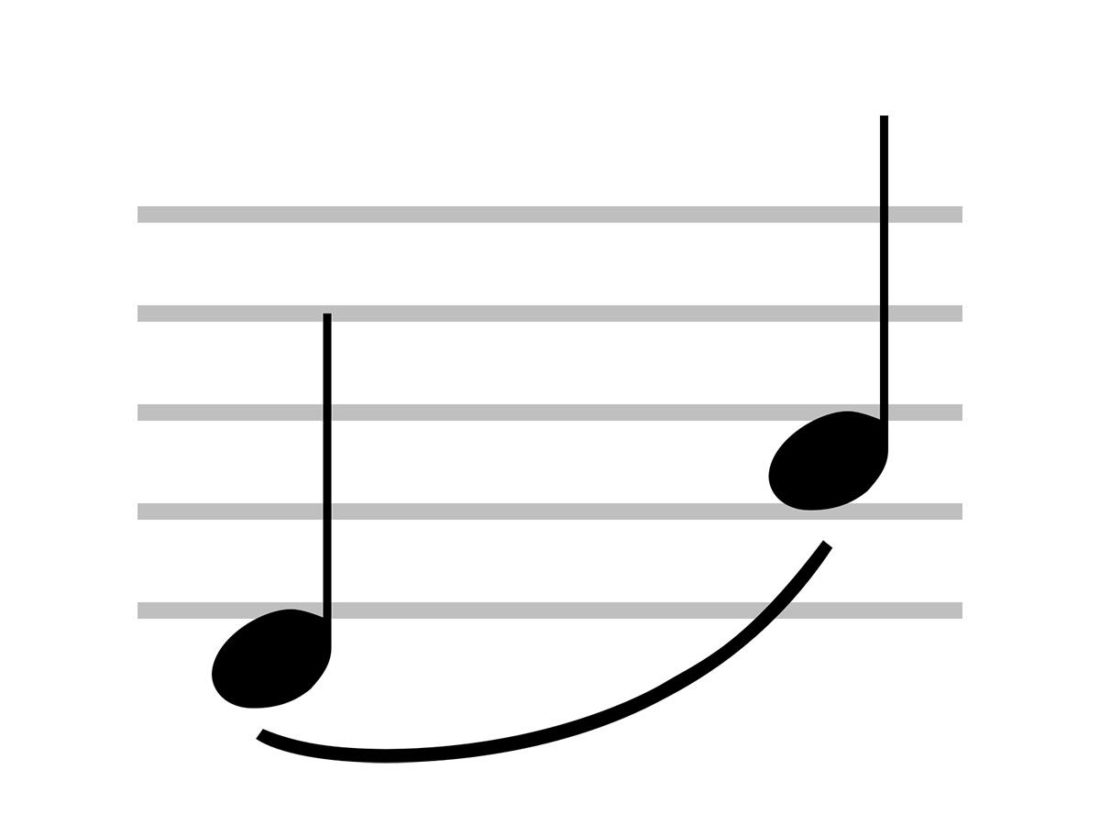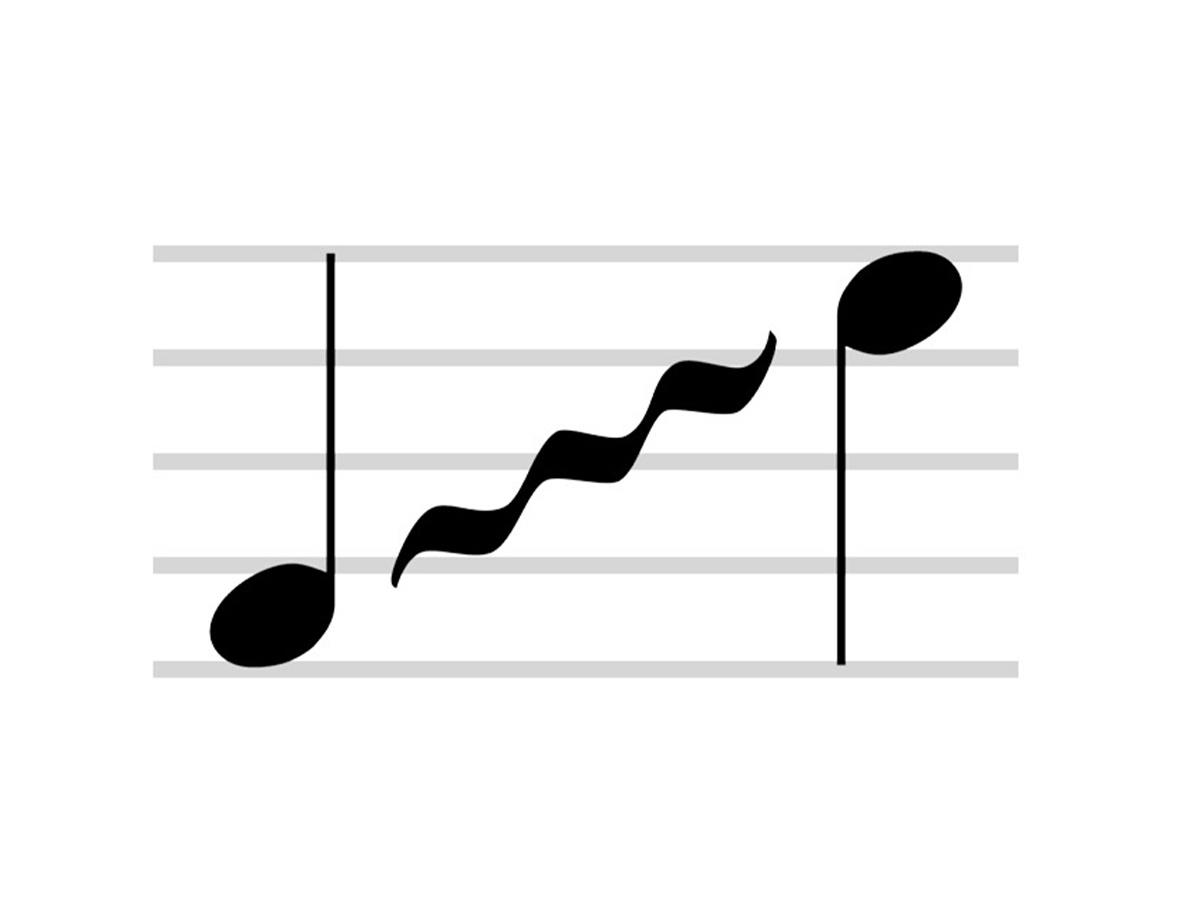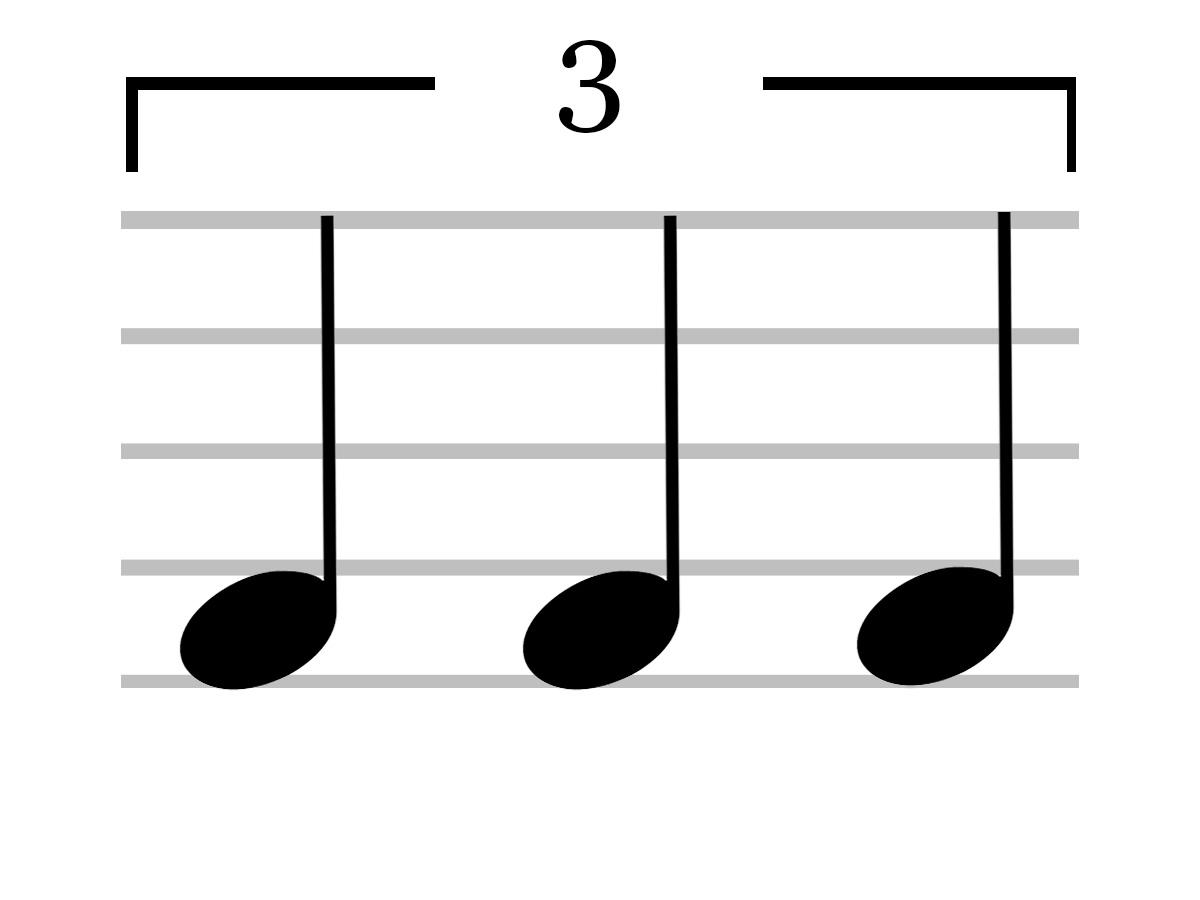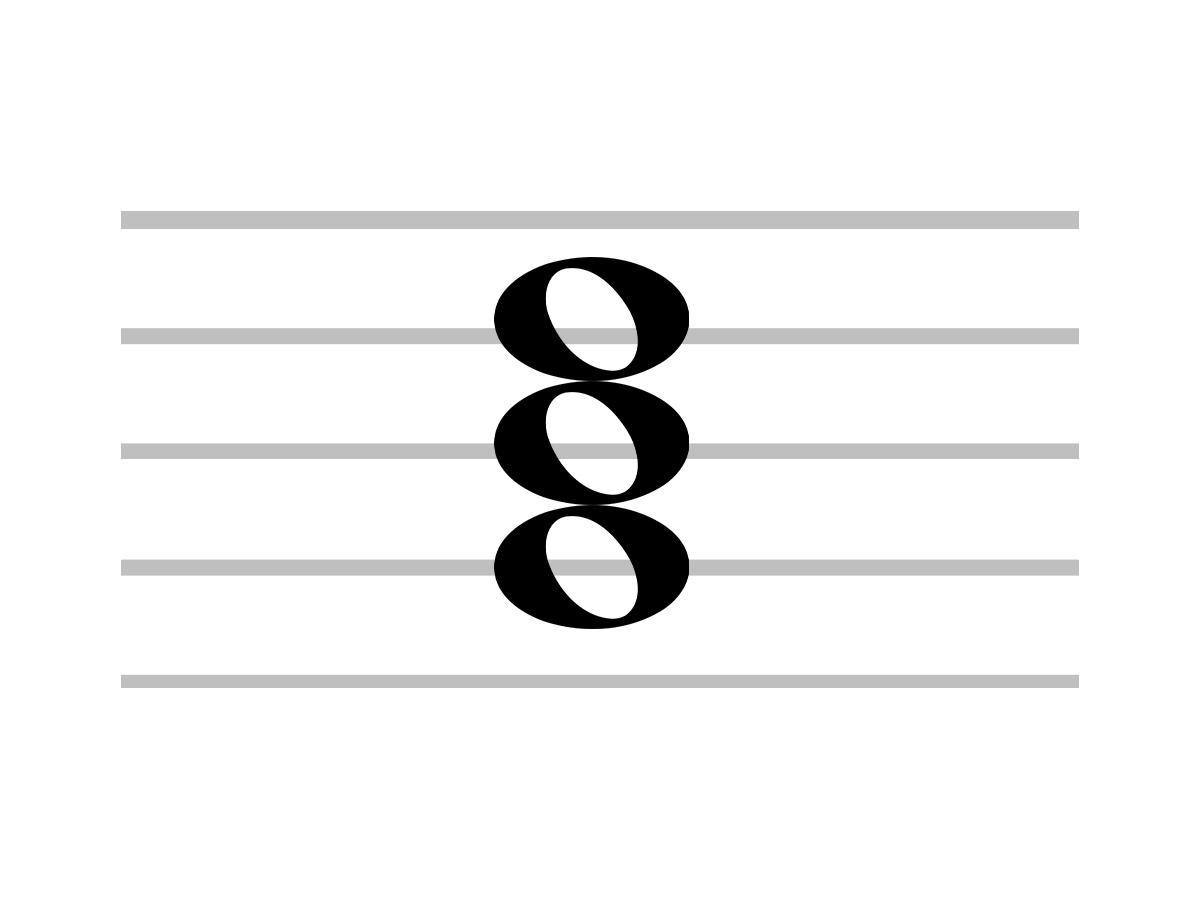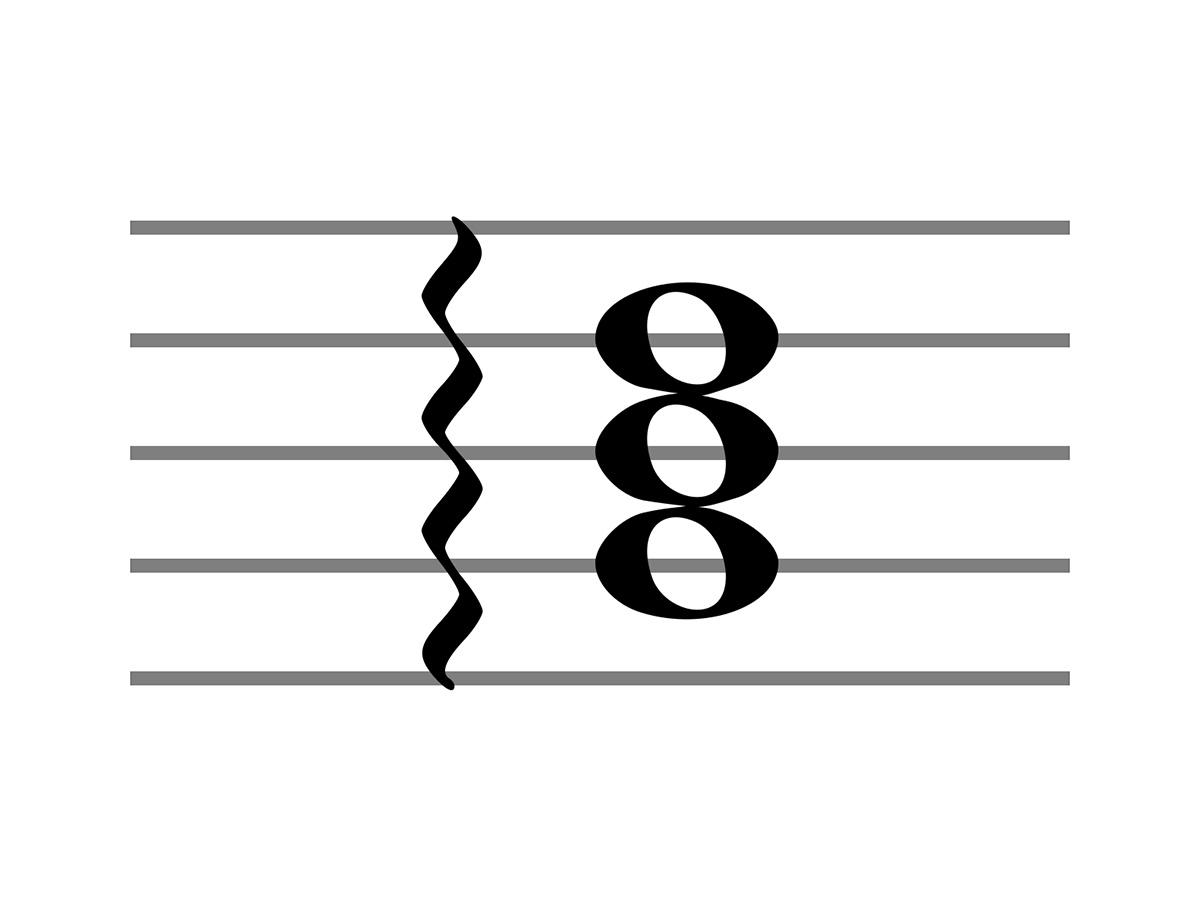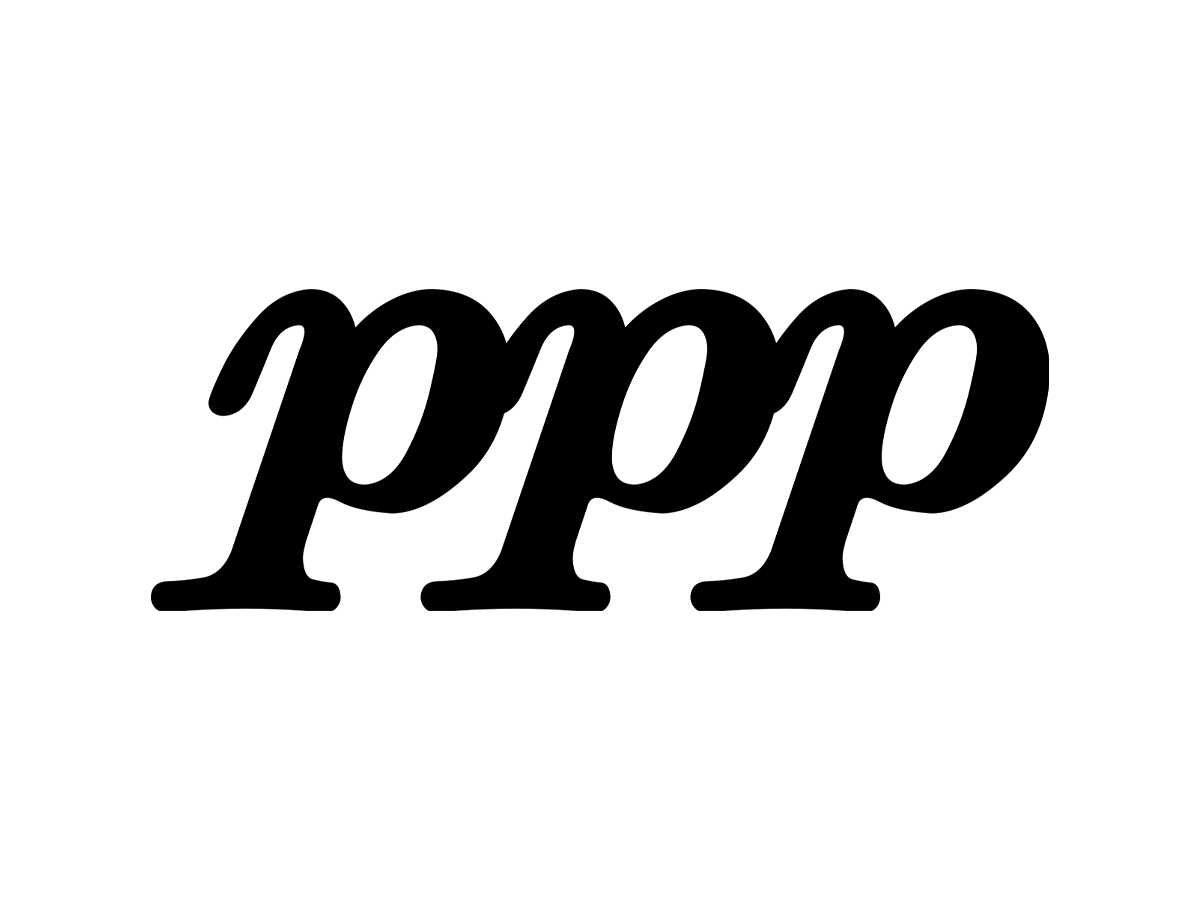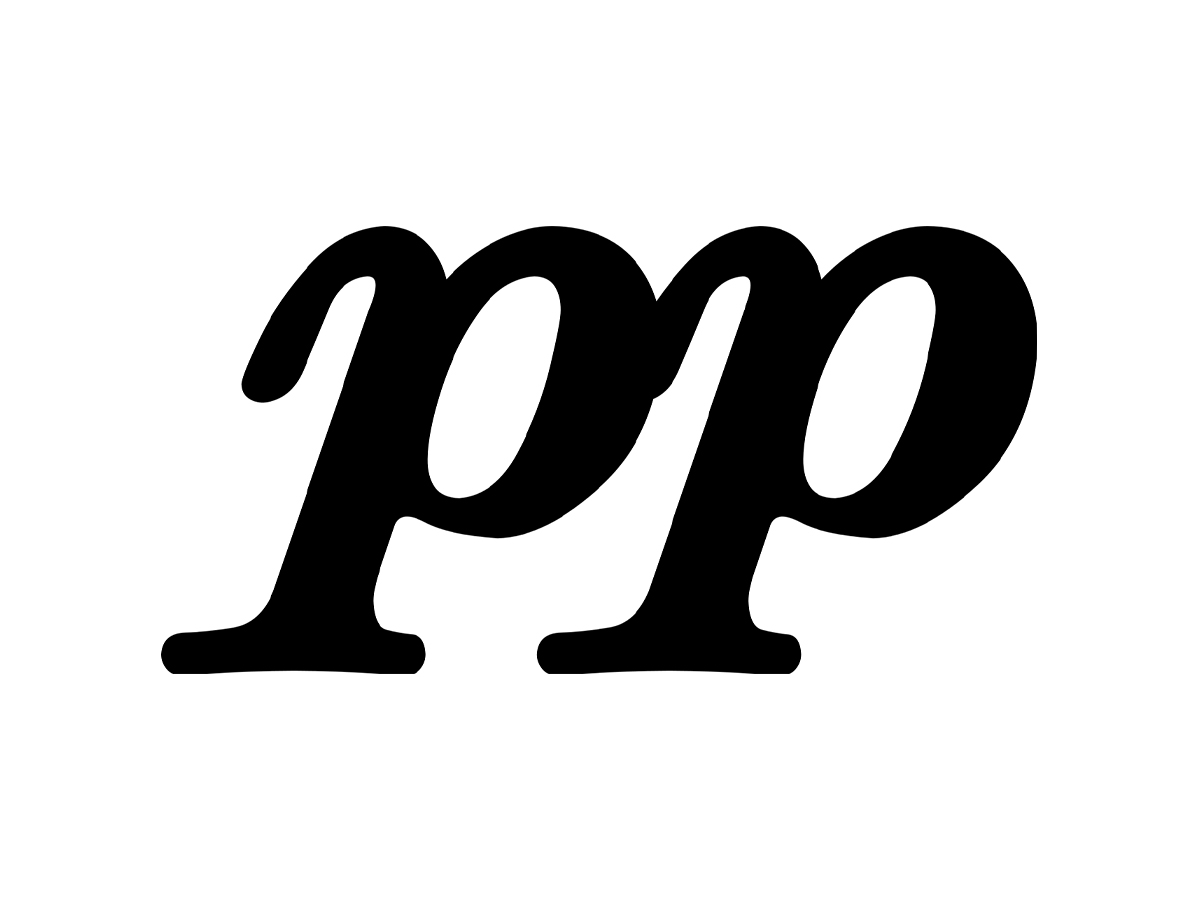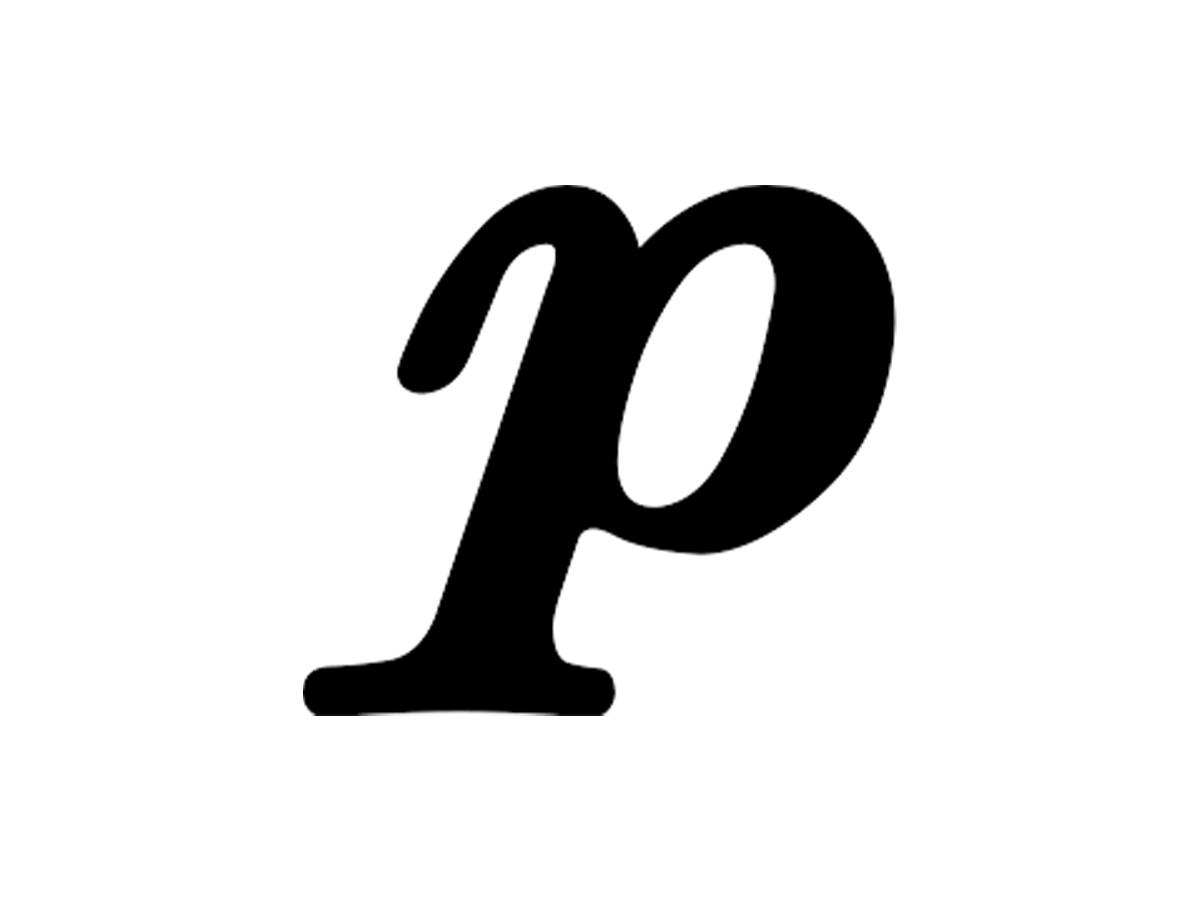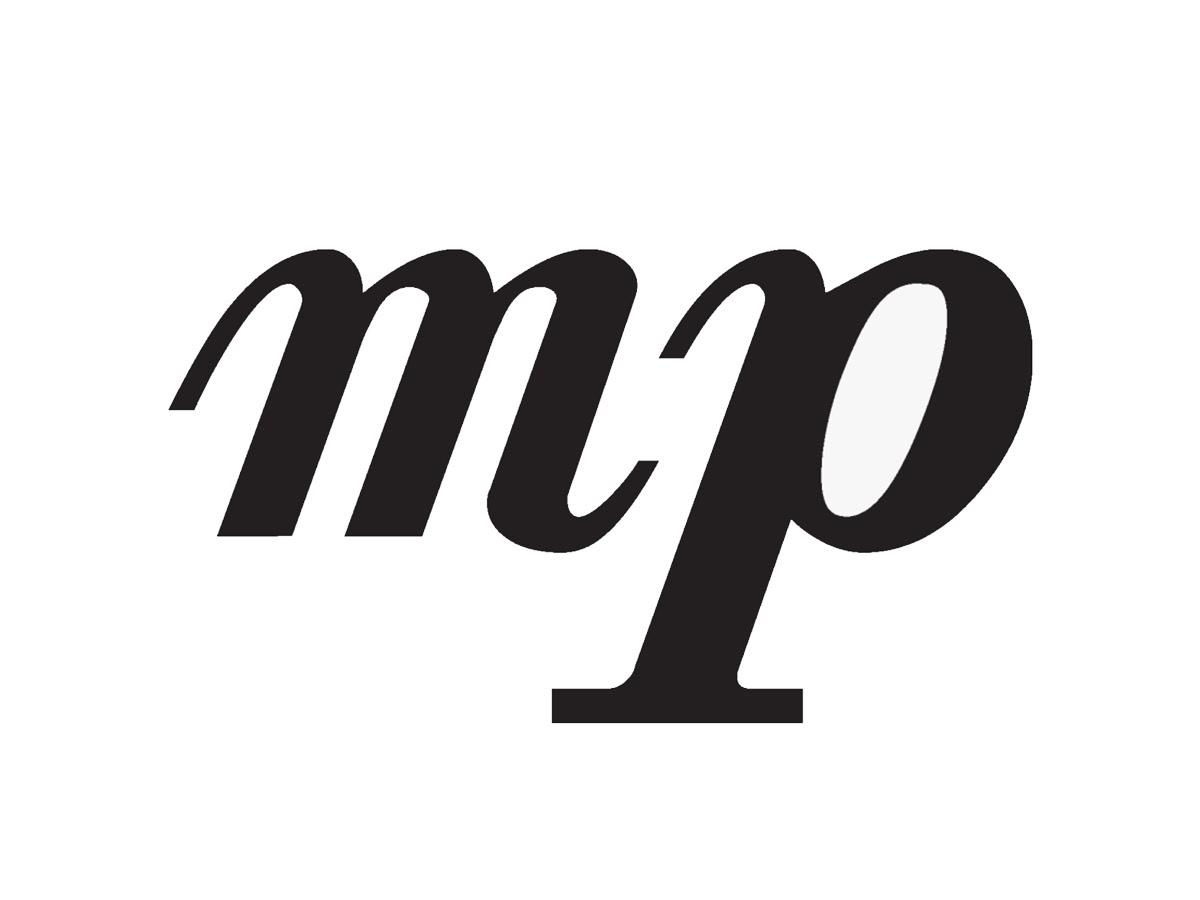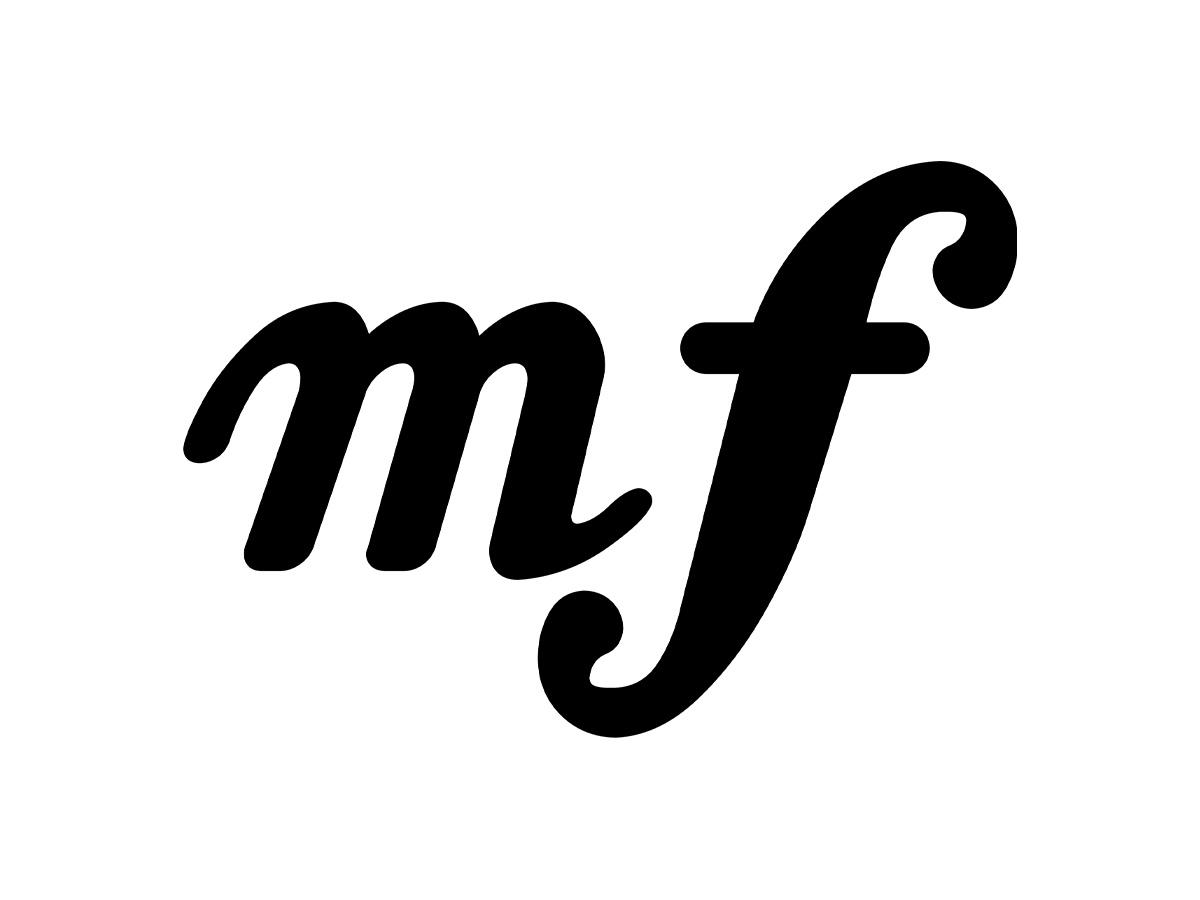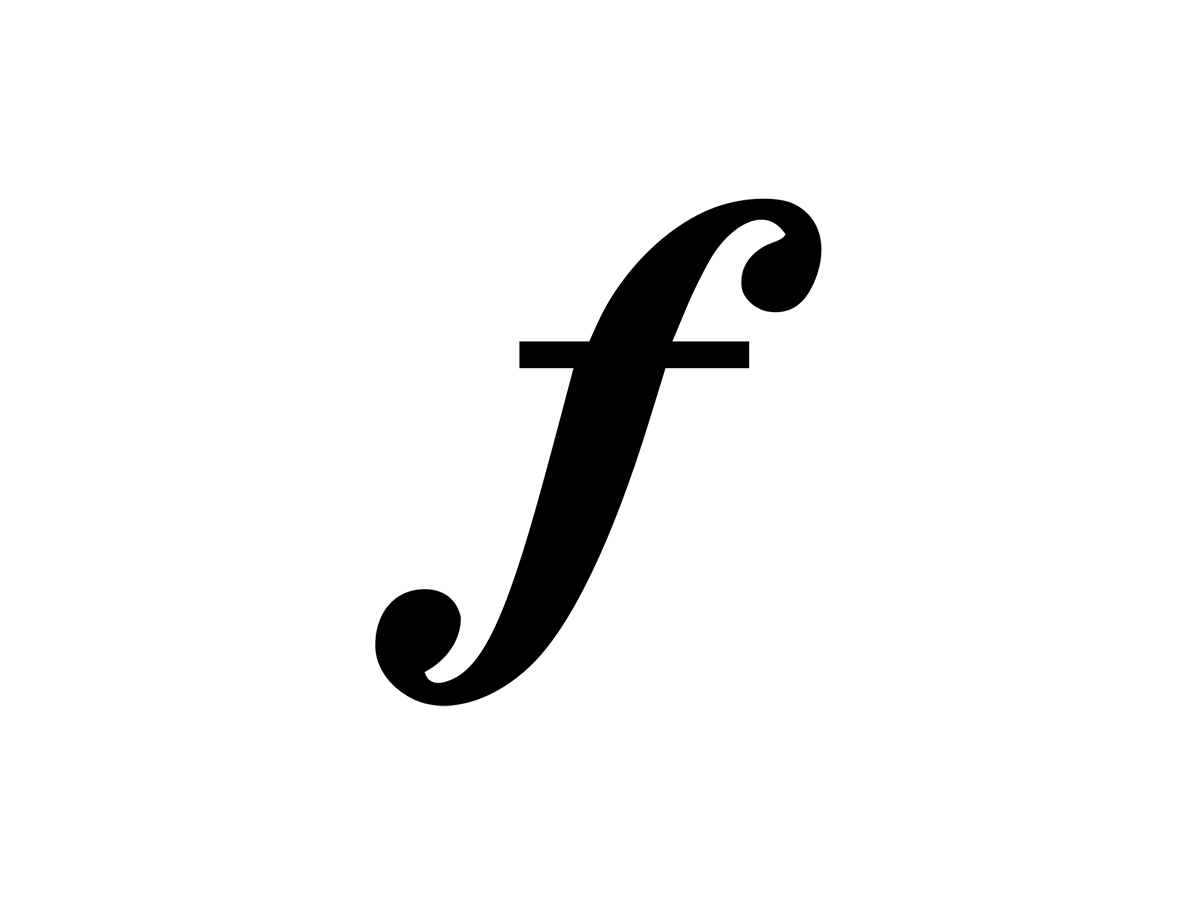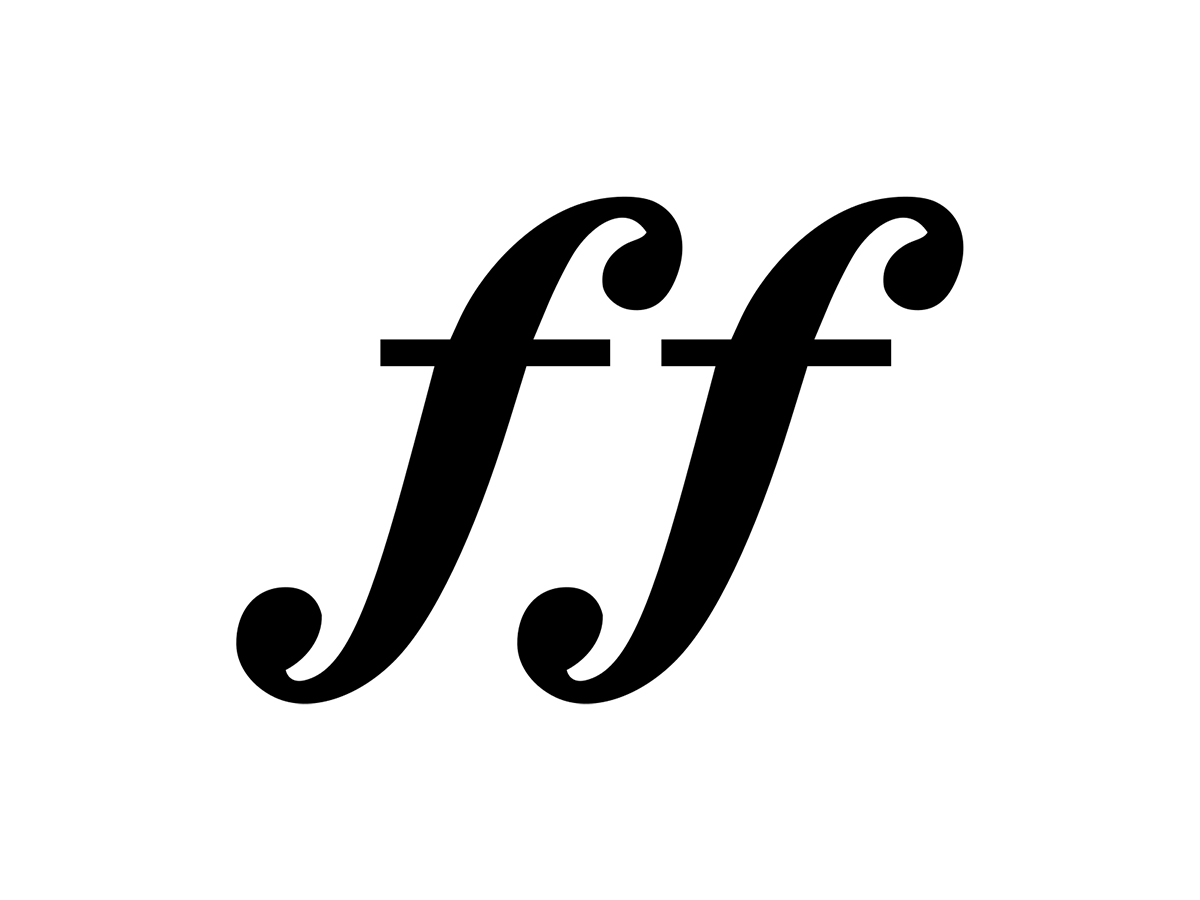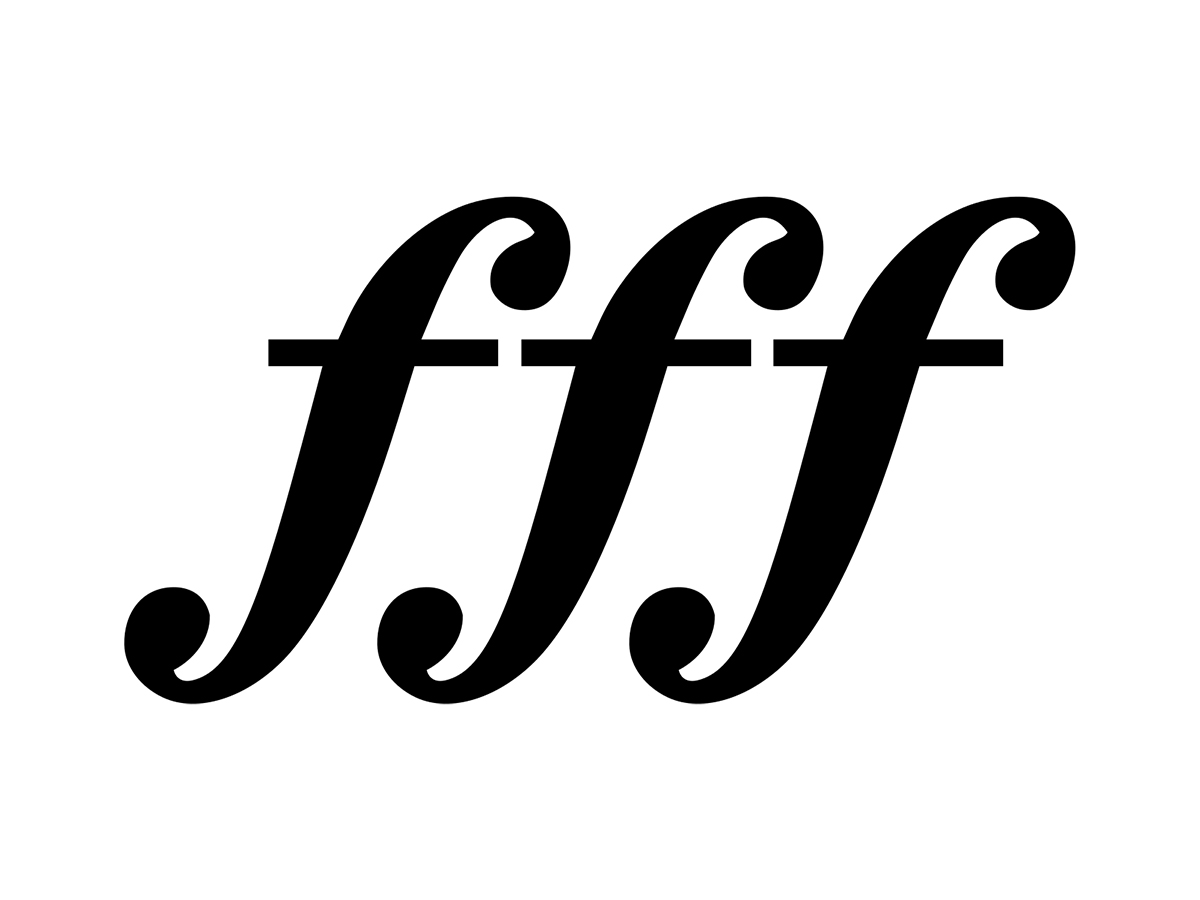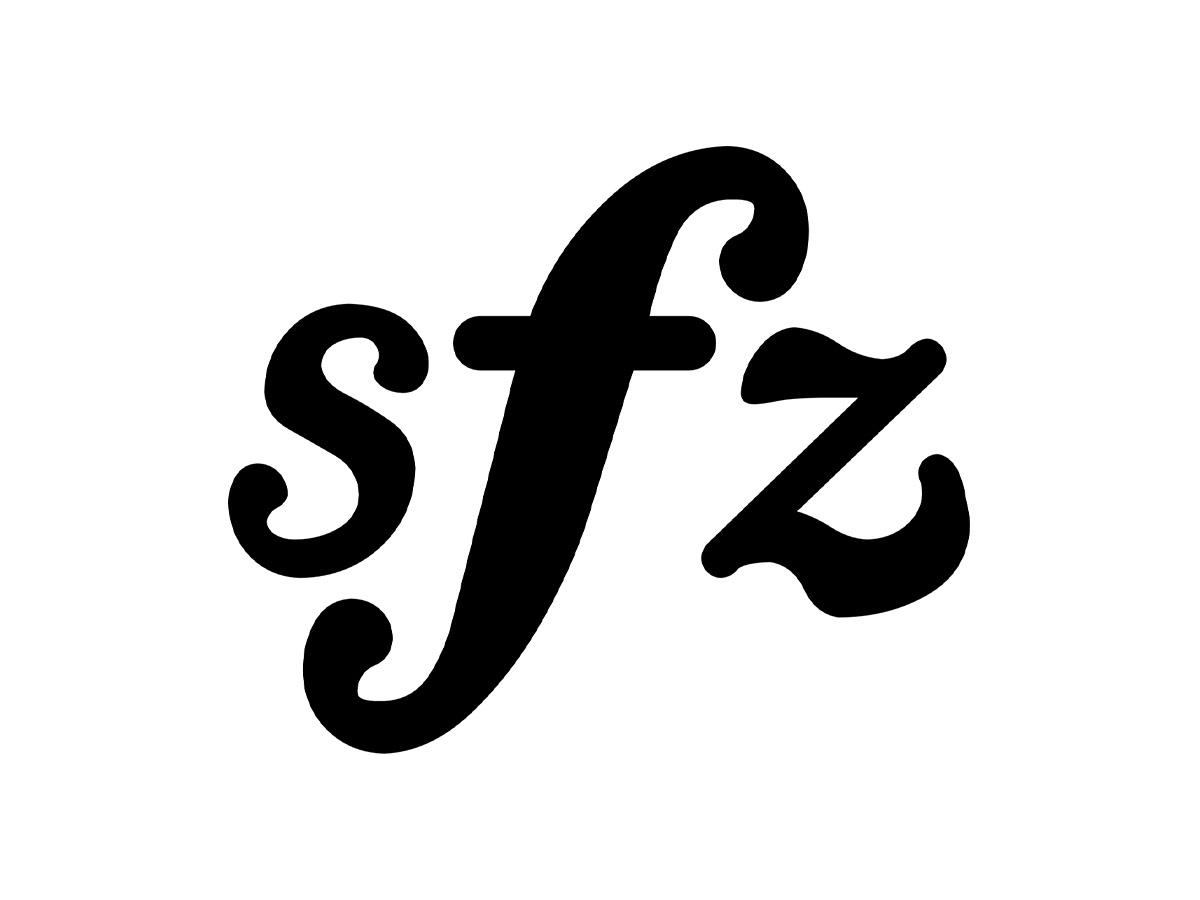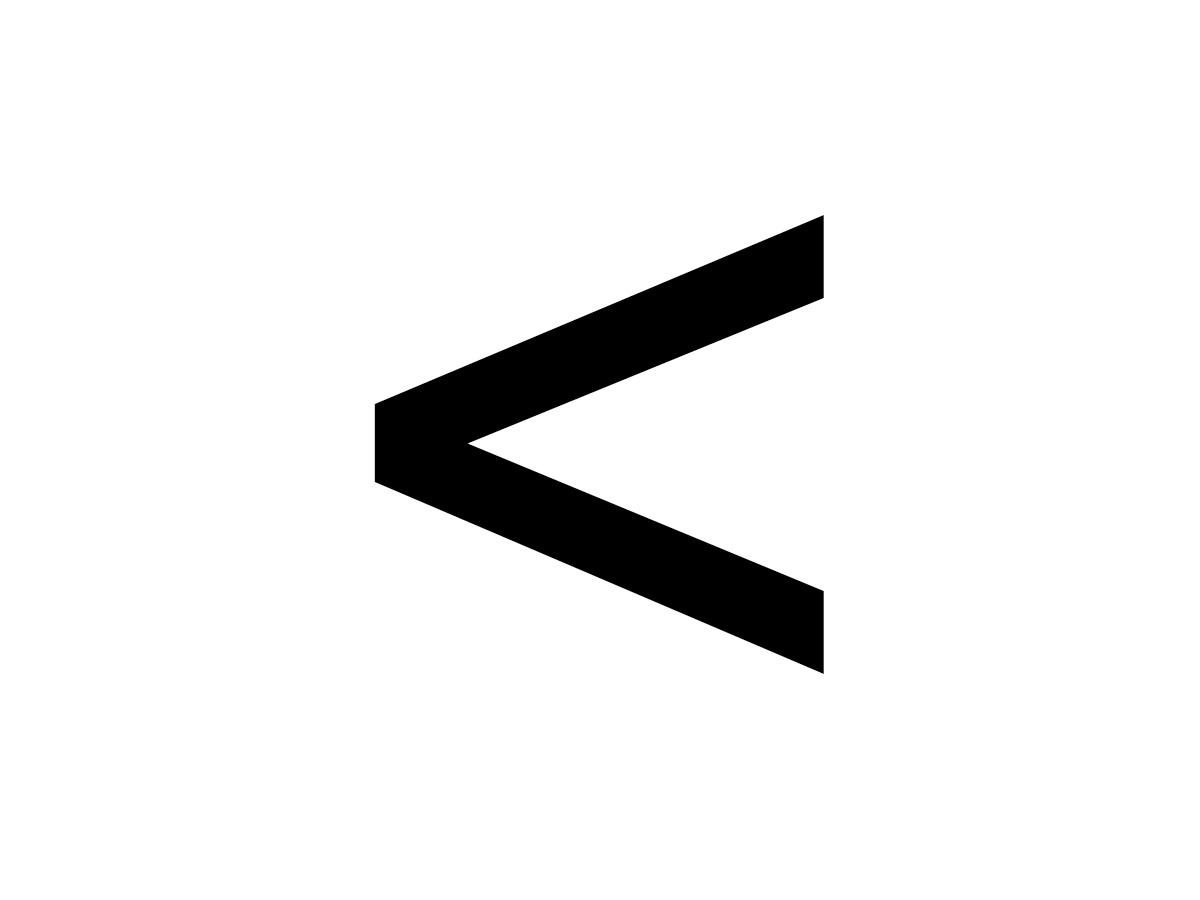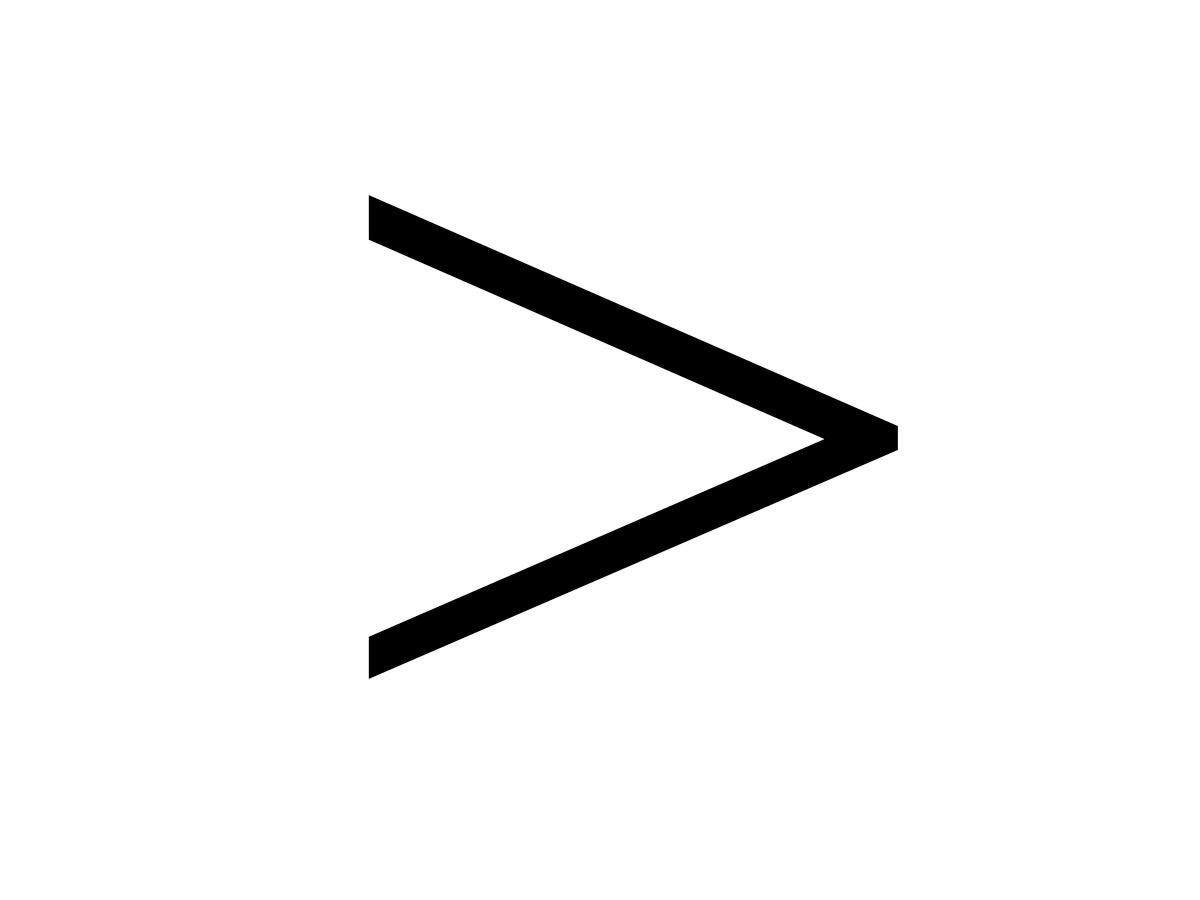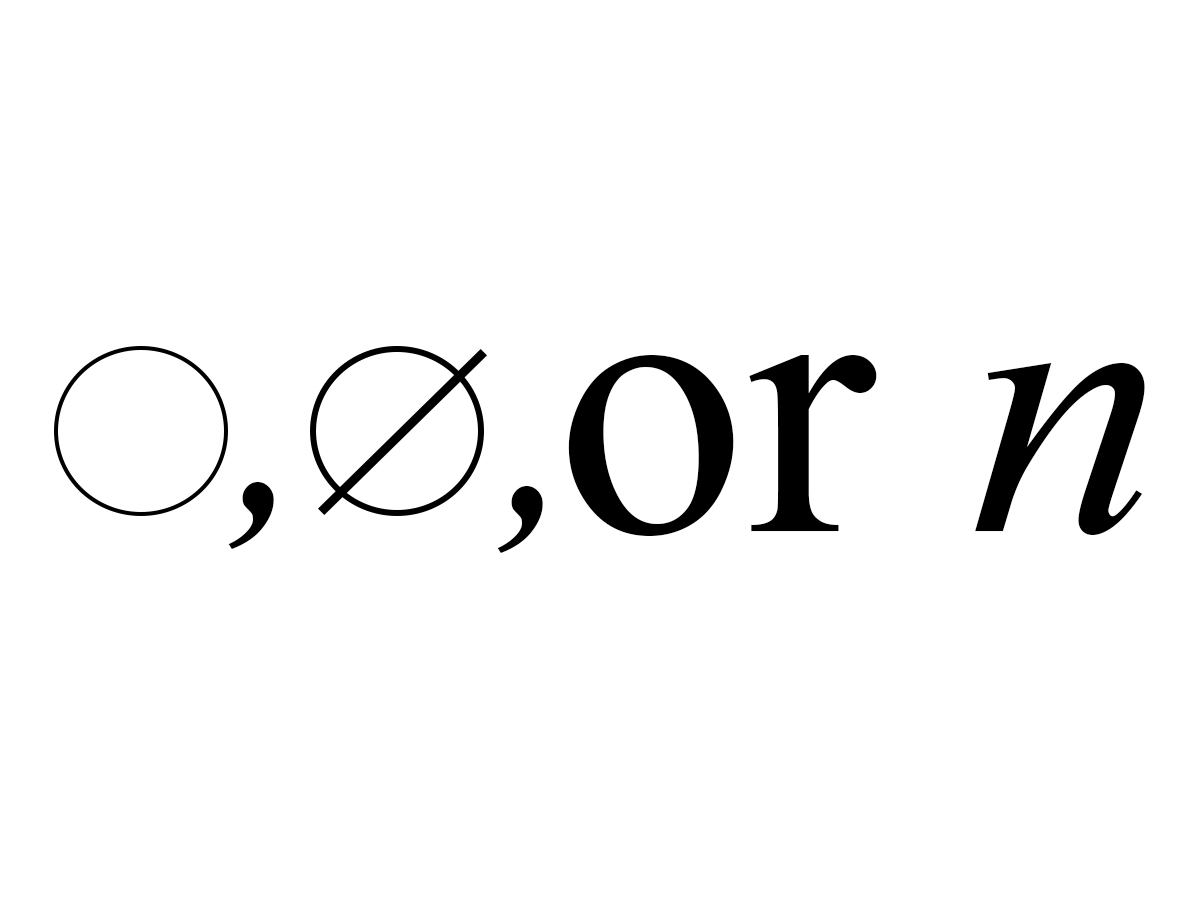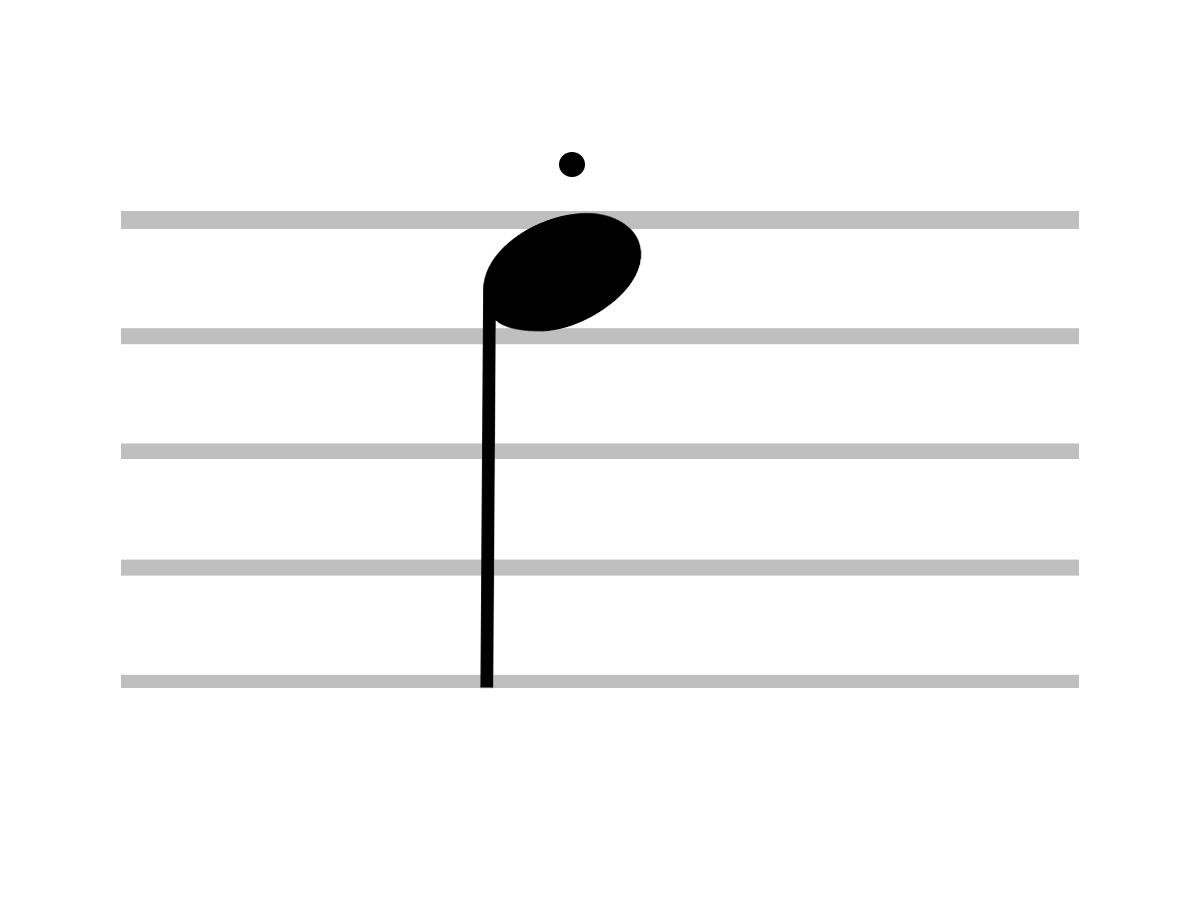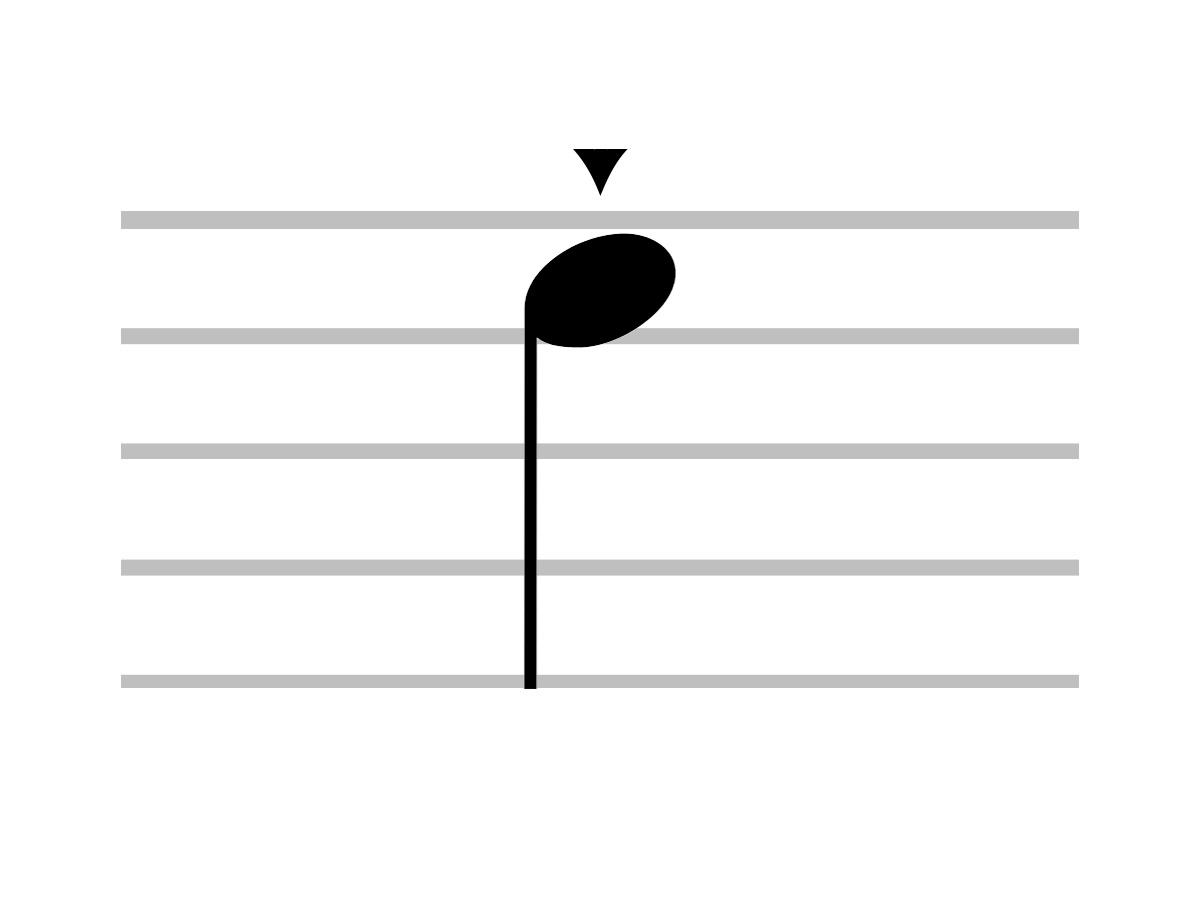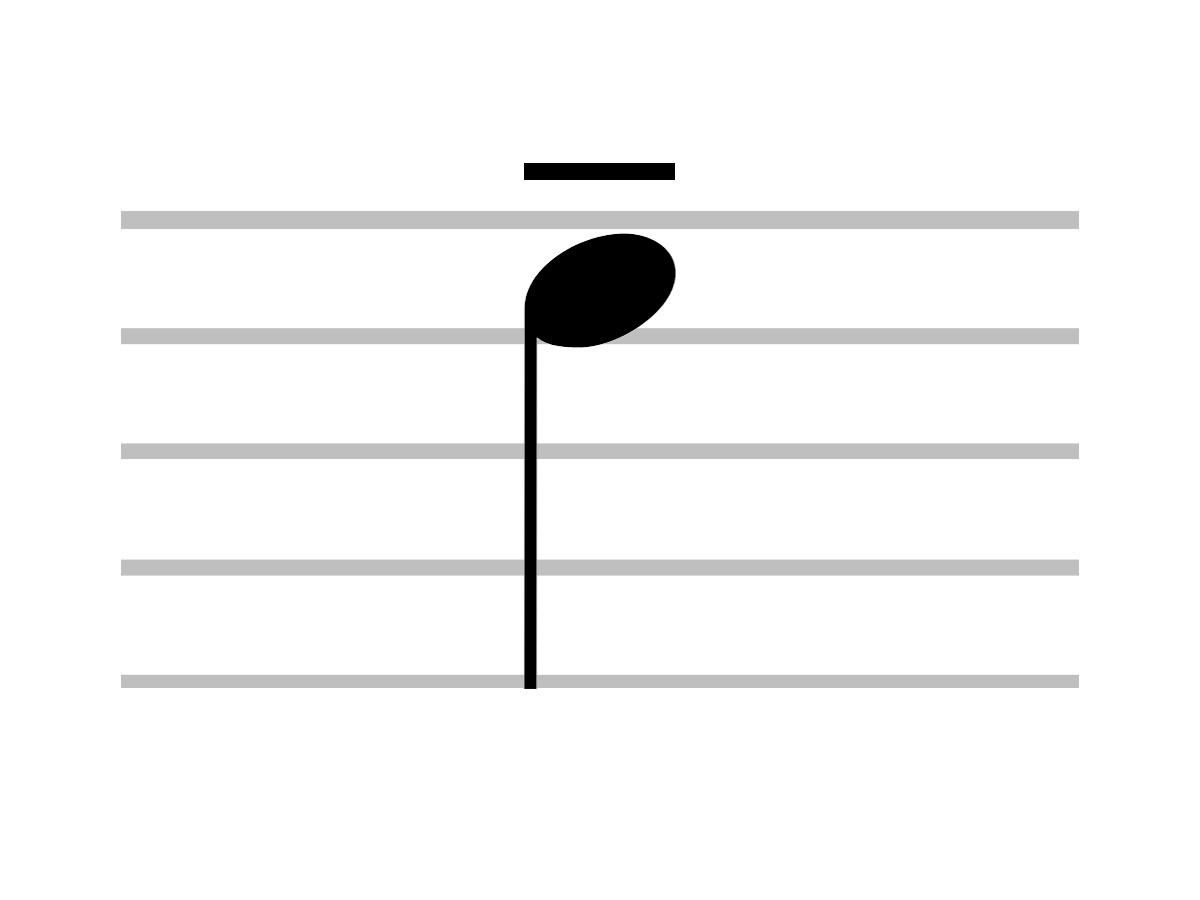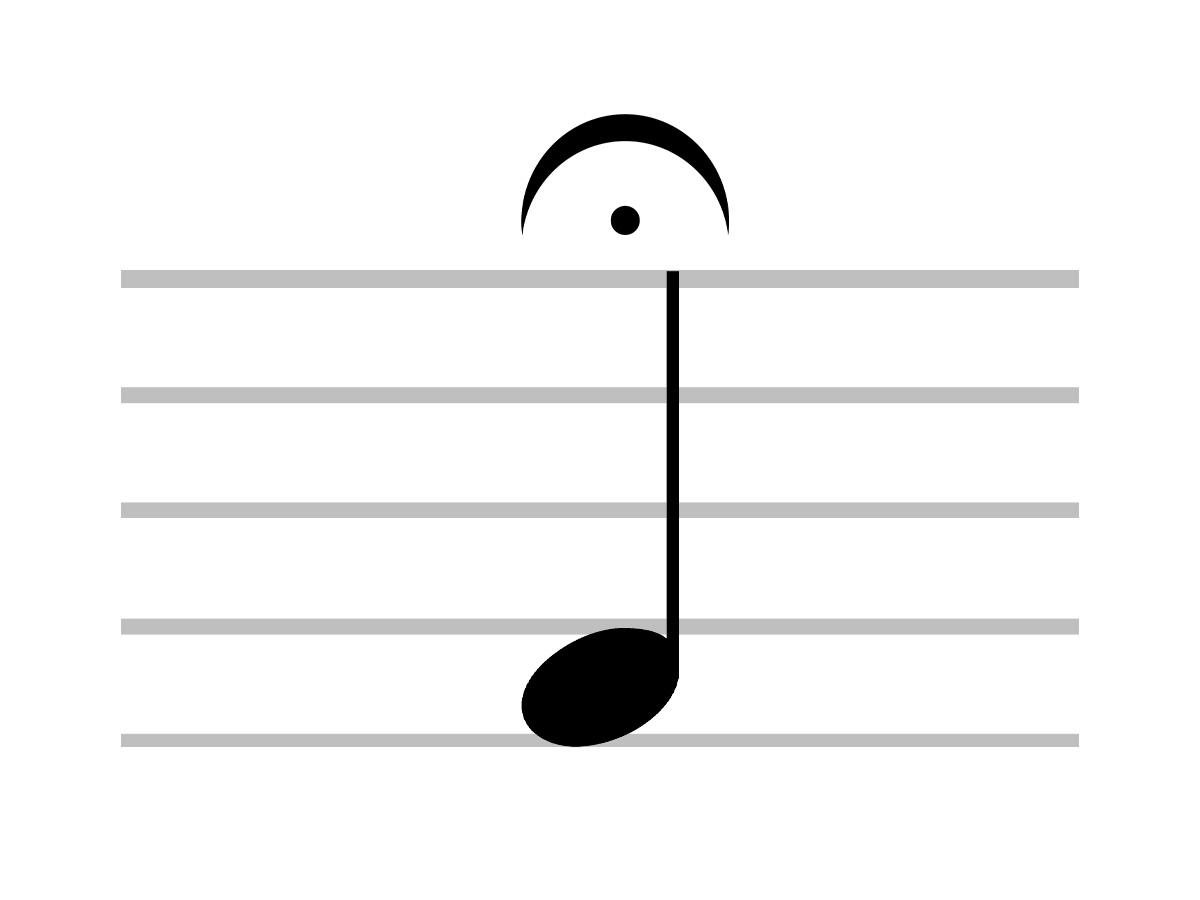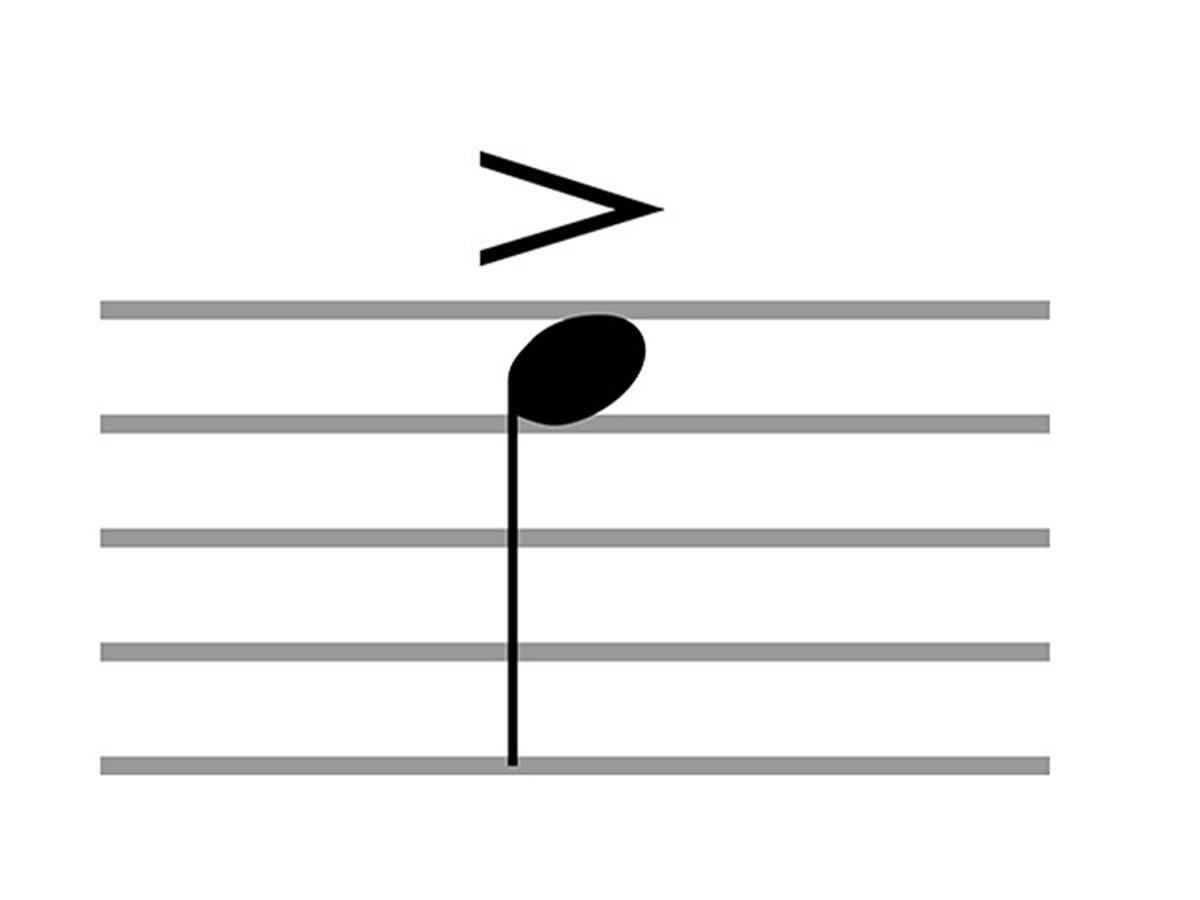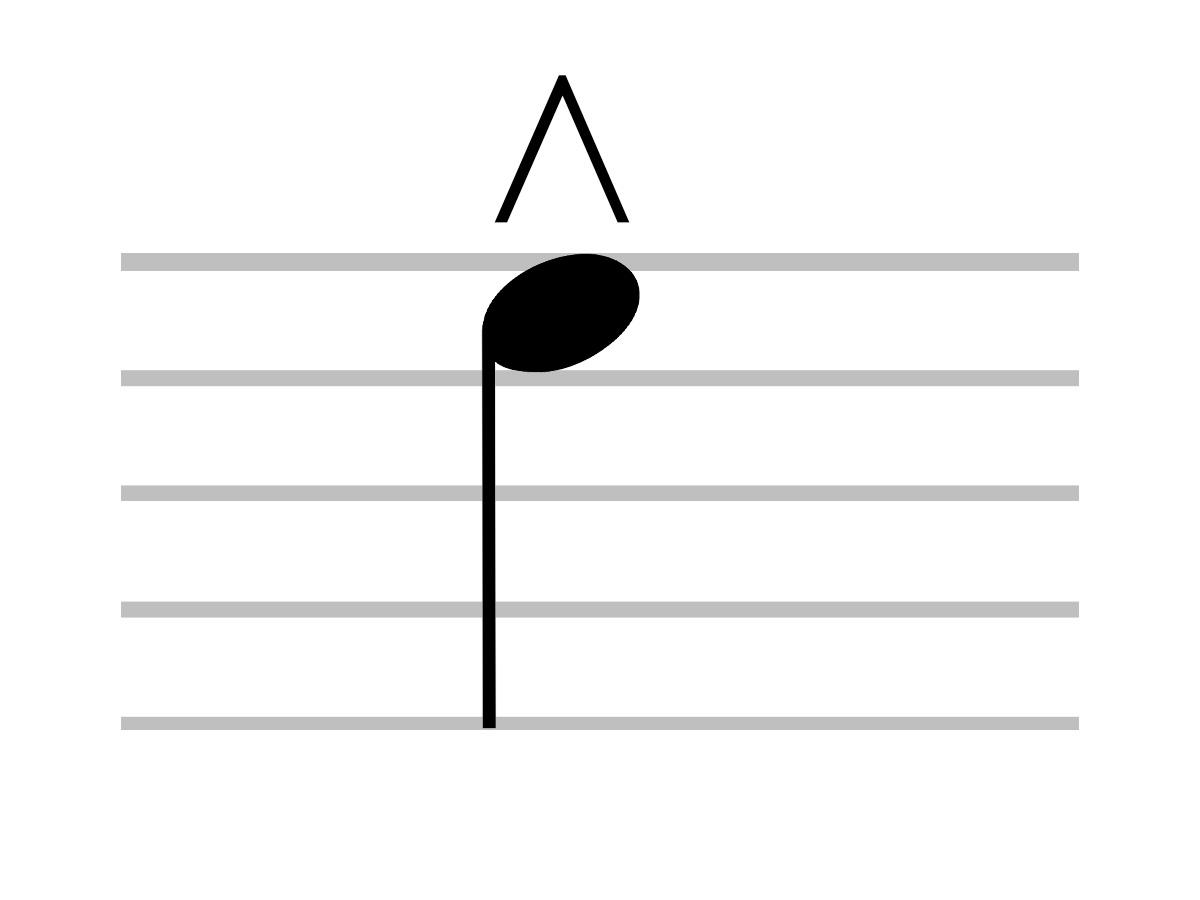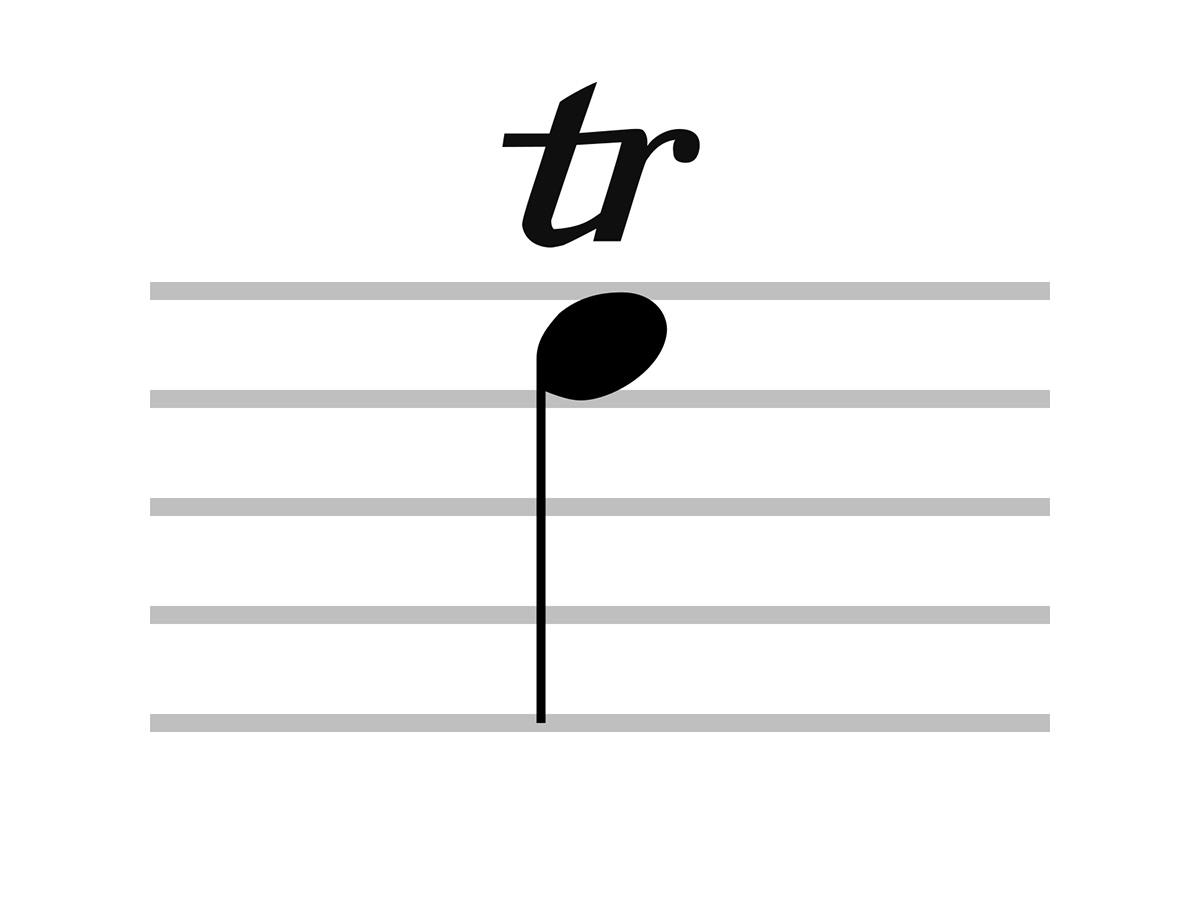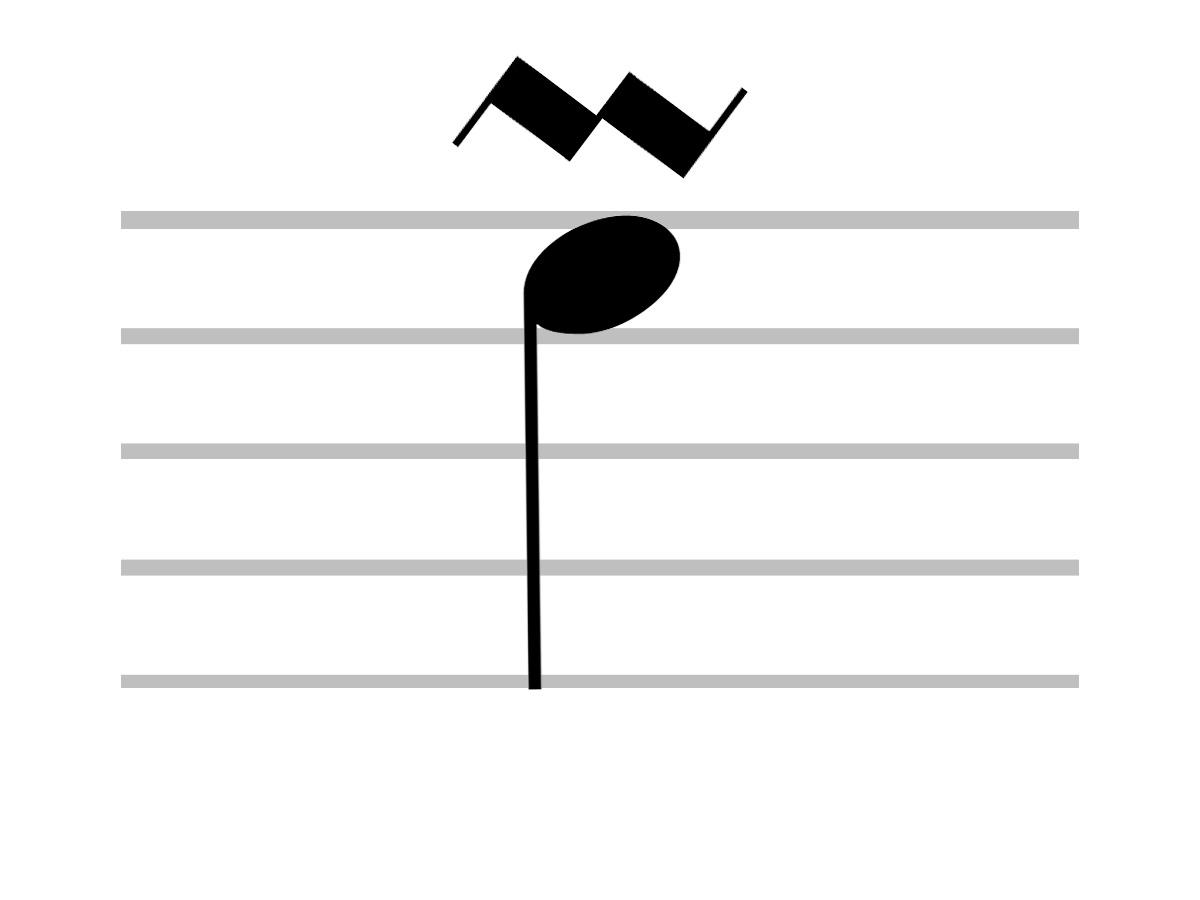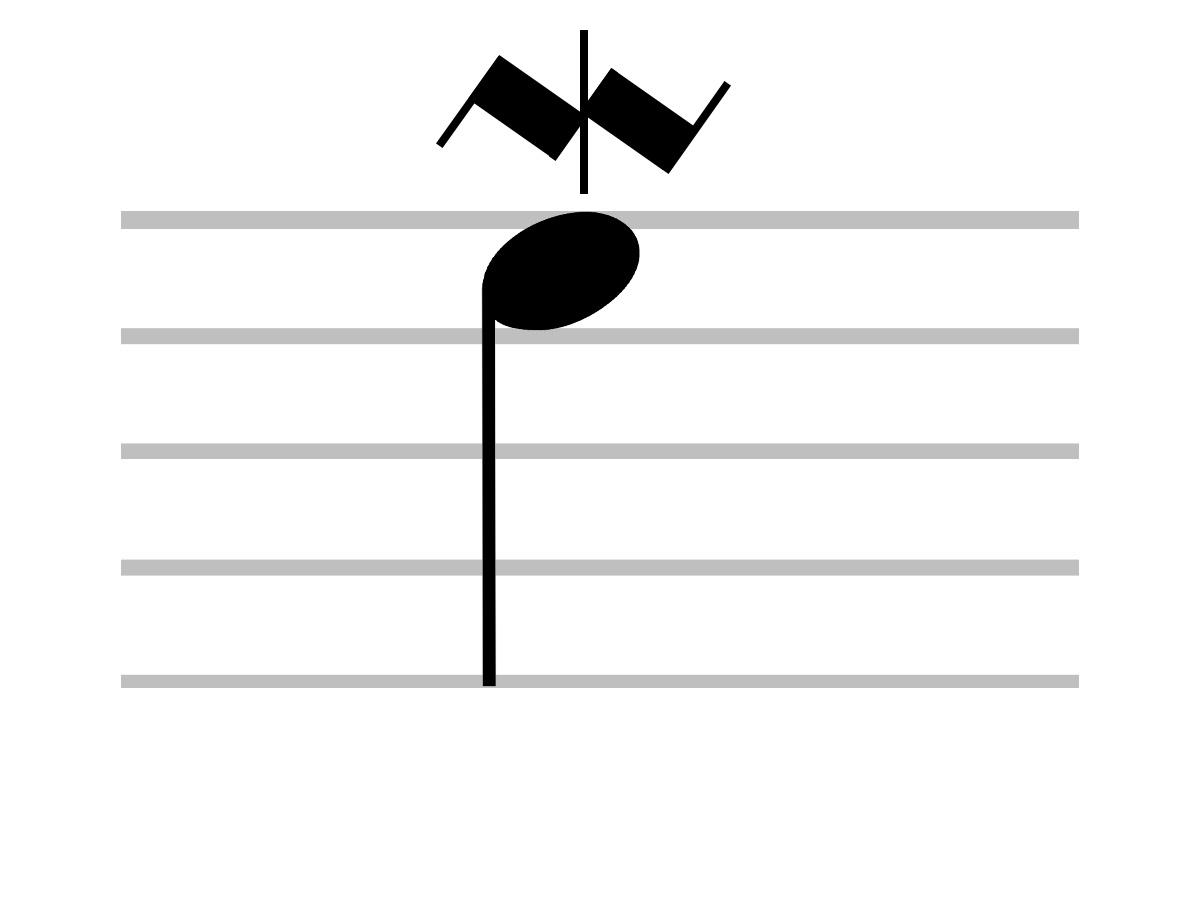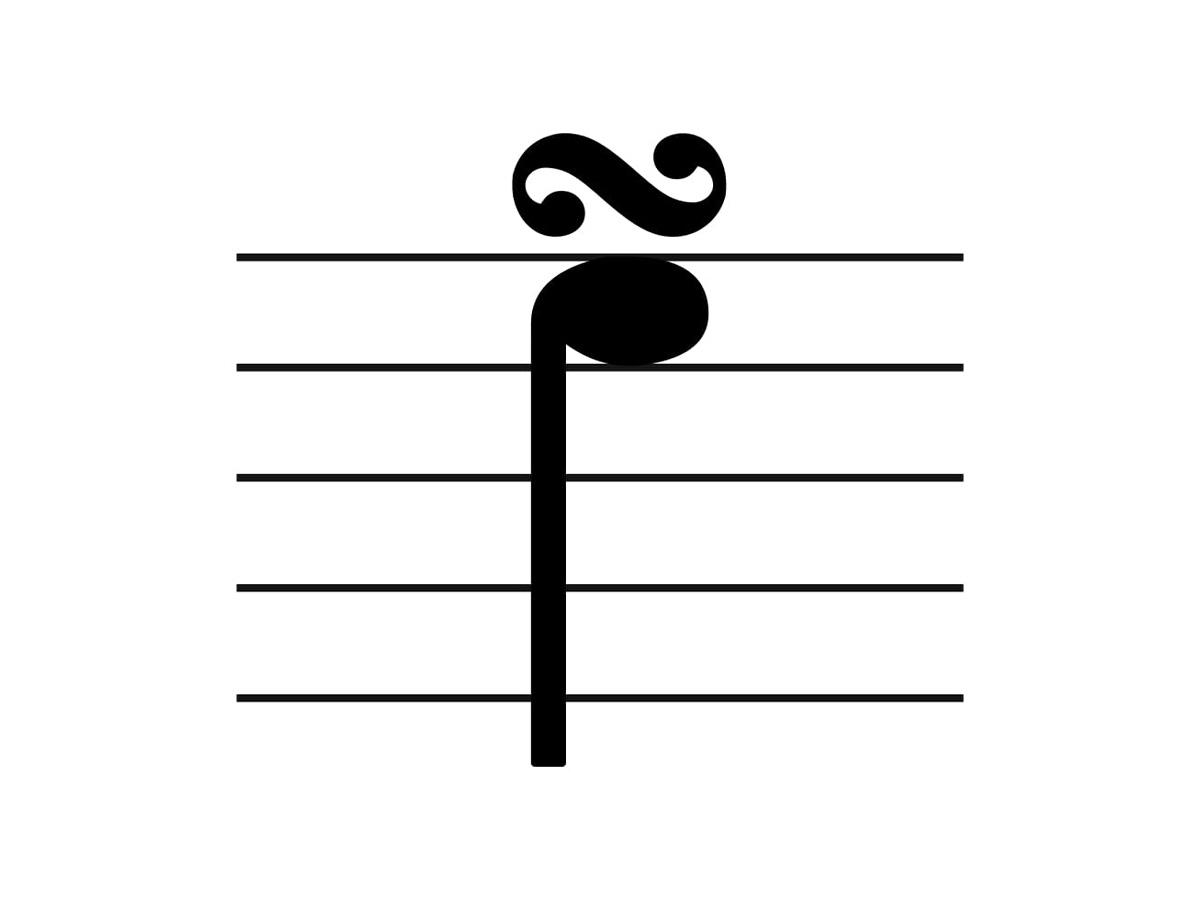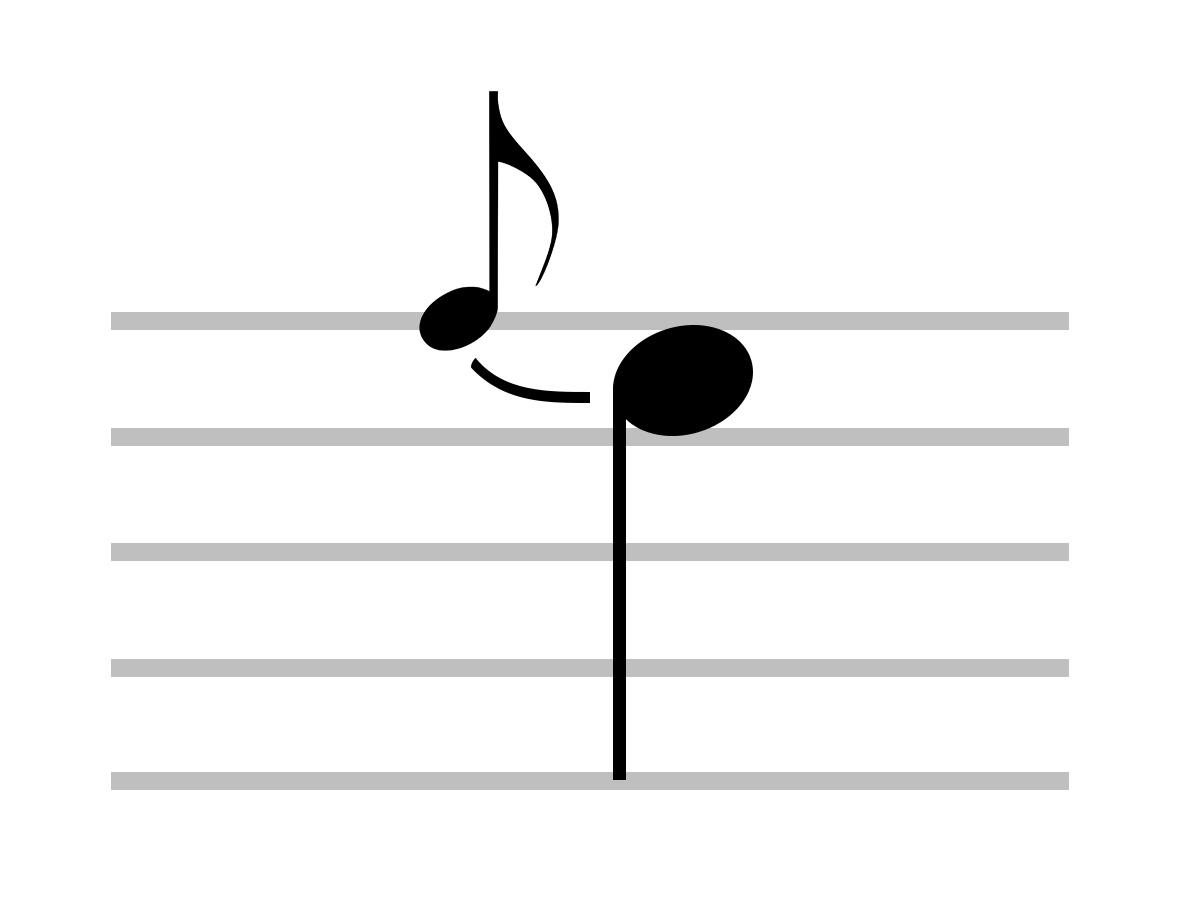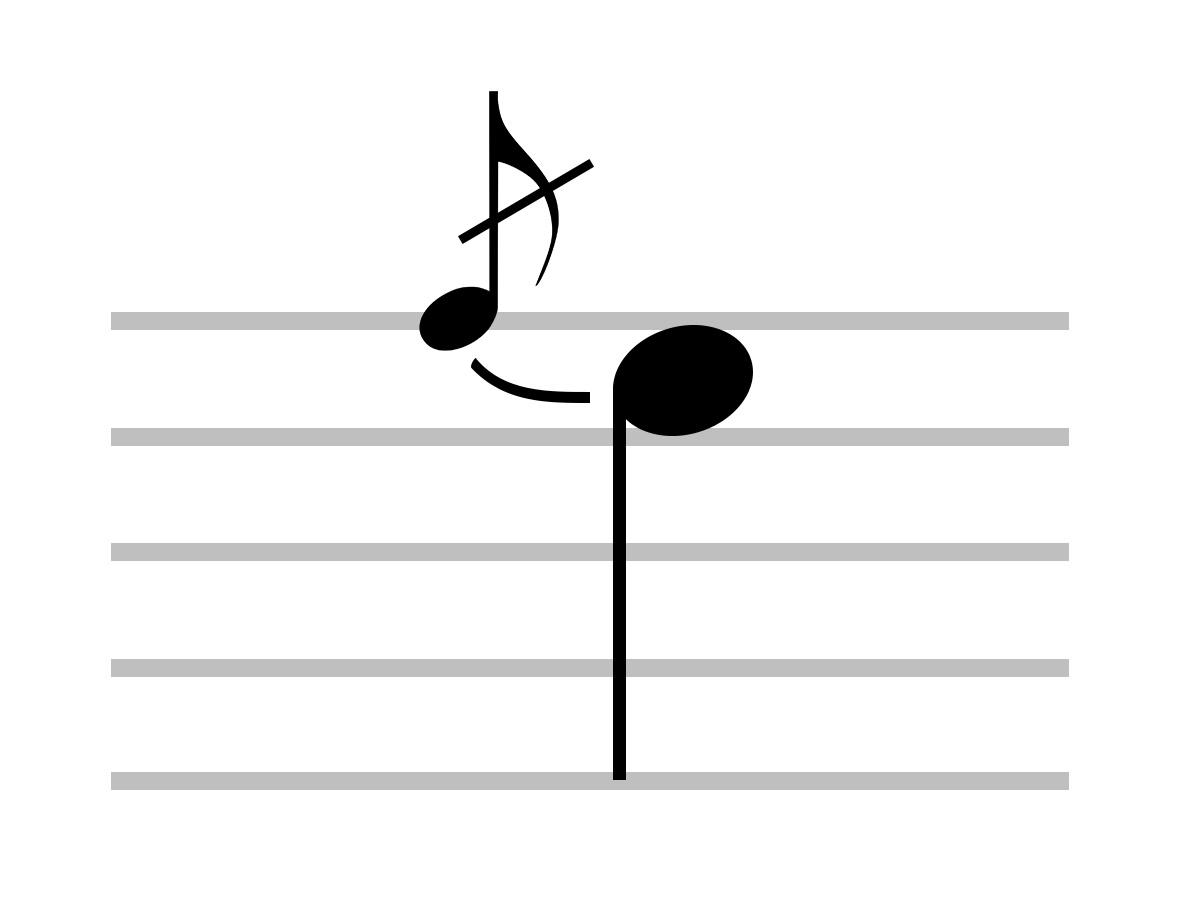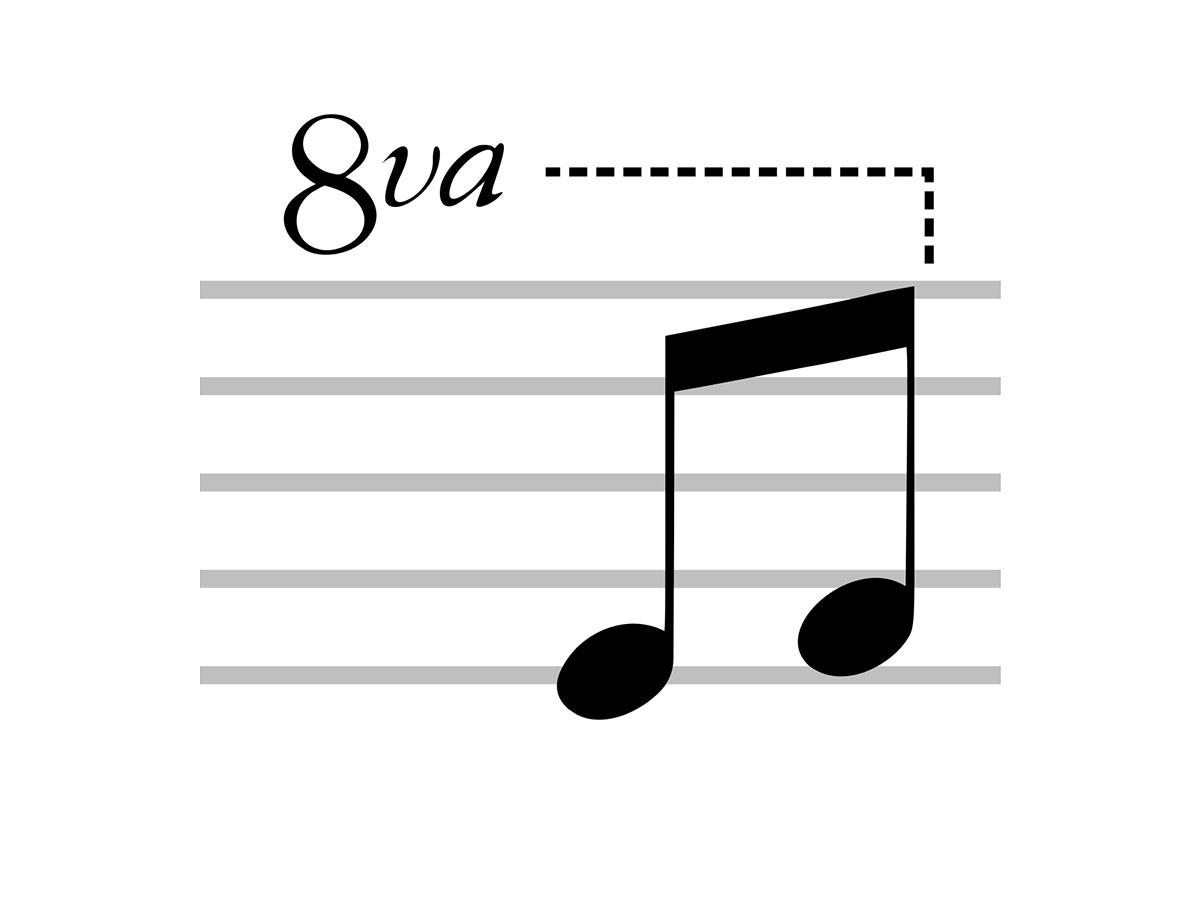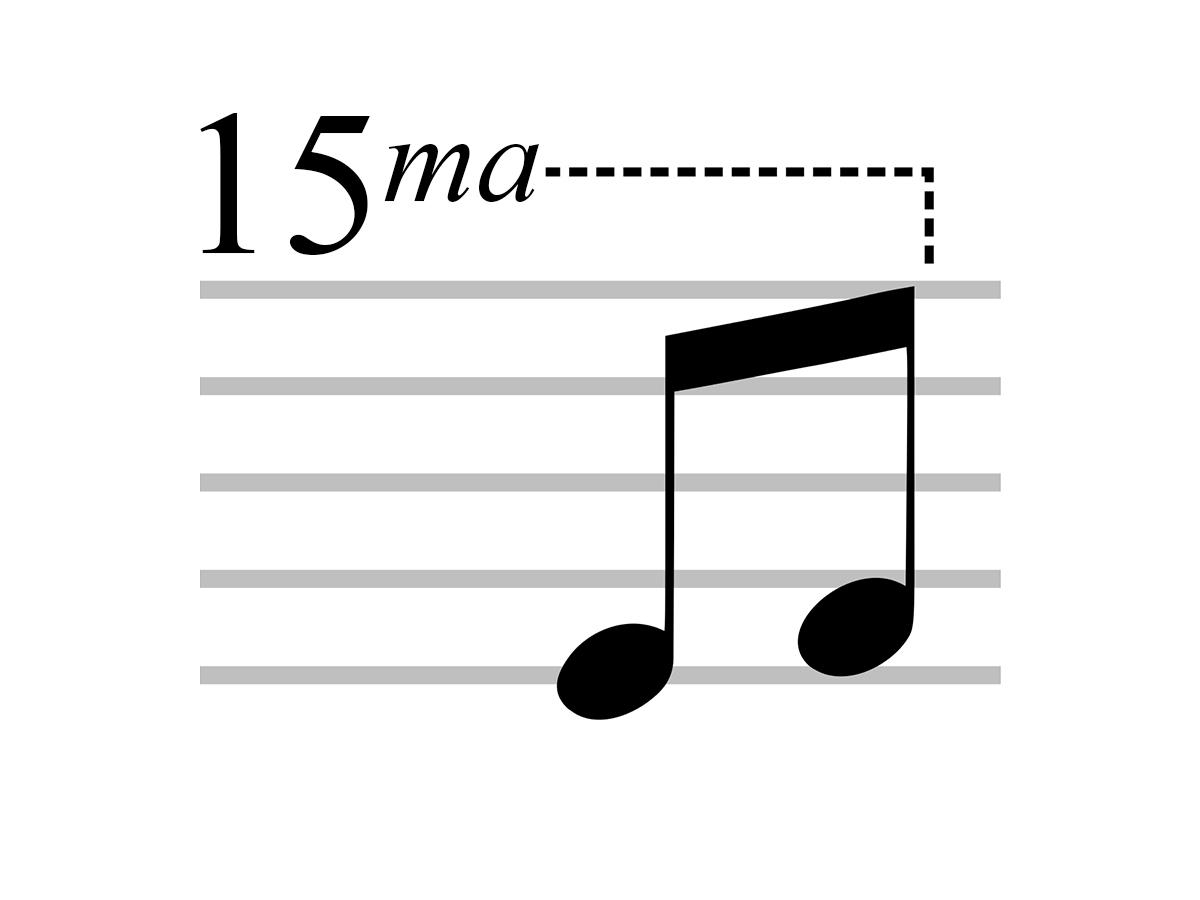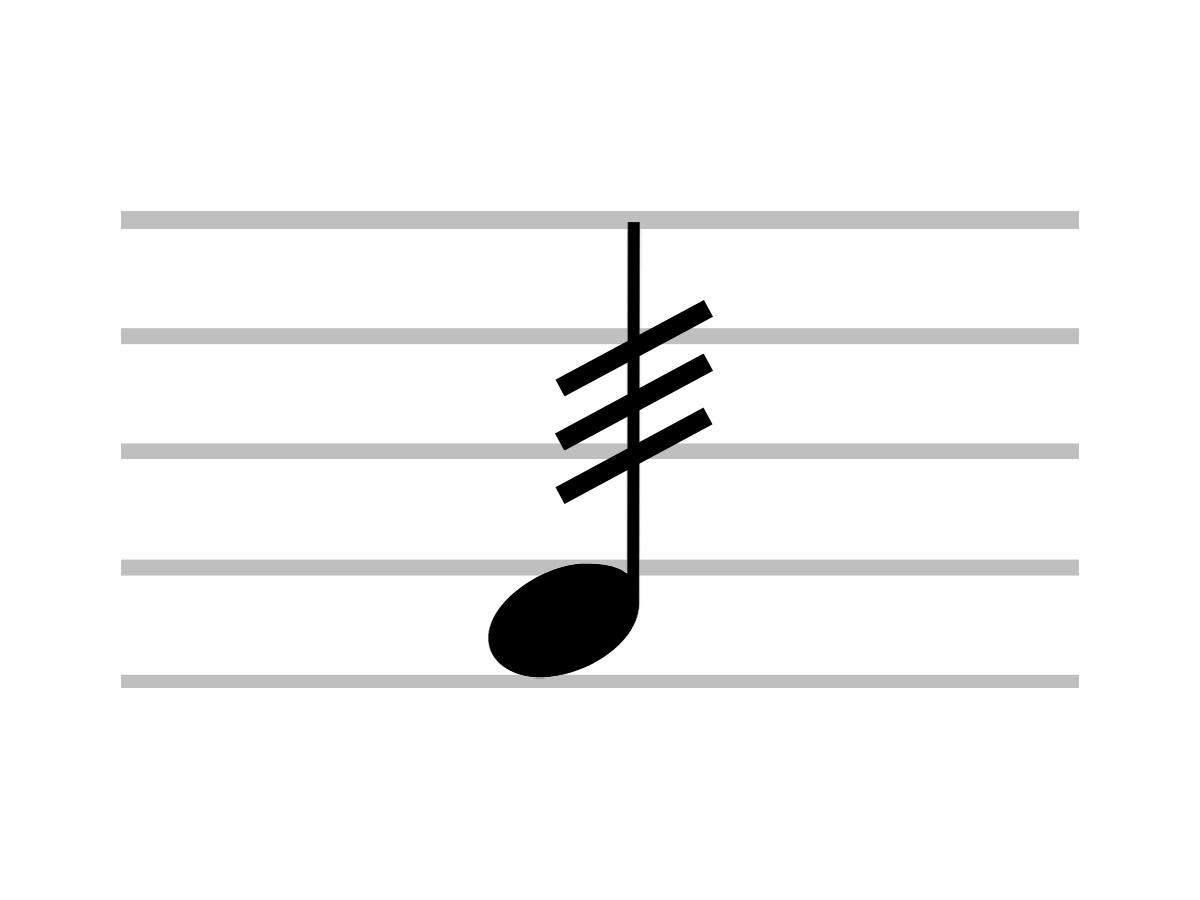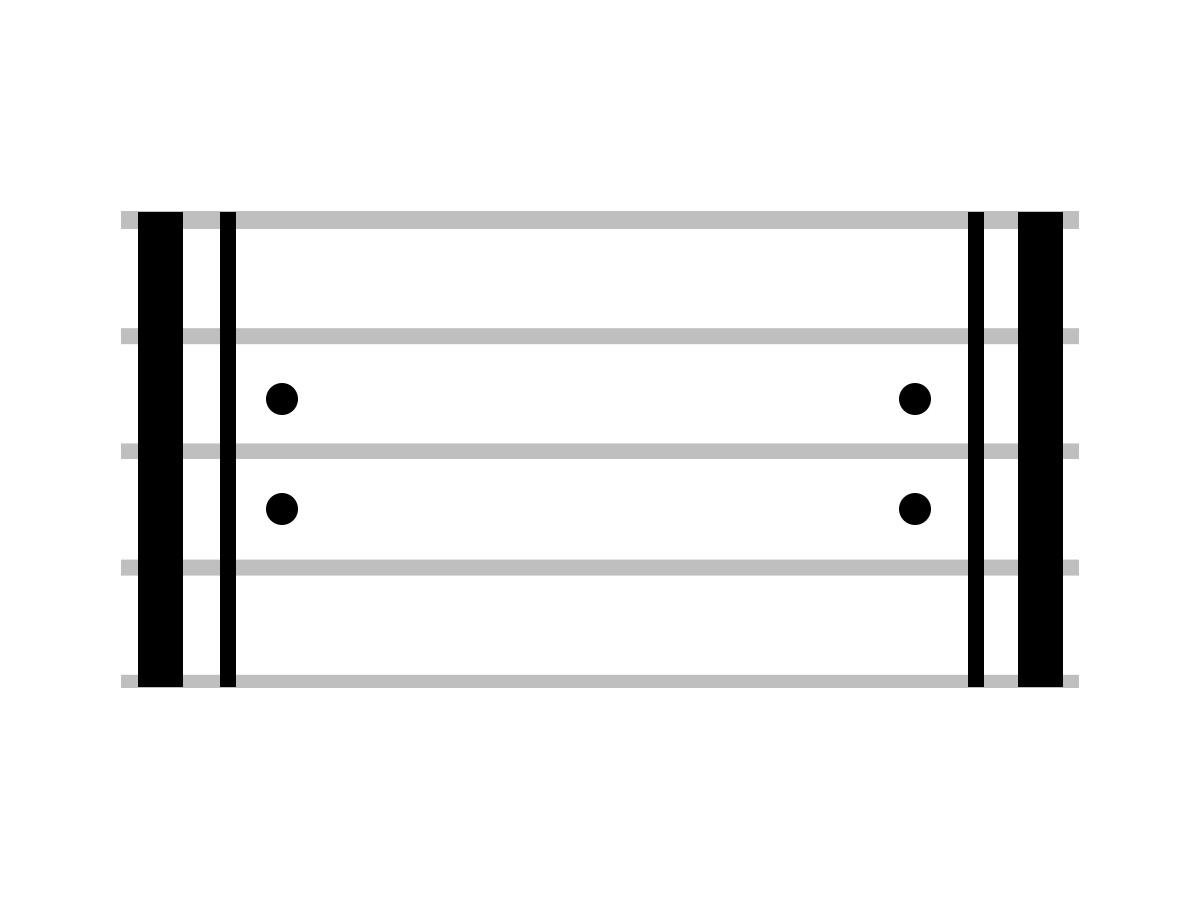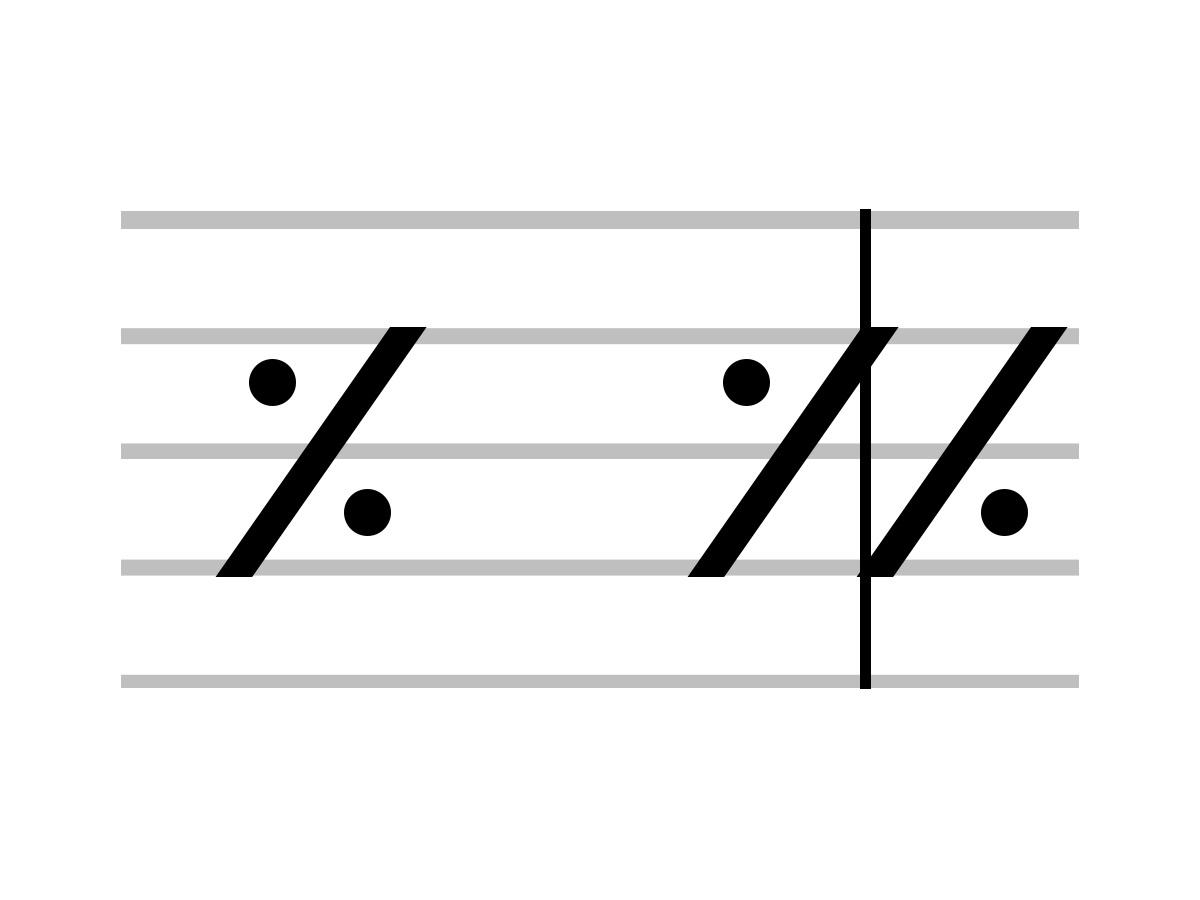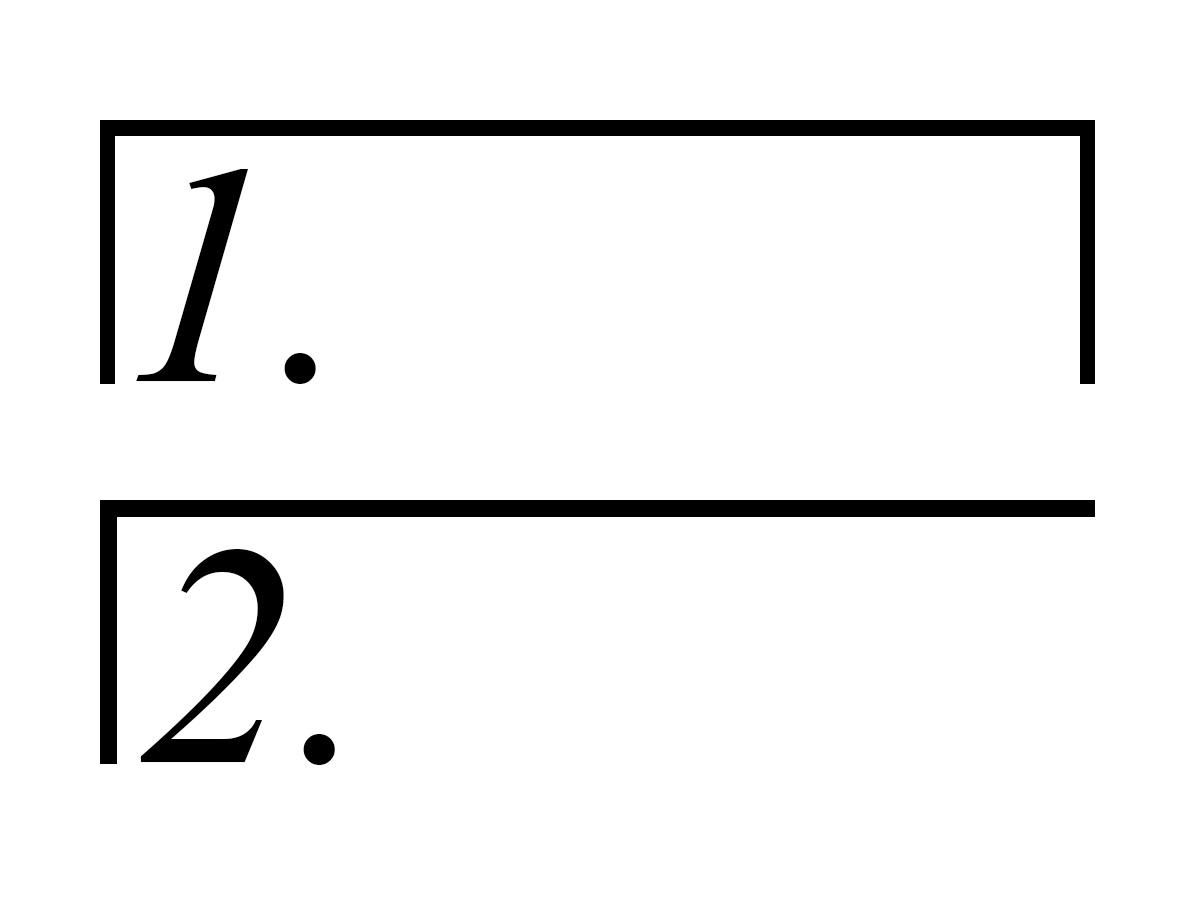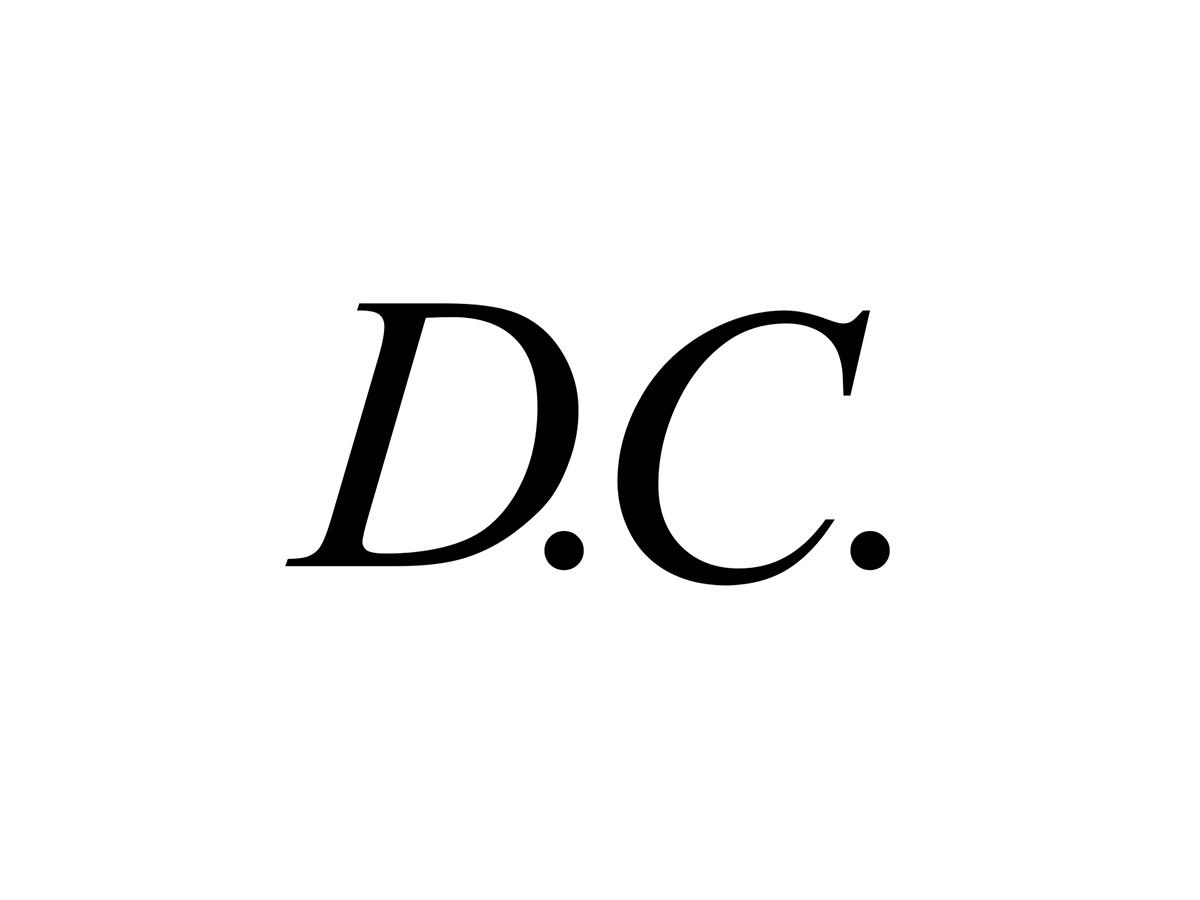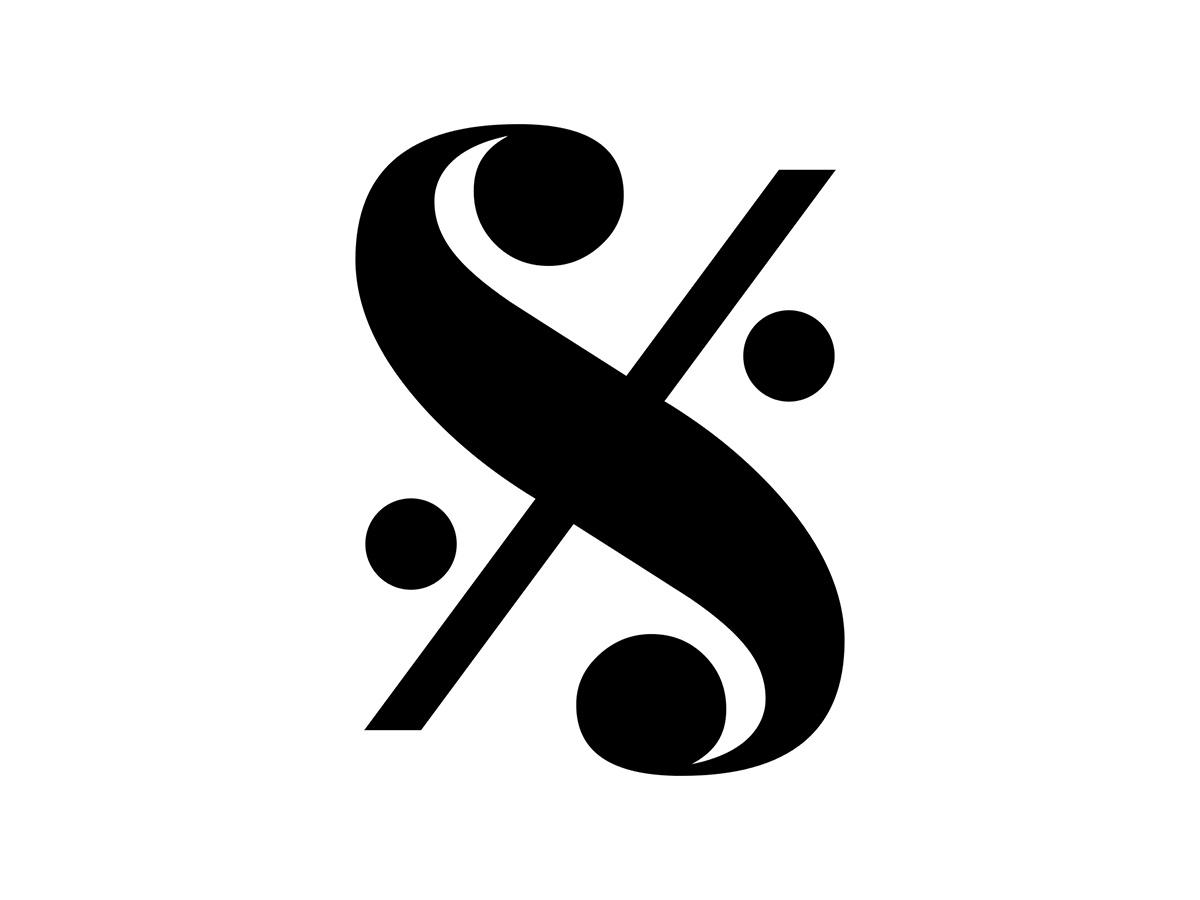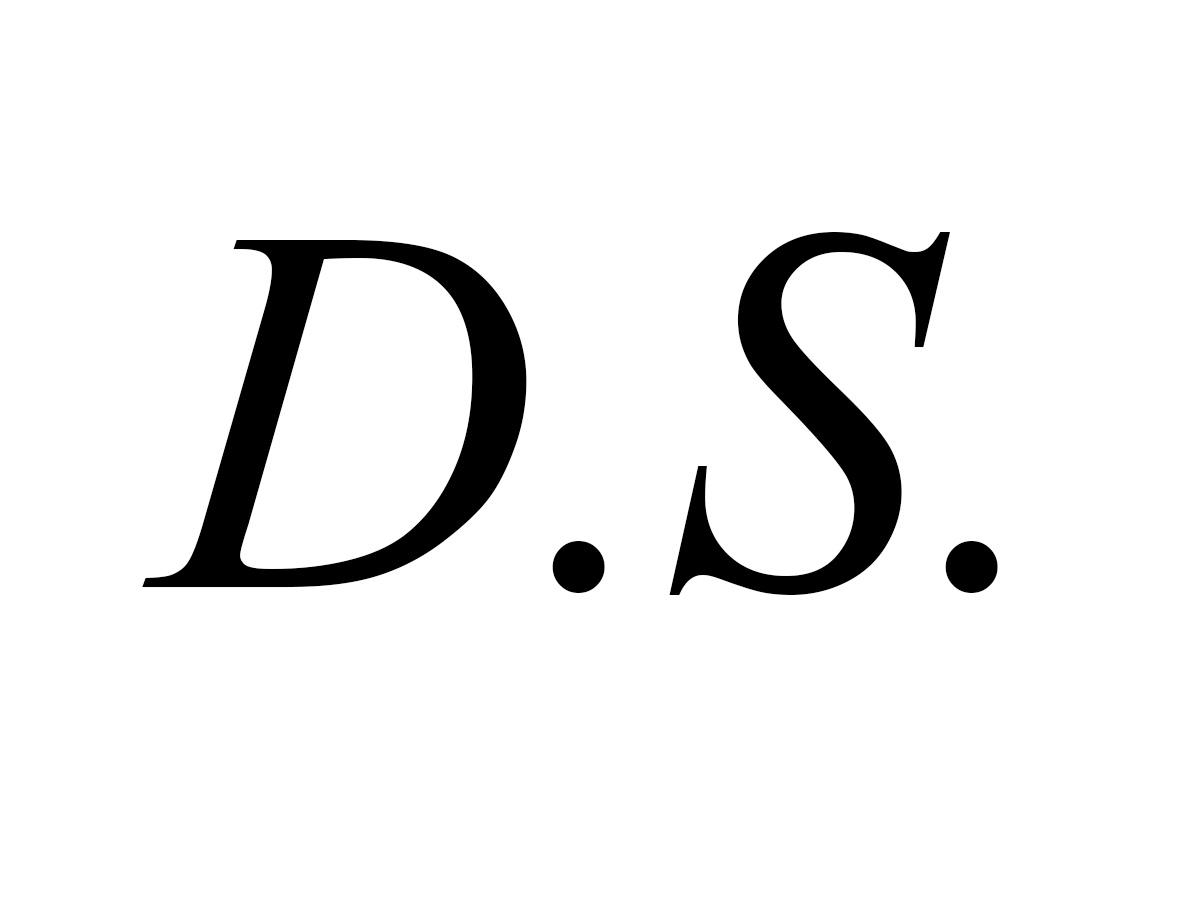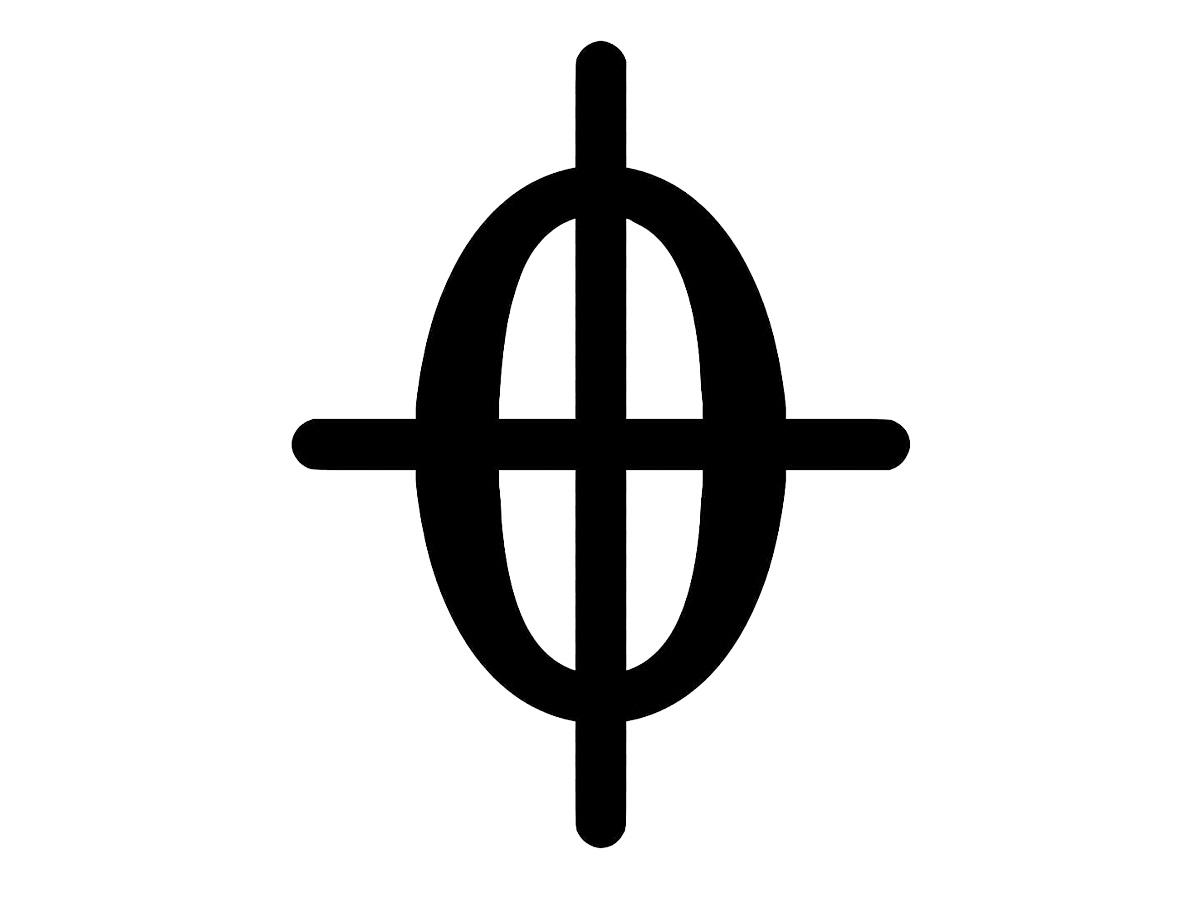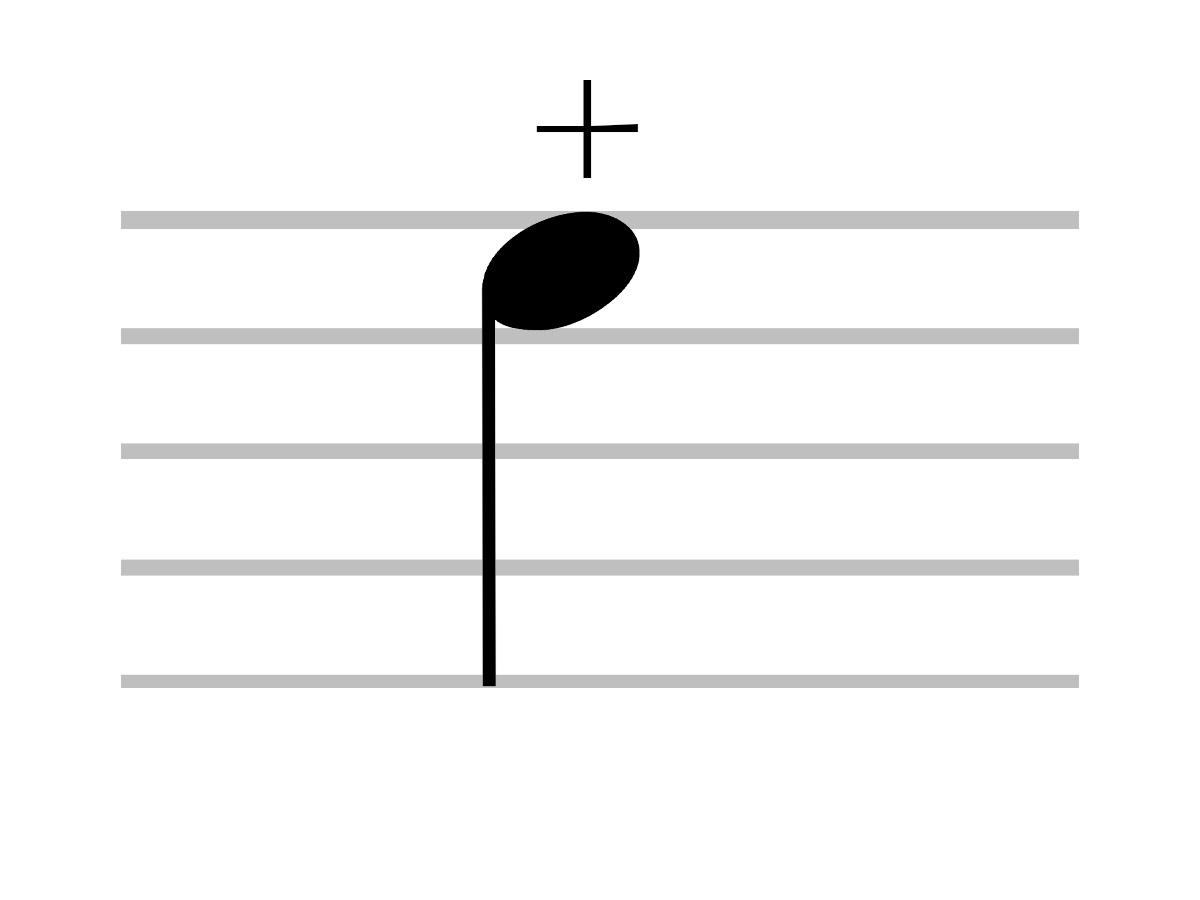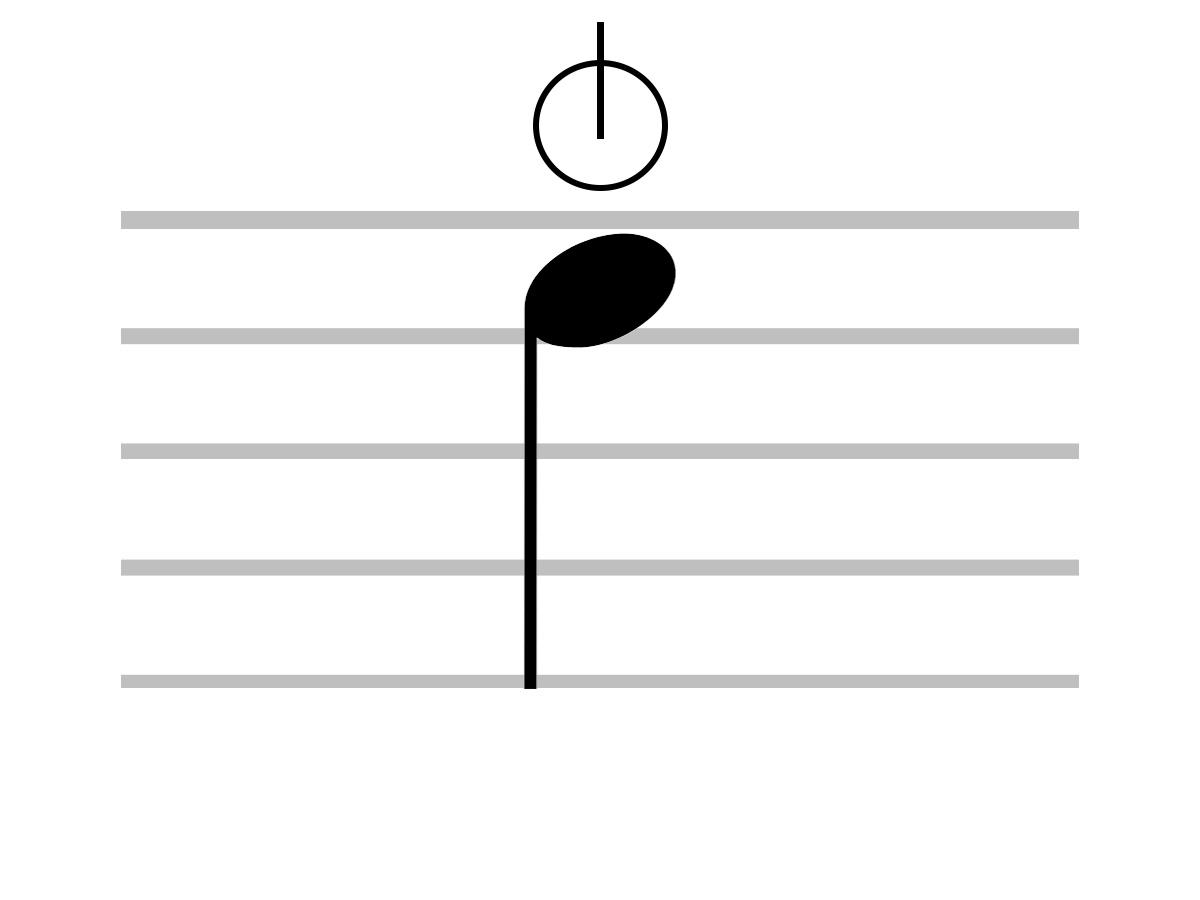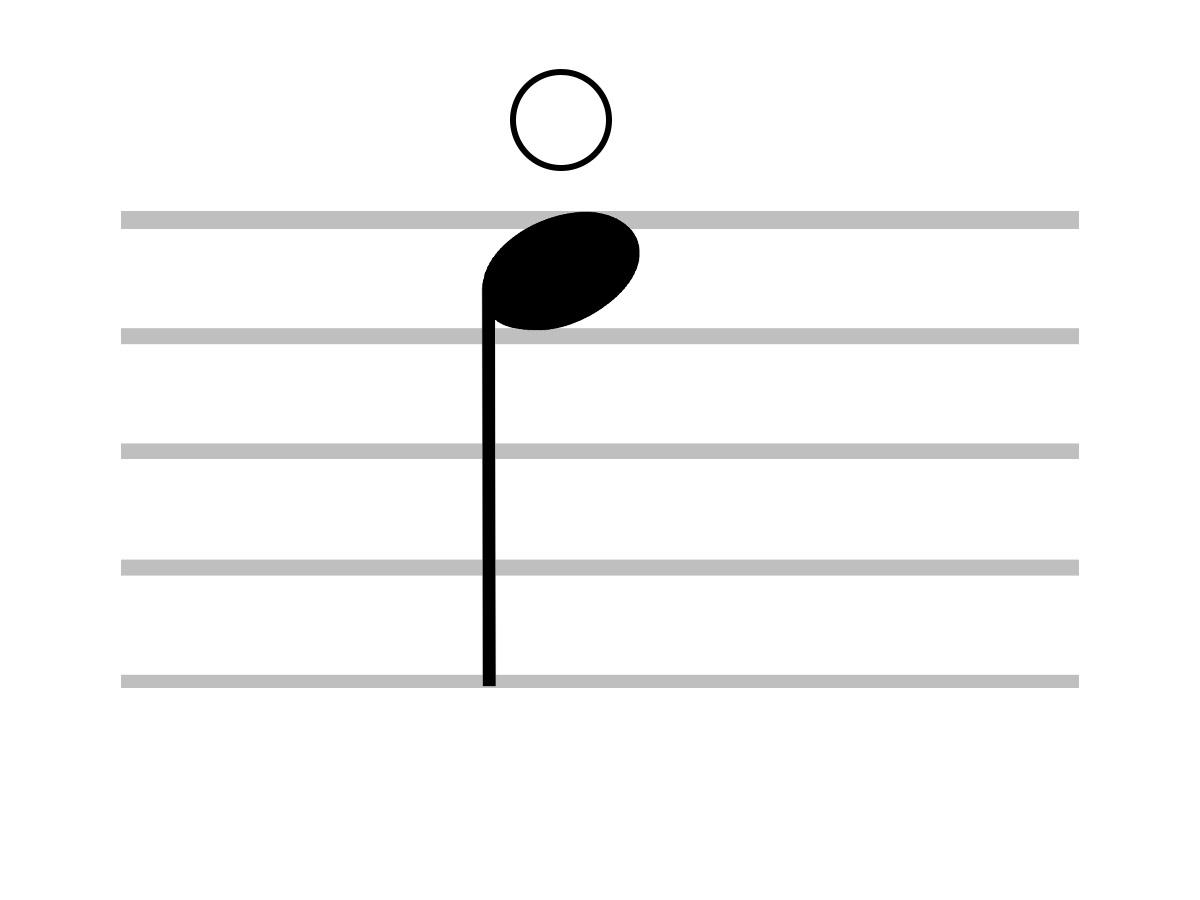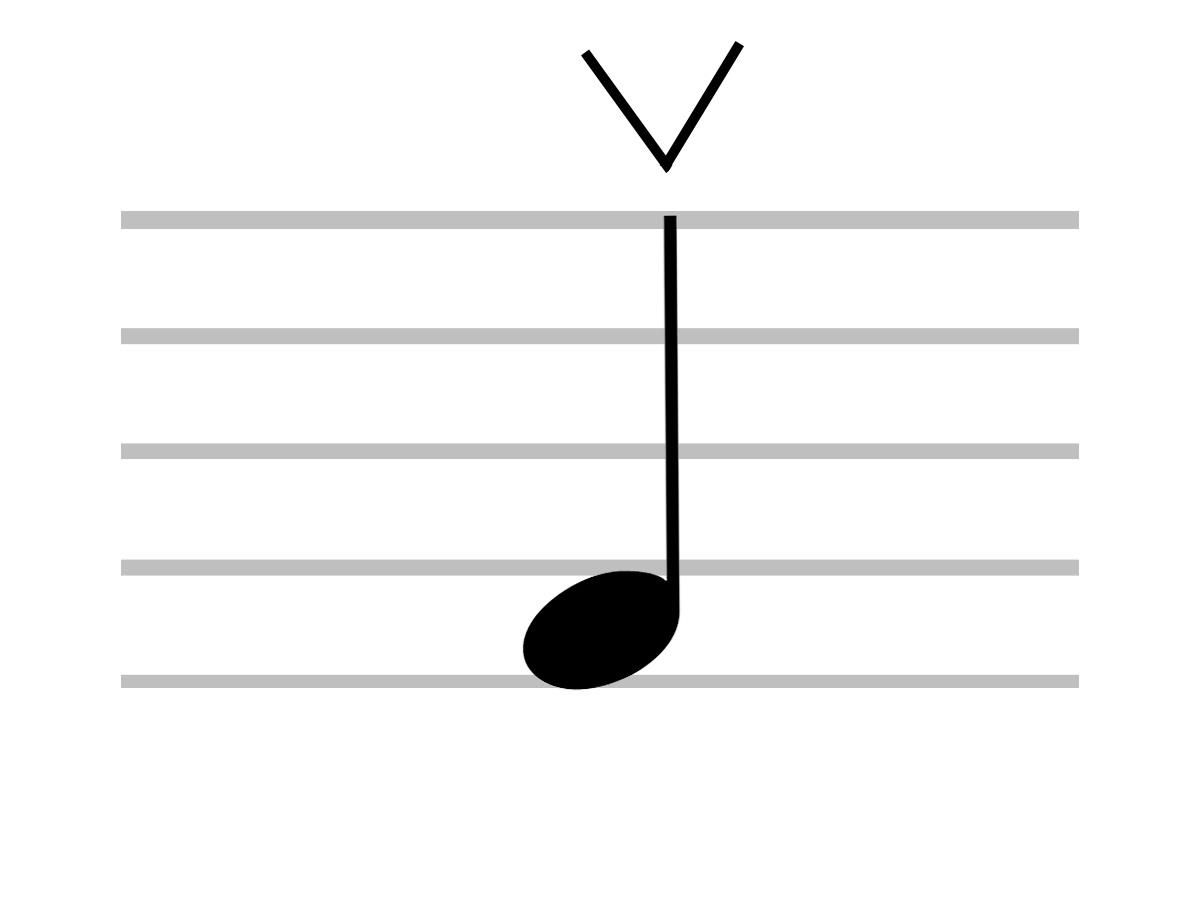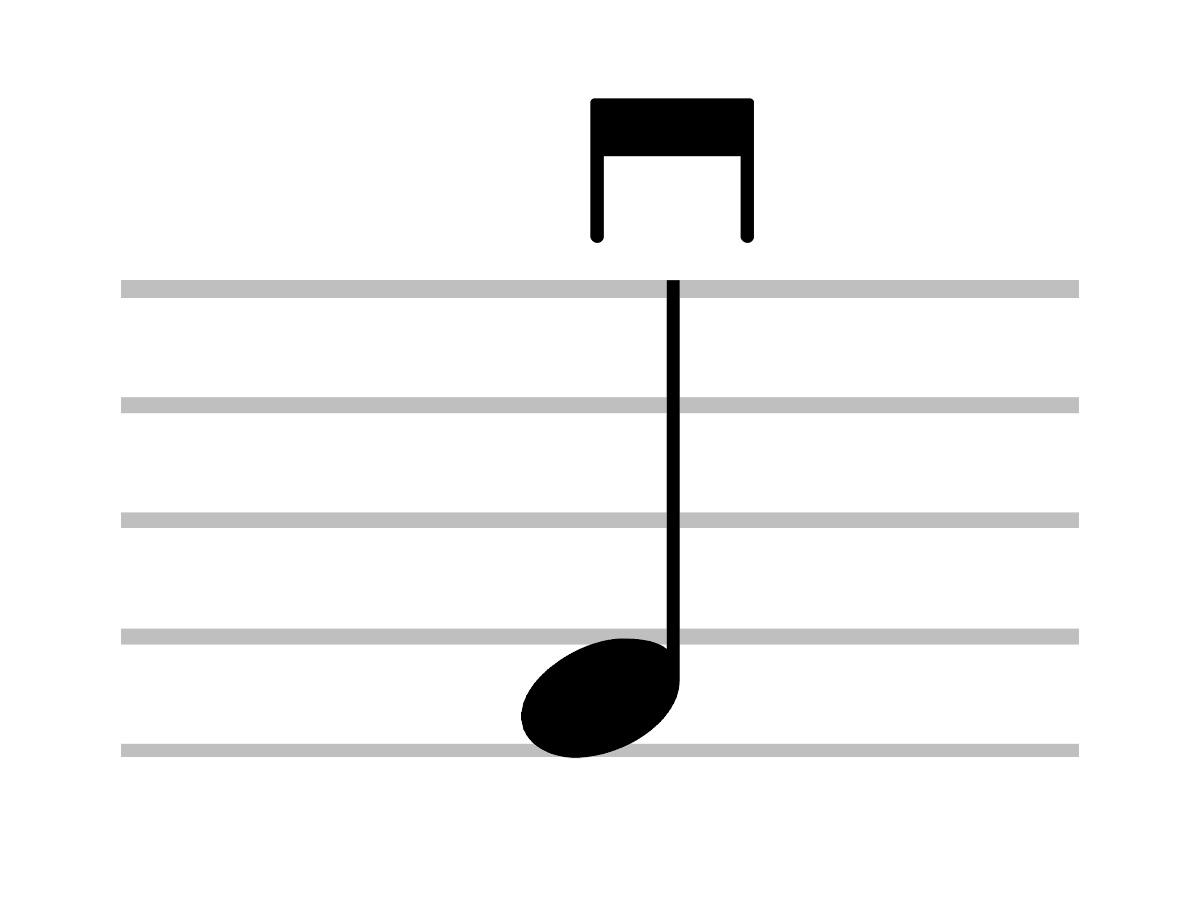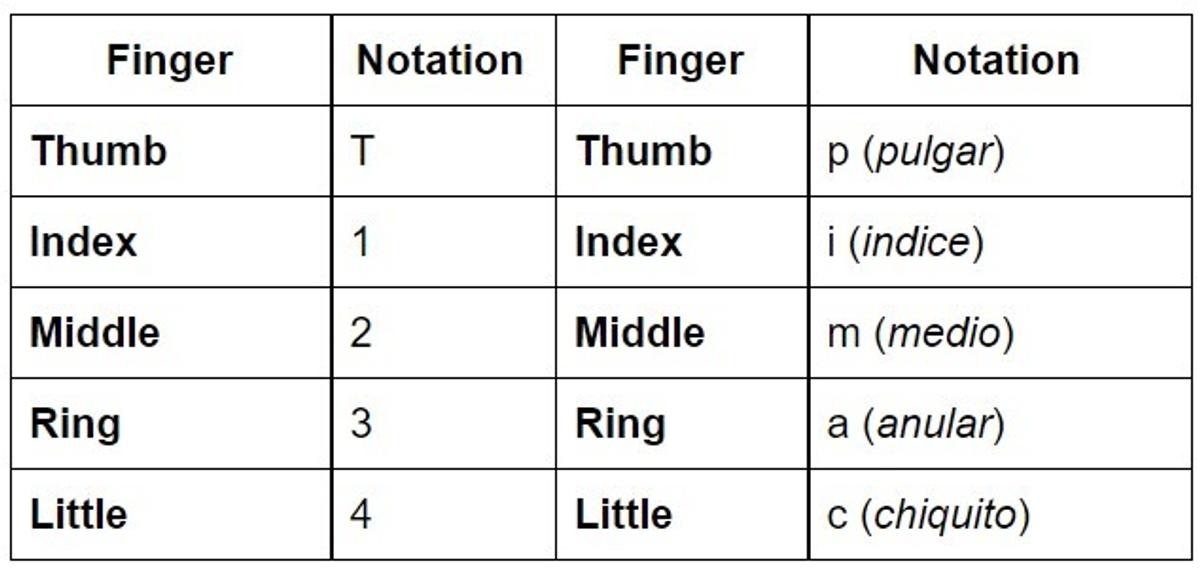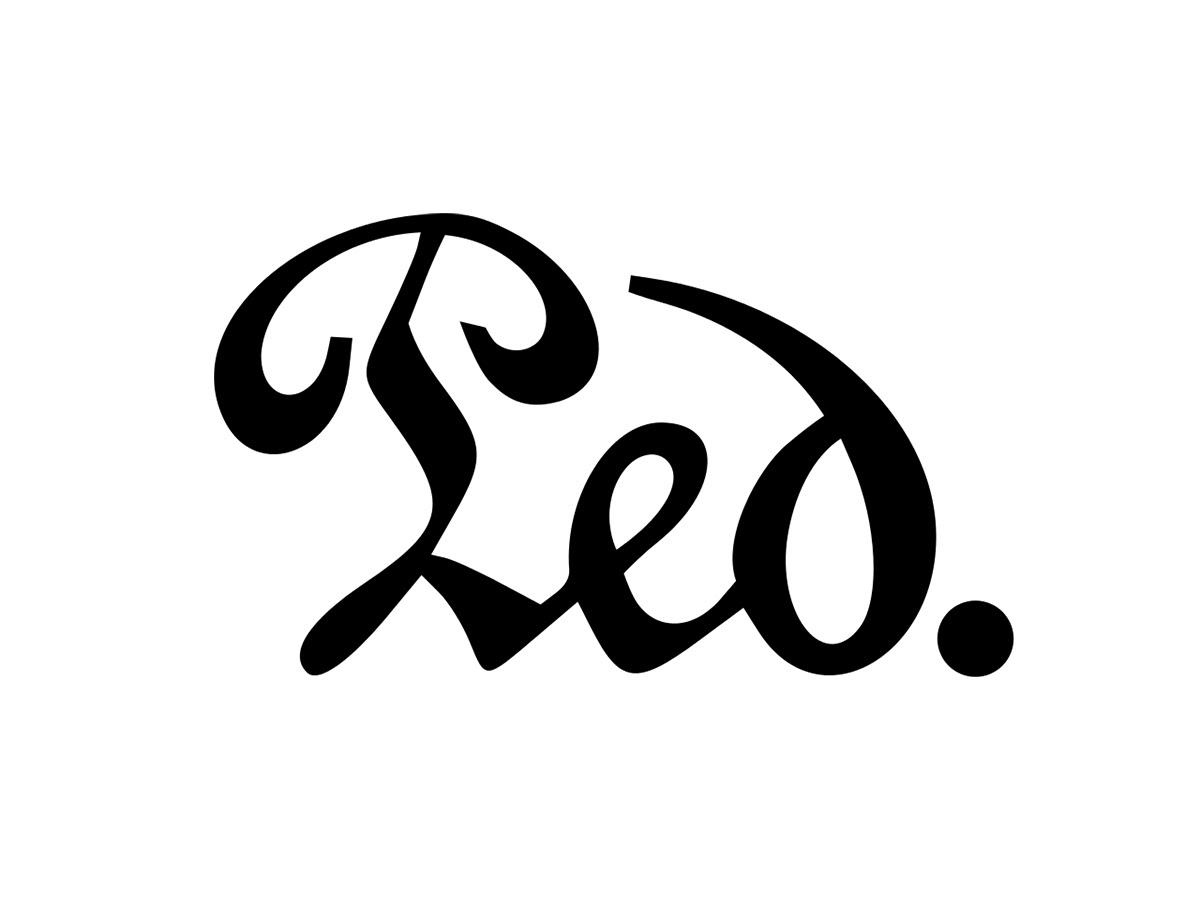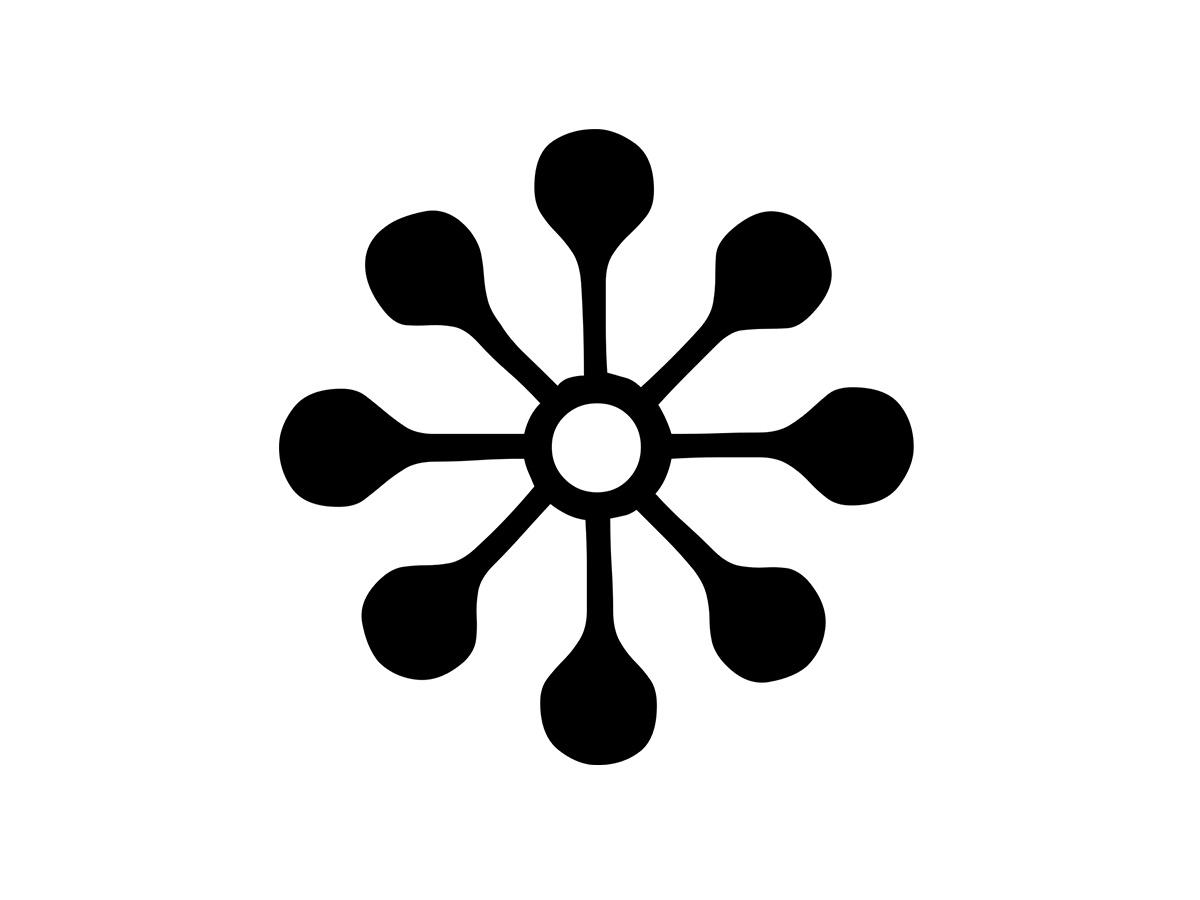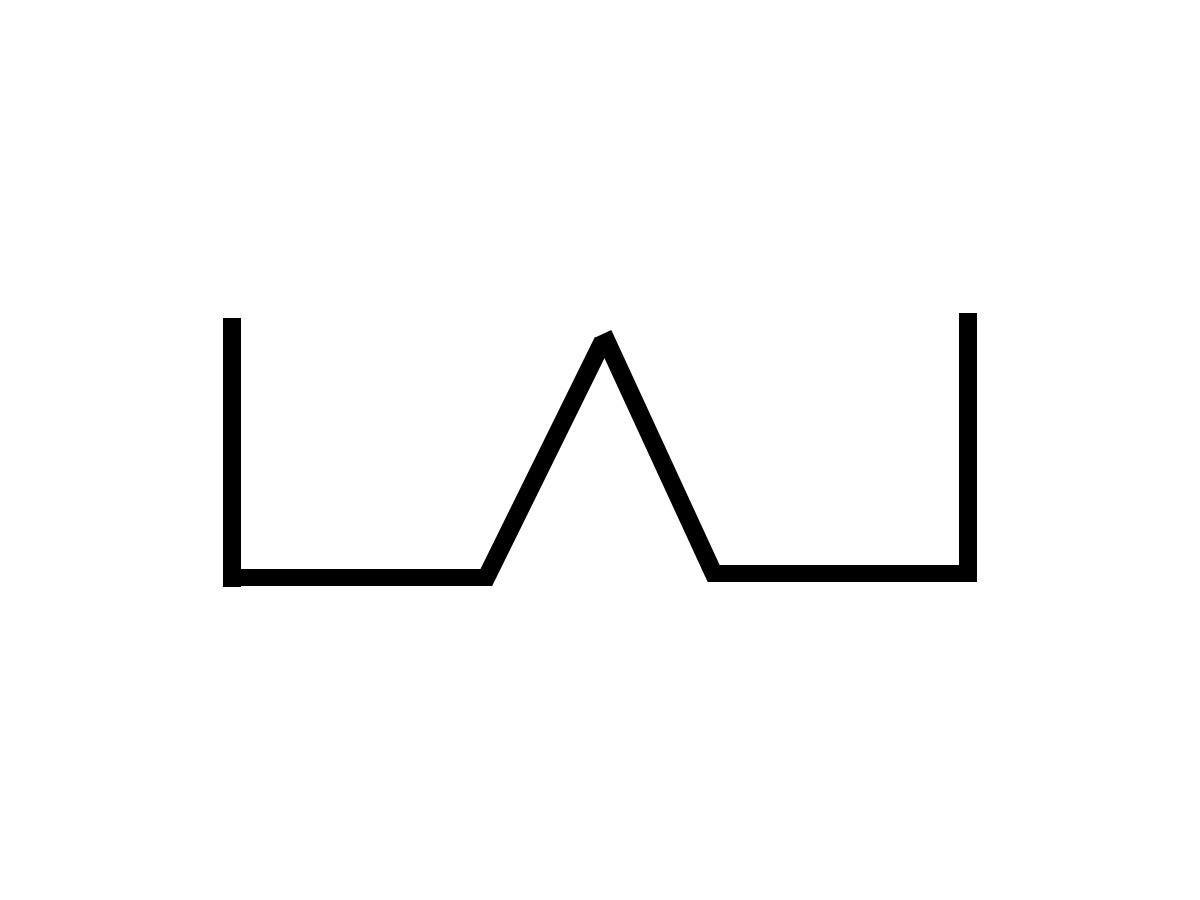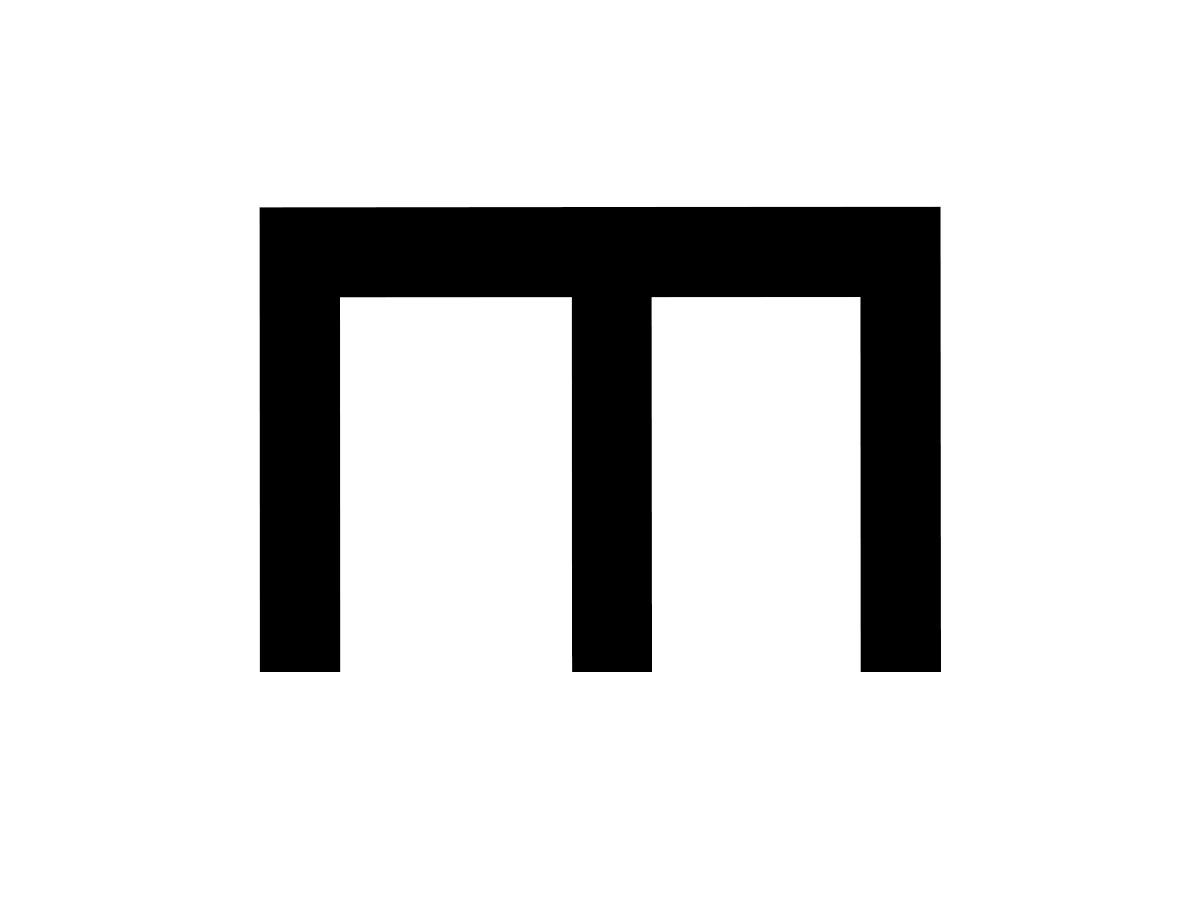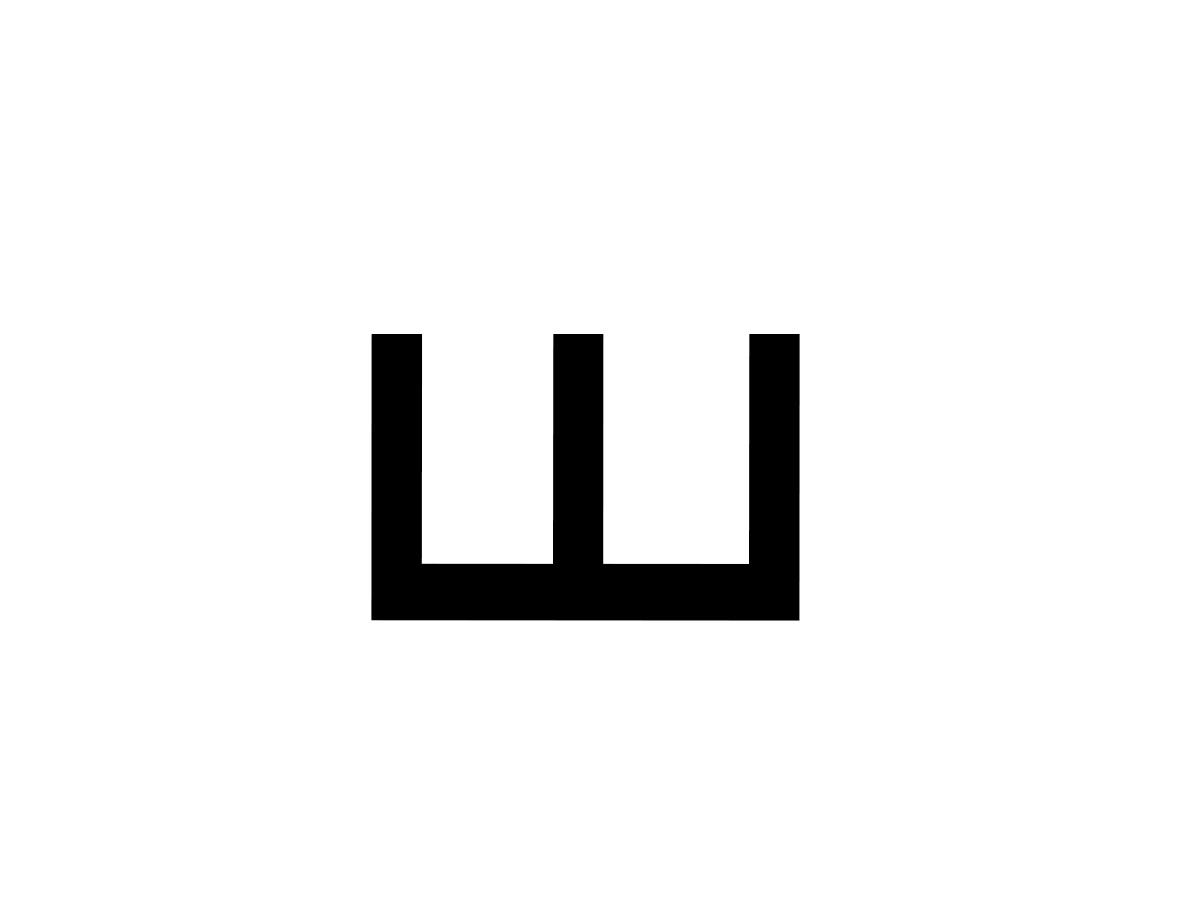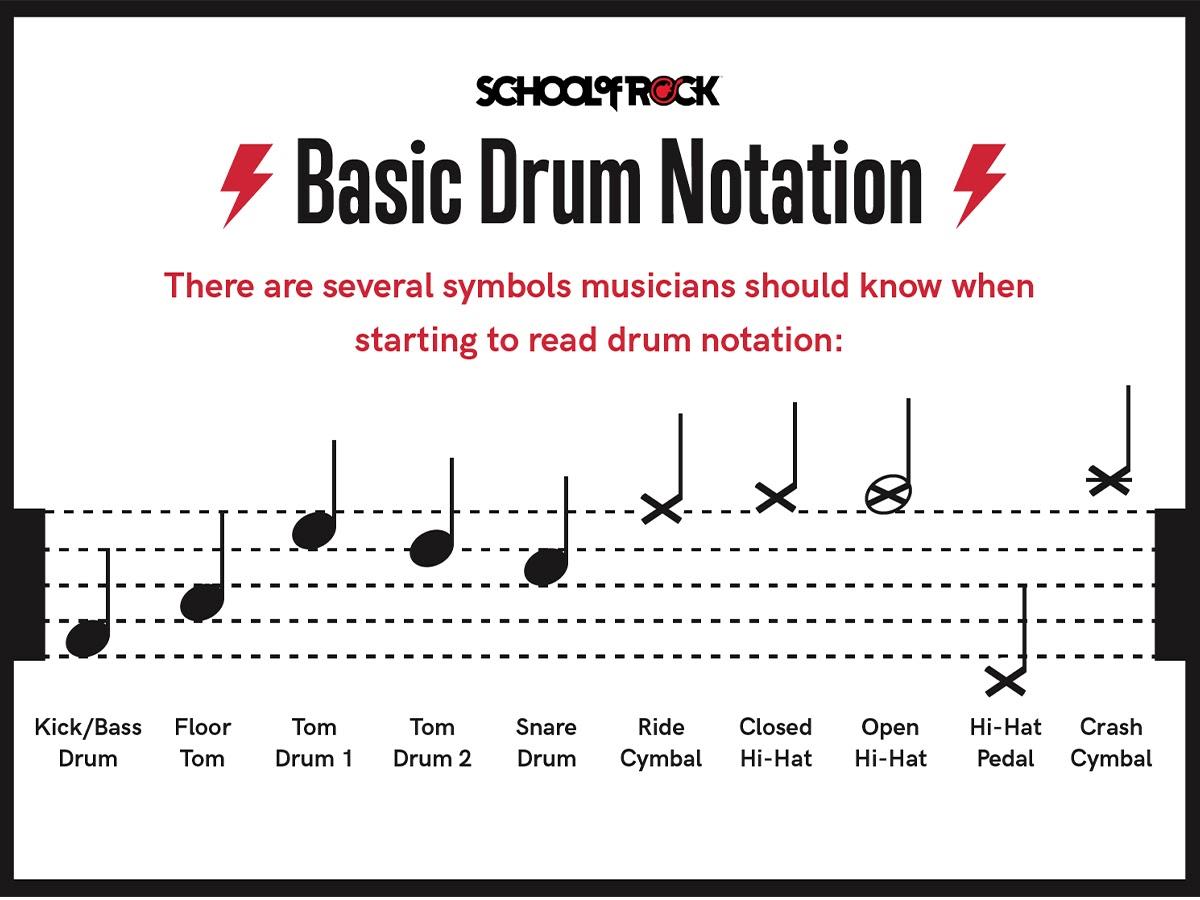When it comes to reading sheet music, there are hundreds of symbols that you need to learn before you can even think of playing off of it. All the different symbols used for various musical instruments also make it even more challenging. That’s why we have committed a few days of our time to put together all the musical symbols you need to learn in one place. In this article, you’ll learn musical symbols ranging from lines, clefs, rhythmic symbols, key signatures, and everything in between. Let’s dive right in.
Lines
Lines symbols in musical notation often relate to the non-notation markings to help composers write and organize the clefs, notes, and other symbols involved in a piece. These lines help the performers read the sheet music better and understand where they are in the piece.
Staff or stave Ledger or leger lines Barline Bracket Brace of accolade
Staff or stave
The staff (American) or stave (British) are five horizontal lines that indicate a different musical pitch or different percussion instruments. Each line and space refer to either specific notes or percussion instruments.
Ledger or leger lines
The ledger lines notate higher or lower pitches outside the lines and spaces of the regular musical staff. Lines above indicate a higher pitch, while lines below lower indicate a lower pitch.
Barline
Barlines separate musical bars according to the time signature of the piece. This helps musicians keep track of where they are in the sheet music. There are several different types of barlines: double barline, bold double barline, and dotted barline.
Double barline
A double barline usually appears at the end of a section to tell the performers of the upcoming changes in the pitch, tone, or pace. Pop songs usually have a double barline between the verse and the chorus.
Bold double barline
A bold double barline marks the end of the piece. It looks like a regular double barline but with a thicker second line.
Dotted barline
A dotted barline is the modified version of a regular barline. It divides long bars into shorter segments to help performers read the sheet music.
Bracket
Brackets connect two or more lines of music that need to be played simultaneously. A bracket usually connects staves of individual instruments (e.g., flute and clarinet) or multiple vocals in modern music.
Brace or accolade
A brace connects two or more lines of music that need to be played simultaneously by a single player when using a grand staff. Braces usually connect staves for piano, celesta, harp, organ, and some pitched instruments.
Clef
A clef is a musical symbol that indicates which notes are represented by the lines and spaces on a musical staff. These symbols often appear at the beginning of the section in a musical staff. Clef can be placed on any line or space on the musical staff, but modern notations usually only use treble, bass, alto, or tenor clef.
G clef or treble clef C clef or alto and tenor clef F clef or bass clef Octave clef Neutral clef Tablature
G clef or treble clef
The spiral bit of the G clef points to where the G (or sol) is located on the staff. When the spiral is located on the second line of the staff, it’s called a treble clef.
C clef or alto and tenor clef
The center part of a C clef marks the line representing middle C/do. If the center part points to the third line, it becomes an alto clef, which is common in viola. If the center point is at the fourth line on the staff, it becomes a tenor clef, which is mainly used for bass, cello, trombone, and double bass.
F clef or bass clef
An F clef marks the line that represents the F/fa note in between the two dots. When the F is placed on the fourth line, the symbol is called a bass clef.
Octave clef
An octave clef modifies the treble and bass clef to indicate whether the pitch sounds higher or lower than natural. An “8” means one octave, and a “15” means two octaves.
Neutral clef
Neutral clef often appears in pitchless instruments like the drums. The lines here indicate specific instruments, such as the different drums in a drum set.
Tablature
The tablature doesn’t represent pitches in any way, but it replaces regular staff for string instruments like the guitar. The lines in a tablature represent the string of an instrument (e.g., a standard 6-string guitar would use a 6-line tablature).
Symbols for the Rhythmic Values of Notes and Rests
Musical notes indicate the relative duration of a note using the shape of a note head, note stem, and note flags. Rests indicate silence of the equivalent duration as the musical notes. These symbols have two varieties: one for the musical note and another one for rests.
Large or octuple whole note Long or quadruple whole note Breve or double whole note Semibreve or whole note Minim or half note Crotchet or quarter note Quaver or eight note Semiquaver or sixteenth note Demisemiquaver or thirty-second note Beamed notes Dotted notes Ghost notes Multi-measure rest
Large or octuple whole note
The octuple whole note or large (British) was a musical notation used in the 13th and 14th centuries. It was typically four, six, or nine times as long as a breve – but it’s no longer used in modern music.
Long or quadruple whole note
The quadruple whole note (or long, longa, or sometimes longe) is a note that could be either twice or three times as long as a breve.
Breve or double whole note
The double whole note has twice the duration of a whole note and is the longest note in Western music notation – but it’s rarely used in modern music. It was widely used in music notation coming from the late renaissance era.
Semibreve or whole note
A whole note or a semibreve (British) is a musical notation that counts as four beats – and it looks like a hollow circle with no stem attached to it in a 4/4 piece.
Minim or half note
A minim (British) or a half note (American) is half as long as a semibreve. It counts for two beats and is represented as a hollow note head with a stem attached to it.
Crotchet or quarter note
A crotchet (British) or a quarter note (American) is half as long as a minim or a quarter as long as a semibreve. It counts for one beat and is represented with a filled-in notehead with a stem attached to it.
Quaver or eight note
A quaver (British) or an eight-note (American) is a musical notation that counts as one eight the duration of a whole note. One quaver counts for half a beat – two quavers complete one beat.
Semiquaver or sixteenth note
A sixteenth note (American) or a semiquaver (British) is a note that counts as half of the duration of an eighth note. One semiquaver counts for one quarter of a beat – four semiquavers complete one beat.
Demisemiquaver or thirty-second note
A thirty-second note or a demisemiquaver is a note that counts as 1/32 of the duration of a whole note. Eight demisemiquavers complete one beat.
Hemidemisemiquaver or sixty-fourth note
A sixty-fourth note is a musical notation that counts as 1/64 the duration of a whole note and half as long as the thirty-second note. Sixteen hemidemisemiquaver counts for one beat.
Semihemidemisemiquaver / quasihemidemisemiquaver / hundred and twenty-eighth note
As the name implies, the hundred and twenty-eighth note is a musical notation that plays for 1/128 duration of the whole note. A semihemidemisemiquaver counts for one 32nd of a beat.
Demisemihemidemisemiquaver / two hundred fifty-sixth note
The two hundred fifty-sixth note is a musical notation that plays for 1/256 of the duration of a whole note. This note counts for one sixty-fourth of a beat, which means 64 of these complete one beat.
Beamed notes
A beam is a horizontal or diagonal line used to connect multiple notes that appear consecutively. Beamed notes indicate a rhythmic grouping and can only contain eight notes (quavers) or shorter notes.
Dotted notes
A dotted note is a musical notation with a small dot placed right after it. The first dot increases the duration by half of its original length. The second dot extends the note’s duration by half of the duration of the first dot – and it goes on for the next subsequent dots.
Ghost notes
A ghost note is a note that contains a rhythmic value, but not pitch or timbre. Guitarists often execute ghost notes by muting the strings, whereas drummers play ghost notes very softly in between accented beats. It’s represented by a saltire cross (that looks like an X) in the place of what usually is a note head.
Multi-measure rest
A multi-measure rest (a.k.a gathered rest or multi-bar rest) is a symbol to indicate multiple measures of rests in a piece that go through many bars.
Breaks
Break symbols tell the performers to take short breaks, whether by breathing or allowing a brief space between notes or phrases during the piece.
Breath marks
A breath mark instructs the aerophones performers to take a breath or other instrument players to leave a very brief space. For instruments with a bow, it instructs the player to lift the bow and start the following note with a new bowing direction.
Caesura
A caesura indicates a break or pause in a verse, usually to separate one phrase from the next. It can be symbolized by a comma, a tick, or two straight or slashed lines.
Accidentals
In music, accidentals are notes of a pitch that aren’t the official member of the scale indicated by the key signature. The sharp (♯), flat (♭), and natural (♮) are the most common markers for these notes.
Flat Sharp Natural Double flat Double sharp
Flat
In music, a flat means that a note is lower in pitch. A flat mark means the note has a one-semitone lower pitch than its natural form.
Sharp
In music, a sharp means that a note is higher in pitch. A sharp mark indicates that the pitch of a note is one semitone higher than its natural form.
Natural
Depending on the key signature, the notes in a section may have pre-assigned sharps or flats as stated at the beginning of the staff. A natural mark neutralizes these pre-assigned sharps or flats and brings the note back to its natural pitch.
Double flat
A double flat means that the pitch of a note is two semitones lower than its natural form. The double flat is typically used when the note is already flat in the key signature.
Double sharp
A double sharp means that the pitch of a note is two semitones higher than its natural form. The double sharp often appears when the note is already sharp in the key signature.
Key Signatures
Key signatures indicate which notes need to be played as sharps or flats. The key signatures are typically illustrated in the circle of fifths, a circular diagram used to summarize the relationship among the 12 tones of the chromatic scale, their corresponding key signatures, and the associated major and minor keys.
Microtones
Microtonal music doesn’t have a universally accepted notation method due to the varying systems used depending on the circumstances. Microtones are very common in pieces for instruments that have more flexibility and spaces between notes. It’s almost non-existent for piano pieces since the piano is limited to half semitone movements. These are the most common microtonal notation forms right now:
Demiflat Flat-and-a-half Demisharp Sharp-and-a-half Harmonic falt
Demiflat
A demiflat is represented by a flipped flat symbol. It lowers the pitch of a note by a quarter of the natural sound. Another way to write a demiflat is by drawing a diagonal slash through a flat symbol.
Flat-and-a-half
A flat-and-a-half lowers the pitch of a tone by three-quarter tones. It’s also common for a flat-and-a-half to be represented with a slashed double flat symbol.
Demisharp
A demisharp raises the pitch of a note by one quarter of the tone.
Sharp-and-a-half
A sharp-and-a-half mark raises the pitch of a note by three-quarter tones. It also occasionally appears as two verticals and three diagonal bars.
Harmonic flat
The harmonic flat lowers the pitch of a note to match the indicated number of the harmonic series of the root note, which is the lowest note in a chord. The harmonic series of a note refers to a series of higher frequencies that occurs when a note is played.
Time Signatures
The time signature is a notational convention that specifies how many beats are in each bar and tells which note value (the duration of a note) is equivalent to a beat. In sheet music, the time signature appears at the beginning as a time symbol or a stacked numeral like C or ¾.
Simple time signatures Compound time signature Common time Alla breve Metronome mark
Simple time signatures
A simple time signature consists of two numbers stacked together. The upper numeral indicates the number of beats, whereas the lower numeral indicates the note value for one beat. The most common examples of simple time signatures are 4/4, 3/4, 2/4, 3/8, and 2/2.
Compound time signature
In a compound time signature, the upper number of the beat is evenly divisible by three (e.g. 6/8, 12/8, and 9/4). It signifies that the beats in the piece are broken down into three-part rhythms, with the exception of time signatures with three as the upper number.
Common time
The common time signature (C) is often used to represent a 4/4 time (imperfect time). While the symbol looks like the letter C, it’s derived from a broken circle used in music notation from the 14th to 16th centuries.
Alla breve
Alla breve, or cut time, is a musical meter notated by a C with a vertical line through it. The alla breve is equivalent to 2/2 in the time signature.
Metronome mark
The metronome mark shows the speed of the music by using the beats per minute (bpm) measurement. A metronome mark can either be precise, i.e., 176 bpm, or in a range, i.e., 152-176 bpm.
Note Relationship
Symbols in this category represent the relationship between one note and another. These symbols tell the performer how to transition between notes to get the best melody and harmony.
Tie Slur Glissando or portamento Tuplet Chord Arpeggiated chord
Tie
A tie is a curved line connecting the heads of two notes with the same pitch. Tied notes are an indication that they should be played as a single note with the total duration of both notes.
Slur
Notes bound by a slur means that the performers should play them without separation. It’s represented with a curved line above the notes if the stems point downward and below the notes, if the stems point upwards.
Glissando or portamento
A glissando represents a glide from one pitch to the next. Instruments like the trombone, timpani, and cello can continuously make this glide, which will be classified as portamento.
Tuplet
A tuplet is any rhythm that involves dividing a beat into subdivisions permitted by the time signature. Tuples are played by fitting in the number of fractions within the duration of the subdivision. The example means that there are 5 notes that need to be played within the duration of four notes.
Chord
Chords are several notes that are played simultaneously to form a harmonic set of pitches or frequencies. Two-note chords are called dyads, while three-note chords are called triads.
Arpeggiated chord
Arpeggiated chord is a broken chord where the notes that compose it are played in a quick succession in an ascending or descending order. A regular squiggly line (or with an upwards arrow) means ascending order, whereas a squiggly line with a downward arrow means descending order.
Dynamics
The dynamics of musical pieces indicate the level of loudness between notes or phrases. These symbols determine how loud or quiet the performer should play a note.
Pianississimo Pianissimo Piano Mezzo piano Mezzo forte Forte Fortissimo Sforzando Crescendo Diminuendo Niente
Pianississimo
Pianississimo means that the tone has an extremely quiet pitch.
Pianissimo
Pianissimo means that the tone has a very quiet pitch.
Piano
Soft, but louder than pianissimo. The word ‘Piano’ itself means “quiet.”
Mezzo piano
Mezzo piano means that the note has a slightly soft volume but is still louder than the piano.
Mezzo forte
Mezzo forte means that the note has a moderately loud volume.
Forte
Forte means that the note is quite loud – but still at an average level.
Fortissimo
Fortissimo means that the note has a very loud volume, even louder than a regular forte.
Fortississimo
Fortississimo means that the note has an extremely loud volume.
Sforzando
It translates into “forced,” indicating an abrupt and fierce accent on a single sound.
Crescendo
A crescendo means that the note will gradually get louder as it plays on.
Diminuendo
A diminuendo means that the note will slowly get quieter as it plays on.
Niente
Niente translates to “nothing.” Mostly used at the beginning of a crescendo to indicate that the sound will start from nothing (no sound) or at the end of diminuendo to indicate the sound will fade out to nothing.
Articulation Mark
Articulation marks determine how a single note or phrase in a musical staff should be played. These marks often determine the start and end of a note and the length of its sound.
Staccato Staccatissimo Tenuto Fermata Accent Marcato
Staccato
A staccato indicates that the performer should play the note half a value shorter than what is notated and leave the remainder of the duration silent. It may appear on a note of any value and shorten the piece’s duration without speeding up the music.
Staccatissimo
A staccatissimo indicates that the performer should play the note even shorter than a staccato – usually a quarter of the original duration. It usually appears on the quarter or shorter notes.
Tenuto
A tenuto indicates that the performer should play the note at its full length or slightly longer. It sometimes also indicates a certain level of emphasis, especially when appearing together with dynamic markings.
Fermata
A fermata instructs the performer to play a note, chord, or sustain a rest longer than its notated value. The duration of a fermata is entirely up to the performer or conductor.
Accent
An accent indicates that the performer should play the note louder or with more emphasis than other notes. It can appear to modify notes with any duration – long or short.
Marcato
A marcato is the extreme version of an accent. A note with a marcato marking means that the performer should play the note even louder or with harder emphasis than notes with a regular accent mark.
Ornaments
While articulation marks affect the way a note sounds (i.e. longer, shorter, stronger, etc.), ornaments are used to ‘decorate’ the note without having actual effect on the note itself to bring variety.
Trill Upper mordent Lower mordent Gruppetto or turn Appoggiatura Acciaccatura
Trill
A trill marks a rapid alternation between a note and the following higher note within its duration as determined by the key signature. The rill ornament is also known as a “shake”.
Upper mordent
Notes with an upper mordent tell the performer to play a single alternation between the primary note and the next higher note.
Lower mordent
Notes with a lower mordent tell the performer to play a single alternation between the primary note and the note below it.
Gruppetto or turn
When a note has a gruppetto directly above it, the sequence starts with the upper auxiliary note, primary note, lower auxiliary note, and back to the primary note.
Appoggiatura
An appoggiatura is played by adding an ornamental note that temporarily displaces the chord note before going back to the chord note. It often appears in the first or third beats of the bar in 4/4 time.
Acciaccatura
A musical ornament that modifies arpeggiated chords to be played with a chord tone a one or half tone below and immediately released.
Octave Signs
Octave signs indicate that multiple notes should be played an octave (or two octaves) higher or lower depending on the mark used. An 8va means one octave higher, and 8vb means one octave lower. When two-octave changes are involved, the mark turns into 15ma or 15mb.
Ottava
An ottava is drawn above or below the staff to instruct the performer to play the passage one octave higher or lower. There are two types of this sign: ottava alta (higher) or ottava bassa (lower).
Quindicesima
The quindicesima sign is drawn above or below the staff to instruct the performer to play the passage two octaves higher or lower.
Repetition and Codas
The repetition and codas help the performers understand the piece’s flow better by marking sections that they need to play and repeat.
Tremolo Repeat signs Simile marks Volta brackets Da capo Segno Dal Segno Coda
Tremolo
A tremolo sign means that the note(s) should be played rapidly and repeatedly. If it appears between two notes, they should be played alternatively in a similar manner.
Repeat signs
Repeat signs are used to enclose a passage that needs to be played one more time. The right repeat sign indicates the point where performers need to start repeating. The left repeat sign marks where the repetition starts.
Simile marks
Tells the performer that they must repeat the previous group of bars. A singular diagonal line means to repeat the previous bar; a double diagonal line means to repeat the previous two bars.
Volta brackets
The volta brackets tell the performer to play the repeated passage with different endings on each iteration. There are typically only two endings, but the usage of 3rd ending or more isn’t unknown.
Da capo
Da capo tells the performer to go back to the beginning of the music and play it over. There is usually either al fine or al coda following this mark – resulting in a D.C. al fine or a D.C. al coda.
Segno
A segno is a symbol used to put a ‘mark’ on a specific passage or note. This works complementary with Dal segno.
Dal segno
Dal segno tells the performer to play the music over starting from the nearest segno. Similar to da capo, there’s usually al fine or al coda following dal segno – resulting in a D.S. al fine or D.S. al coda.
Coda
A coda indicates a jump to the last passage of the music that has the same sign. This sign is only used after the performer has played through D.S. al coda or D.C. al coda.
Instrument-Based Symbols
Because each instrument is played differently, there are some symbols that exclusively work for specific instruments. Here are some of them:
For bowed string instruments Guitar symbols Piano pedal marks Drum notation
For bowed string instruments
These notations are specifically used in bowed-string instruments like violin, cello, and lyra. While some of these symbols are also applicable on several other instruments, they aren’t as universal as other music symbols.
Left-hand pizzicato or stopped note
A left-hand pizzicato is a note played by plucking the string with the left hand rather than the bow on a stringed instrument.
Snap pizzicato
A snap pizzicato on a stringed instrument is a note played by pulling the string away from the instrument frame and letting it go – thus, making the ‘snap.’ It’s also known as Bartók pizzicato.
Natural harmonic or open note
A natural harmonic (also known as flageolet) is played by applying slight pressure with the finger on the various nodes of the open strings.
Up bow or Sull’arco
A Sull’arco note means that the note should be played while dragging the bow upward.
Down bow or Giù arco
Inversely, a Giu arco note means that the note should be played while dragging the bow downward.
Guitar symbols
In fingerstyle (or fingerpicking) guitar notation, each finger on the left hand (which stops the strings) is indicated with a number. The right-hand fingers (that pluck the strings) are notated with the first letter of their Spanish name.
Piano pedal marks
Pedal marks often appear in musical instruments with sustain pedals, including the piano, vibraphone, and chimes. Sustain pedals allow the notes to play longer by pulling the dampers away from the strings, allowing them to vibrate more freely.
Engage pedal
The engage pedal symbol tells the performer to put the sustain pedal down.
Release pedal
The release pedal symbol tells the player to let go of the sustain pedal.
Variable pedal mark
The variable pedal mark indicates the precise usage of the sustain pedal. Lower lines tell the performer to play the notes above it with the pedal pressed down. The ∧ symbol means the performer to release the pedal momentarily.
Con sordino, una corda
Tells the performer to press on the soft pedal (piano) or apply the mute (other instruments).
Senza sordino, tre corde
Tells the performer to let go of the soft pedal (piano) or remove the mute (other instruments).
Drum notation
Drum notation is a way to write down sheet music specifically for percussion instruments – basically a language for drums. Percussion instruments, including drum sets, use the percussion clef on the musical staff. In a drum notation, the different symbols represent different parts of the drum set.
Conclusion
Learning musical symbols is a challenging task, but it’s not impossible. As you practice using musical staff, you will slowly remember what every symbol means. Before you know it, you’ll be reading the symbols like a book. So, if you are a classical musician, student, or fan of any music genre and want to learn more about the fantastic world of music, feel free to bookmark this article so you can come back to this as needed! Do you know of any musical symbols that we didn’t cover here? Still confused about something? Let us know in the comments below.
